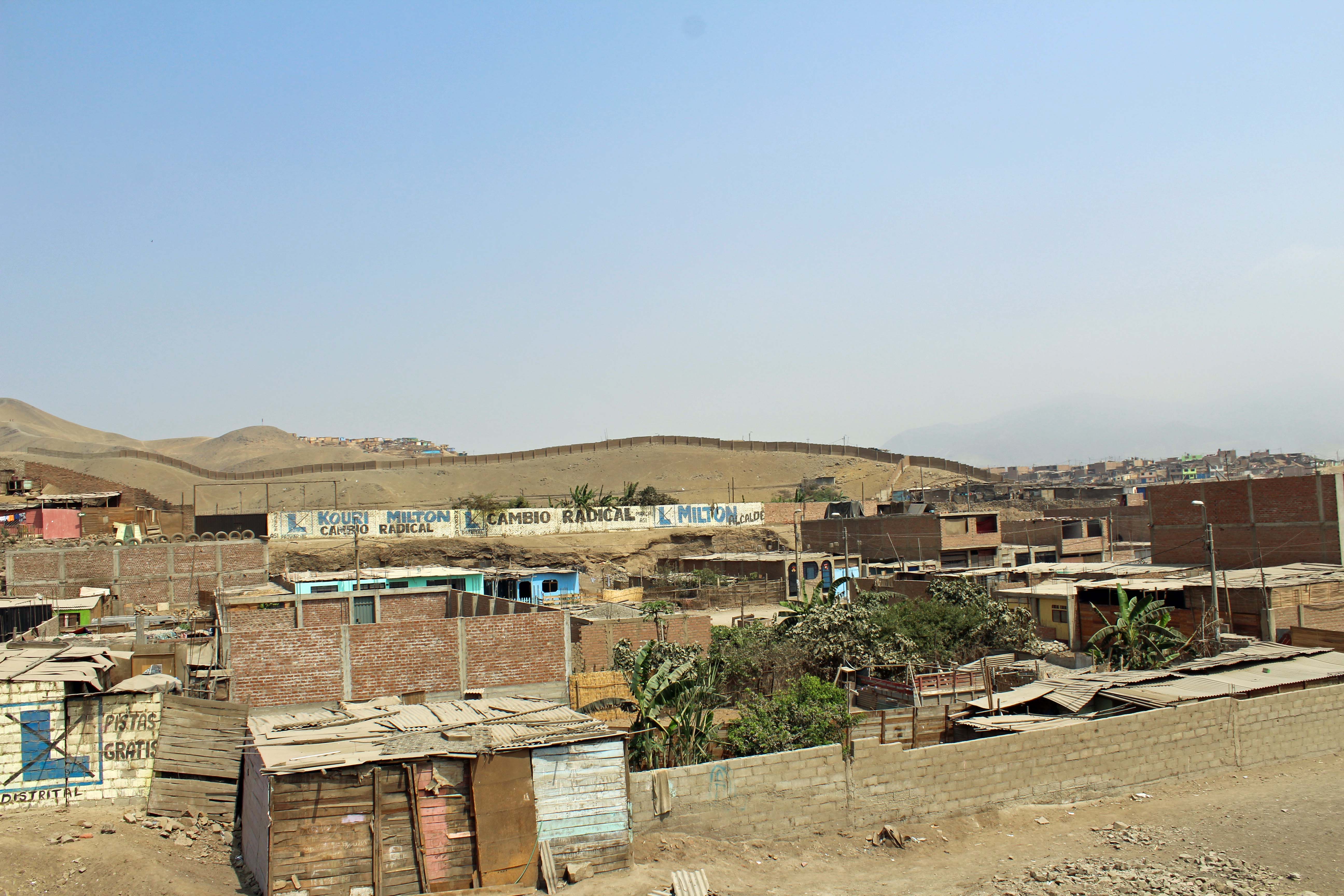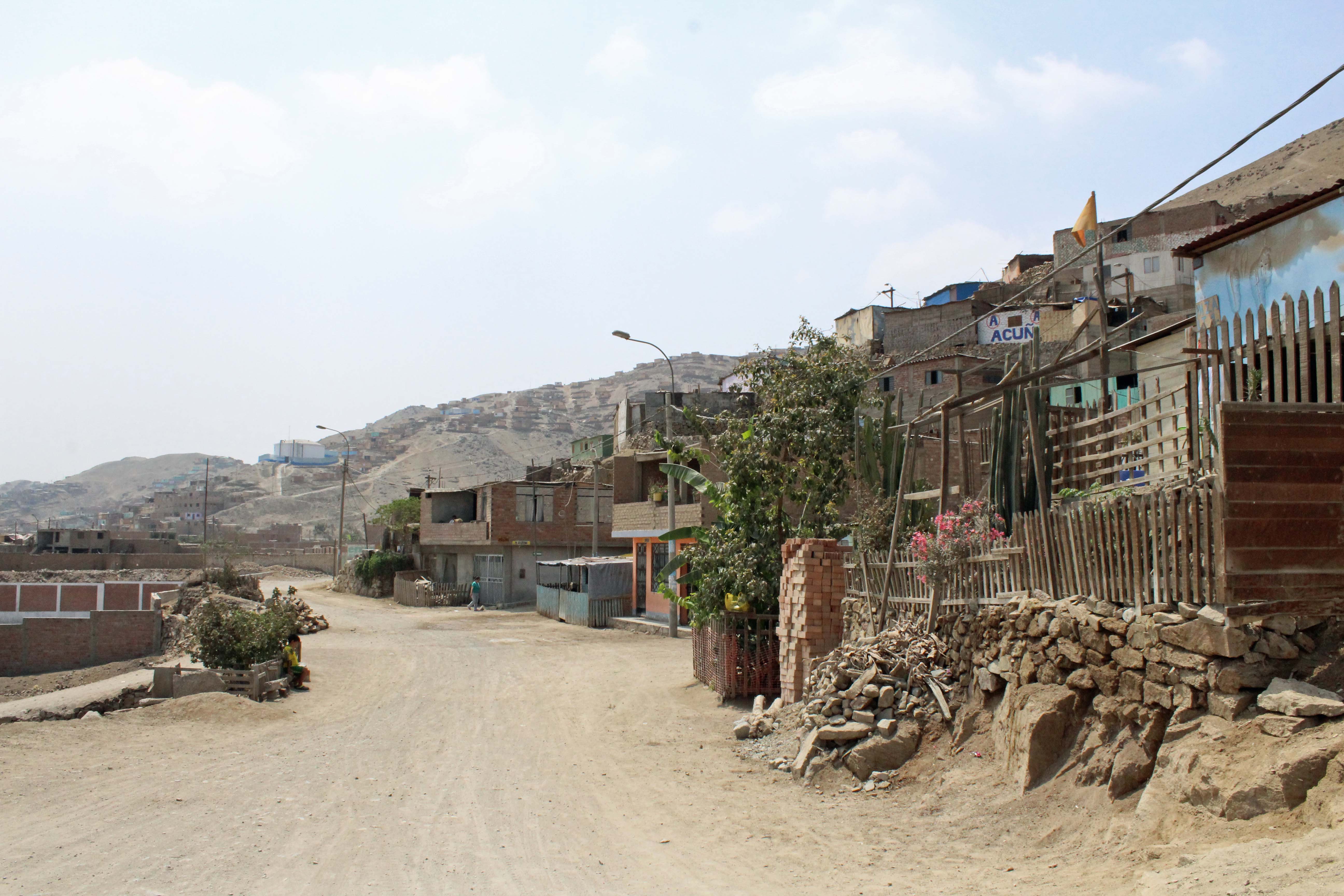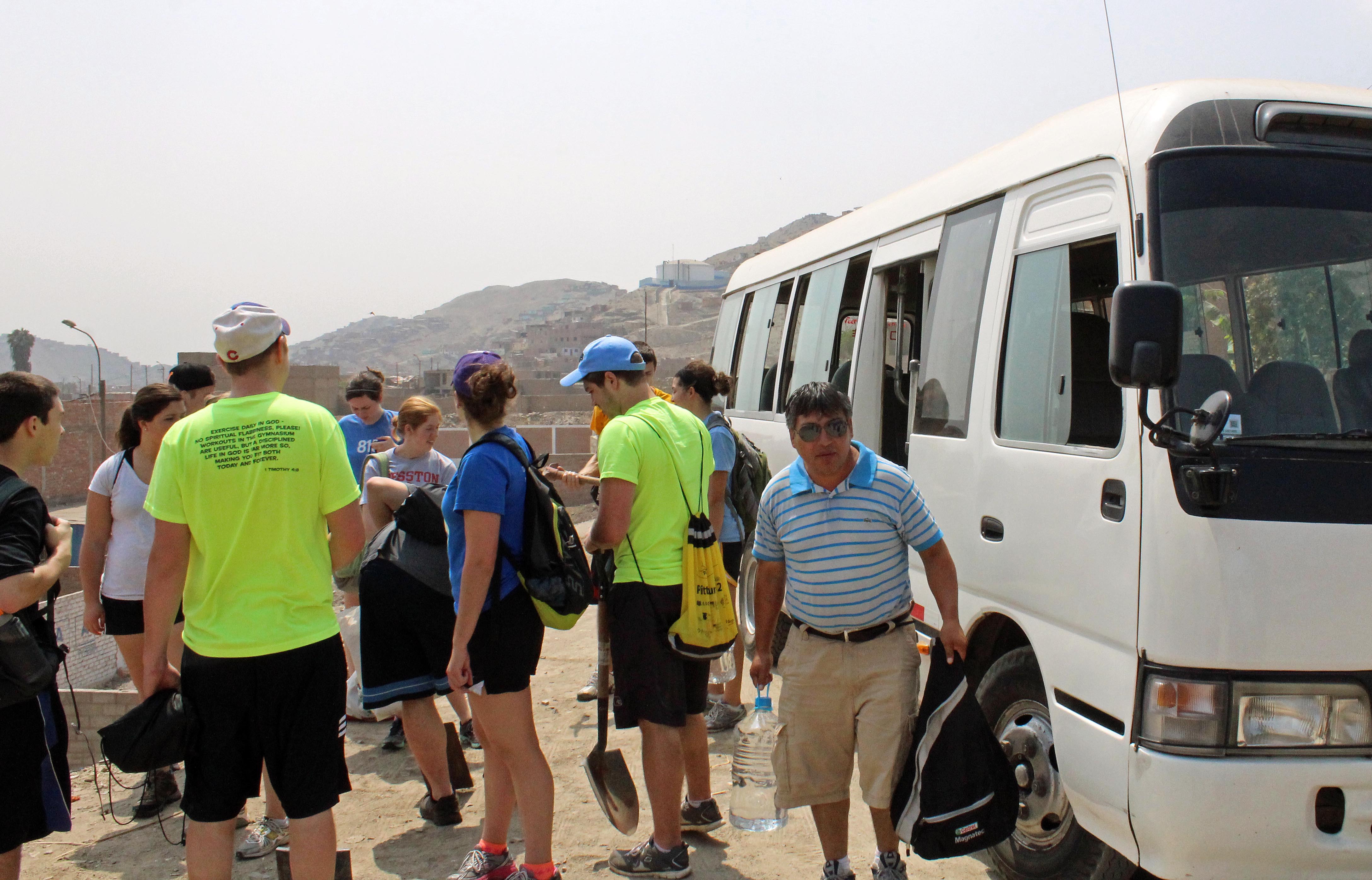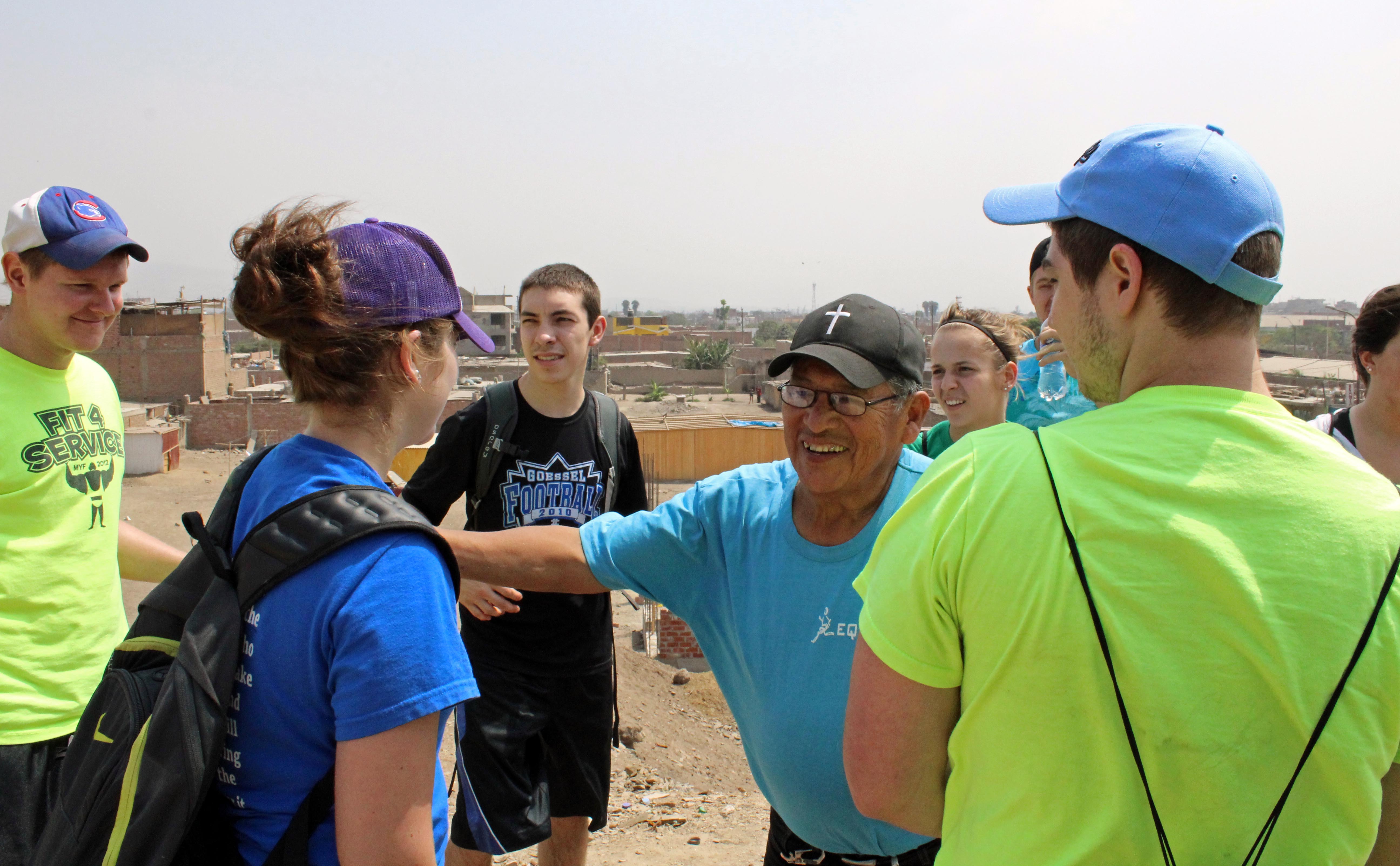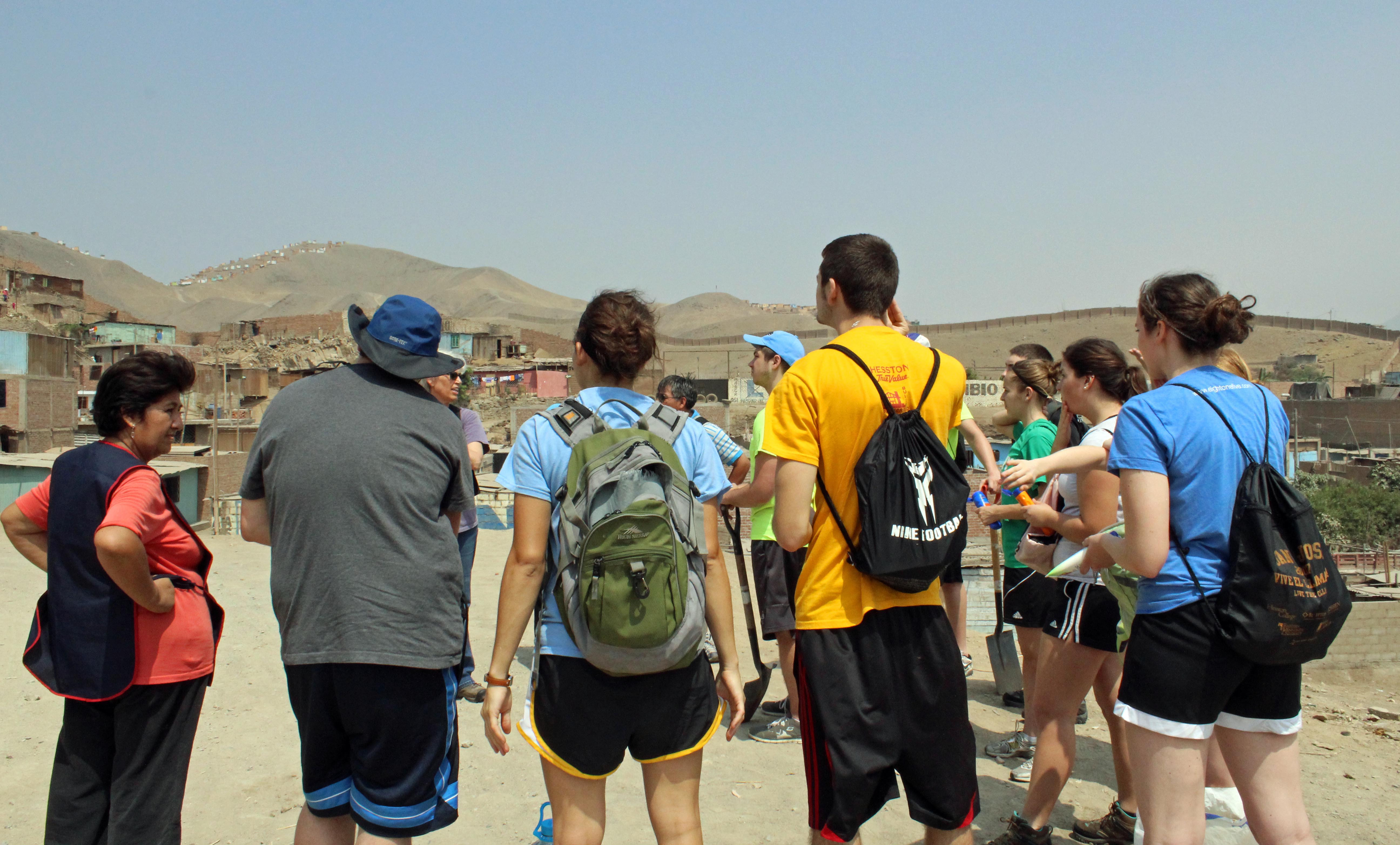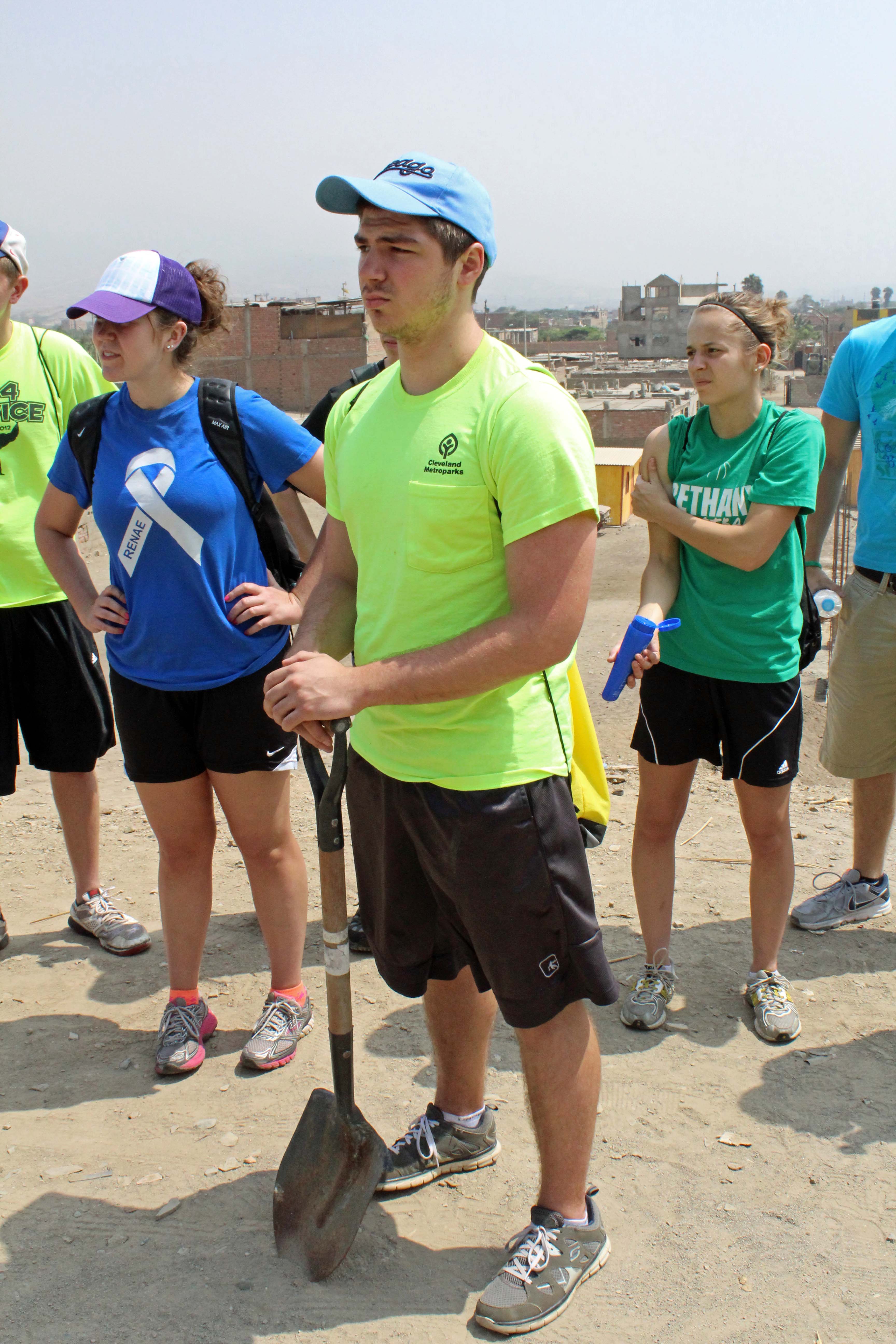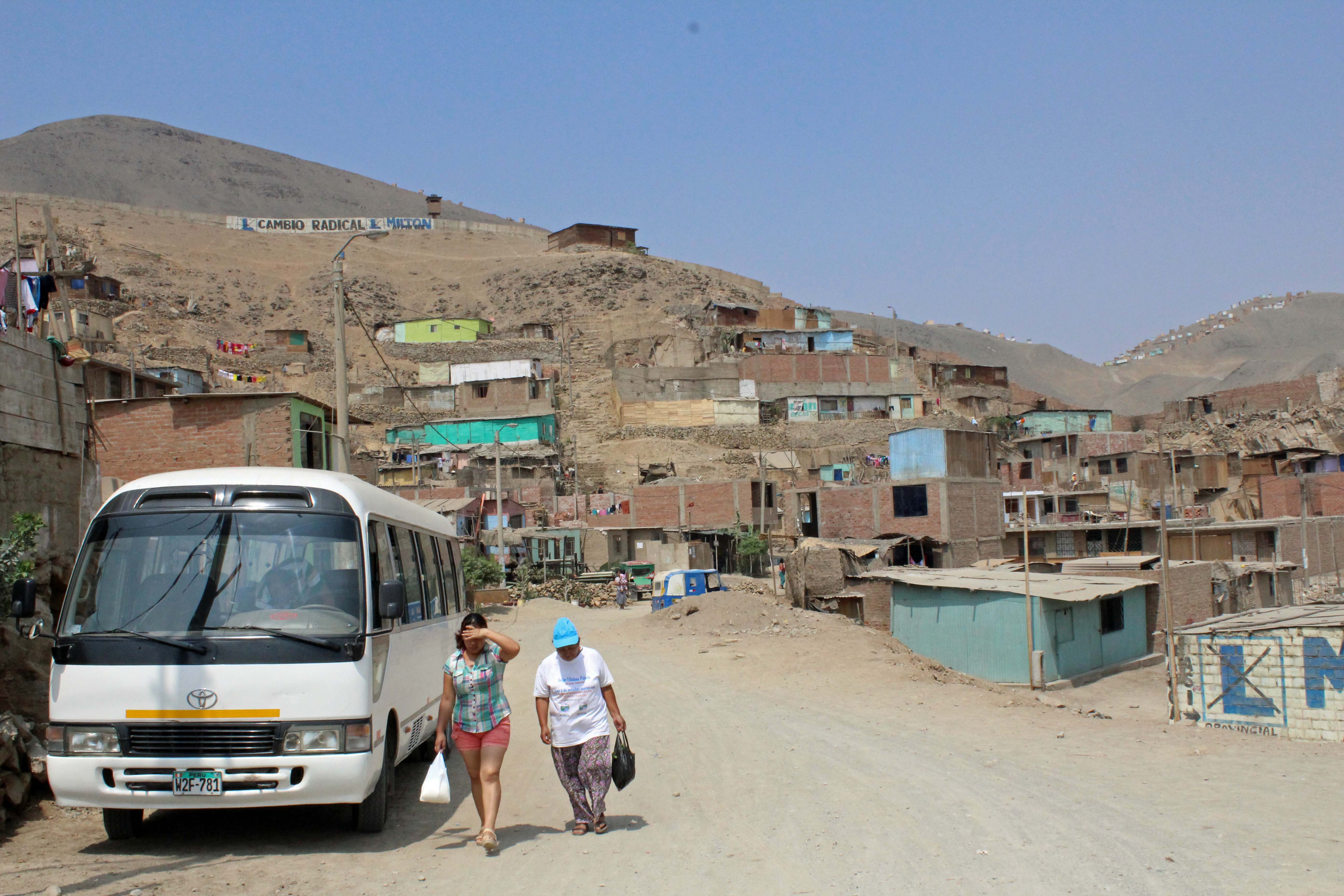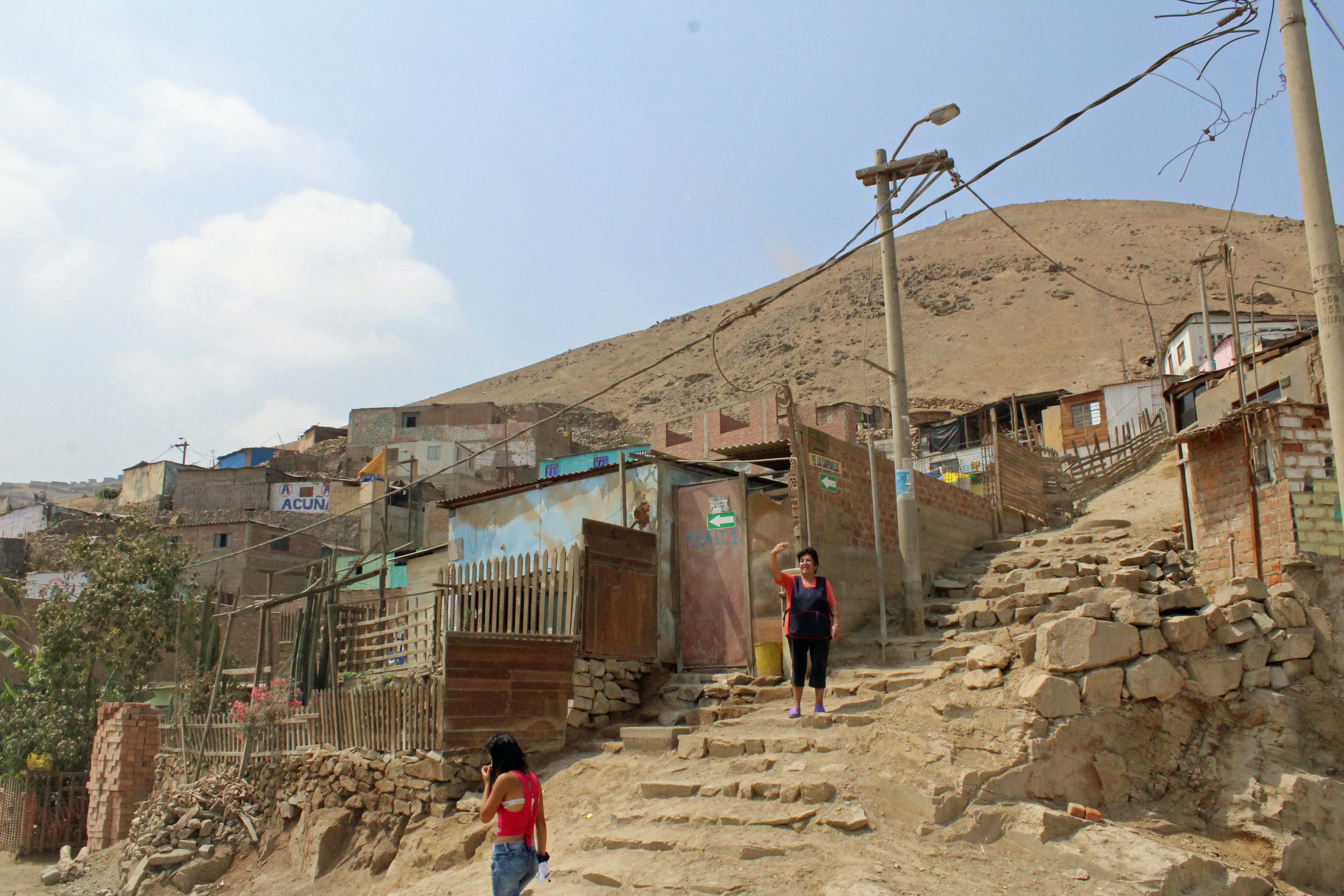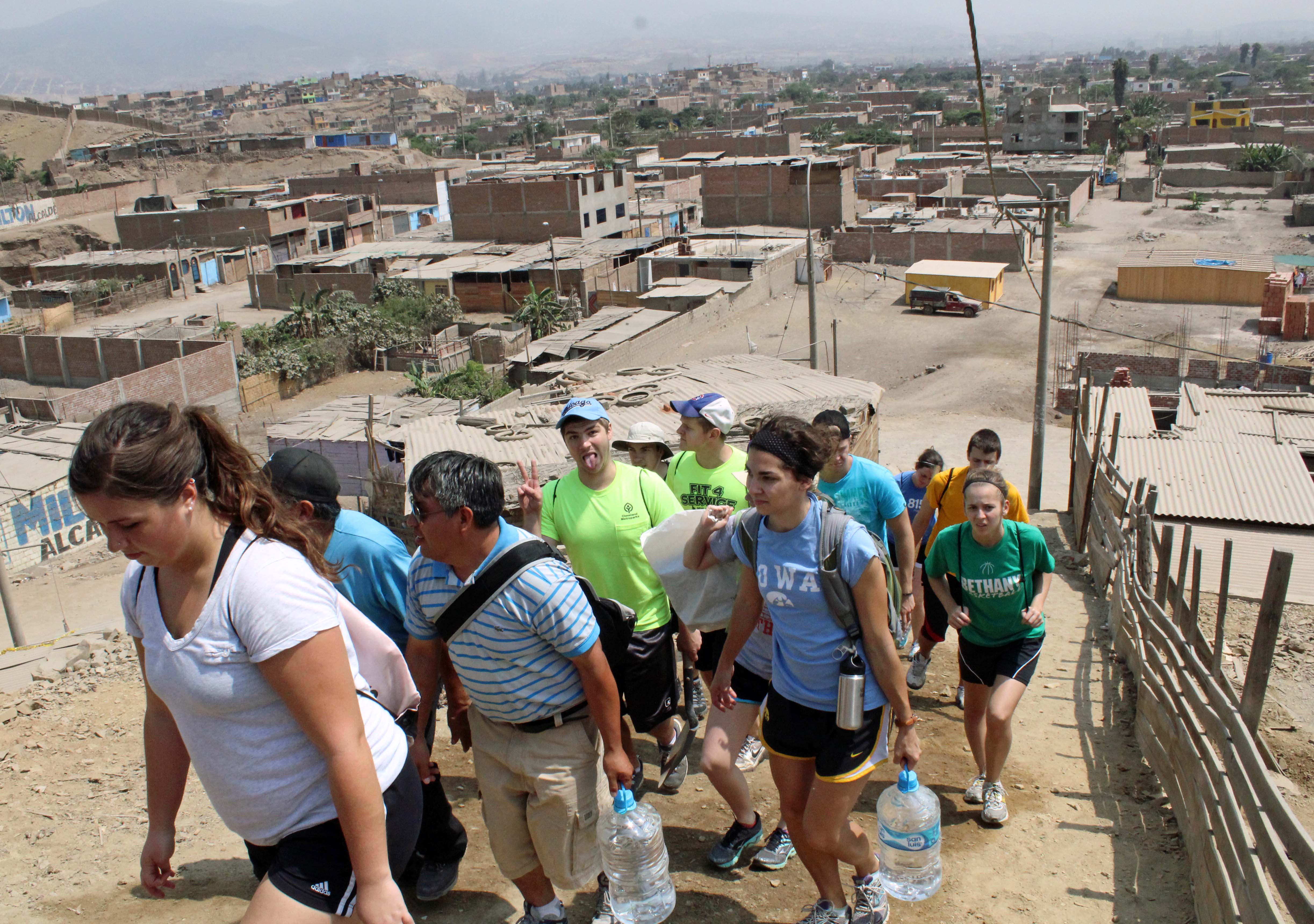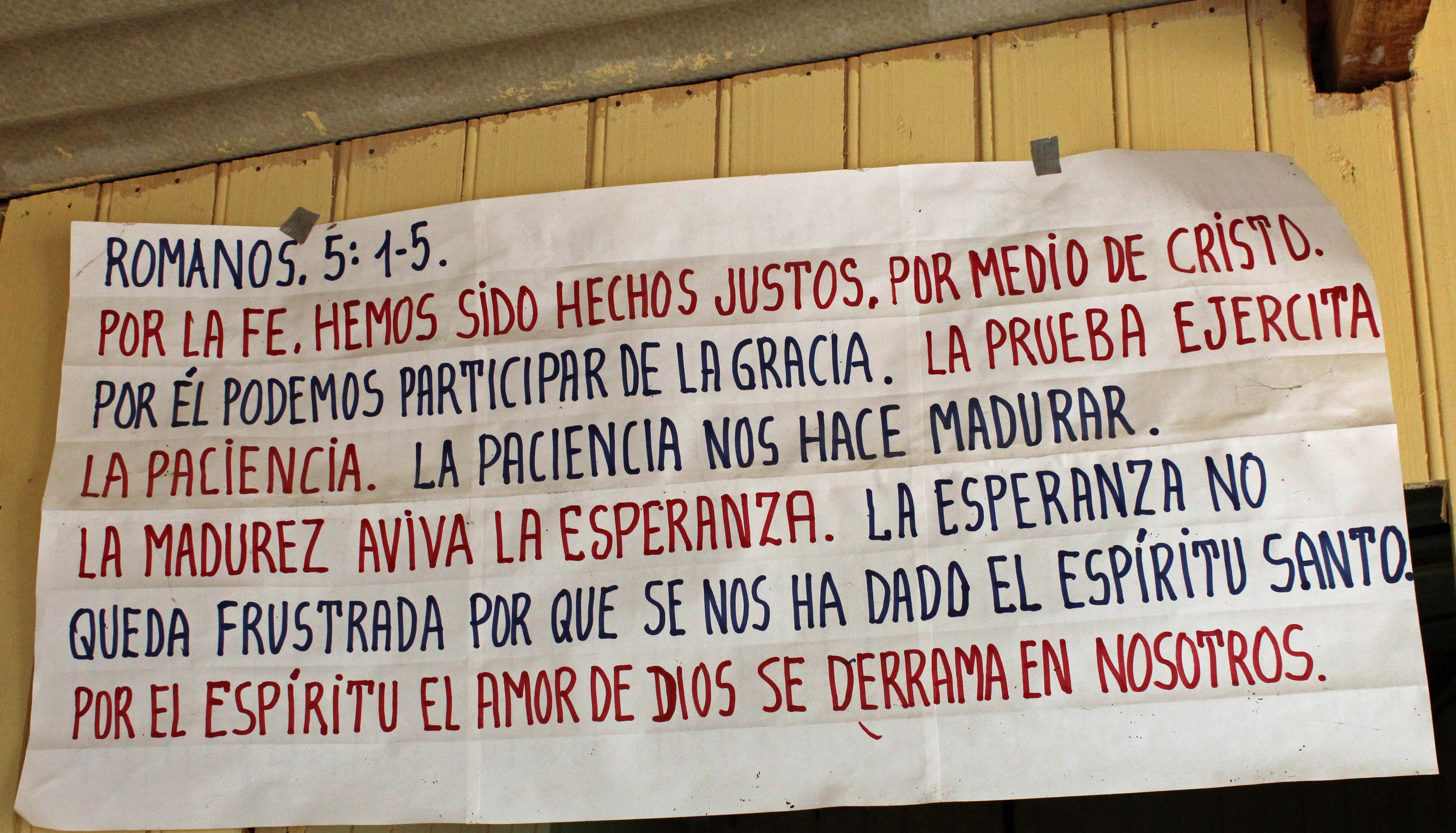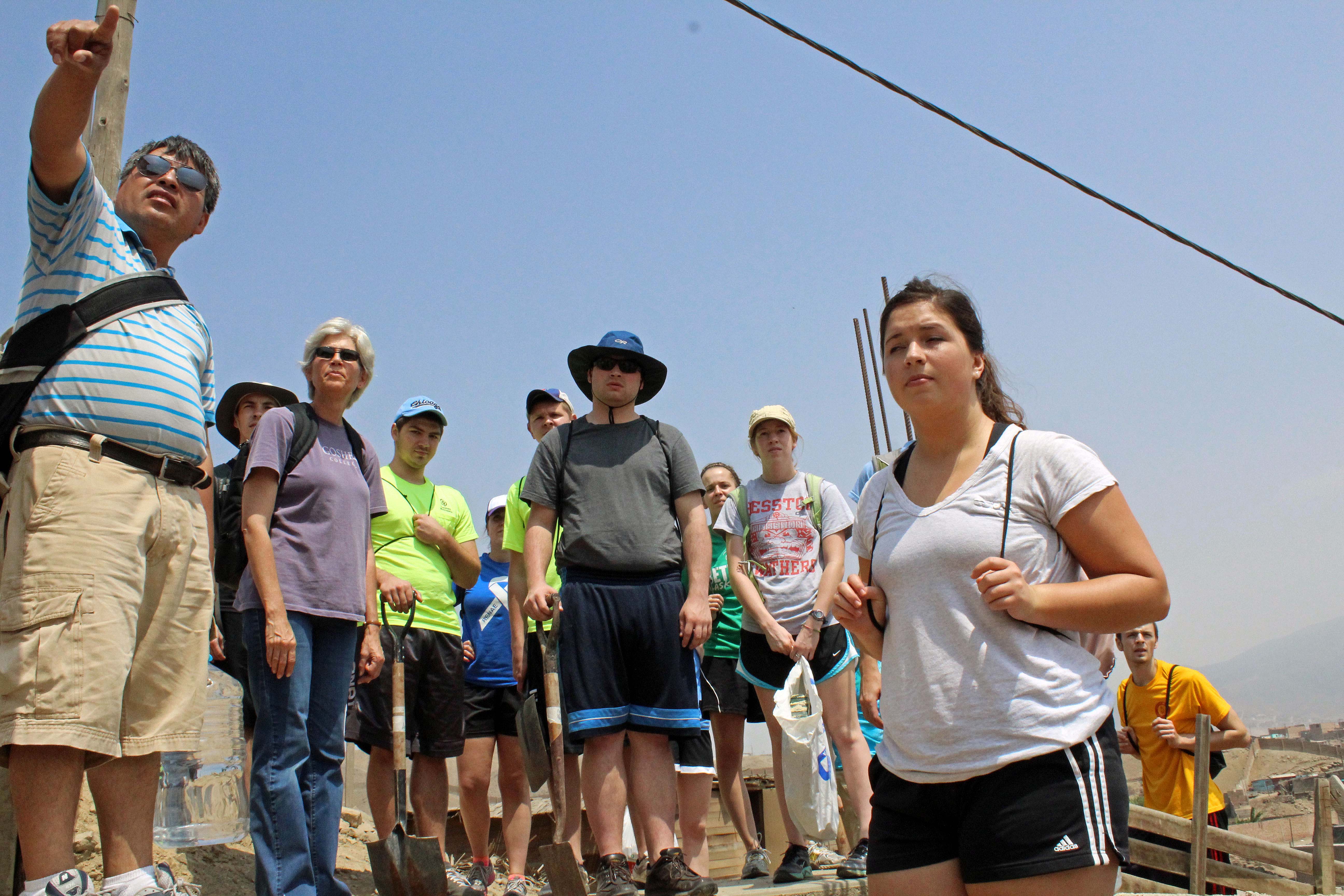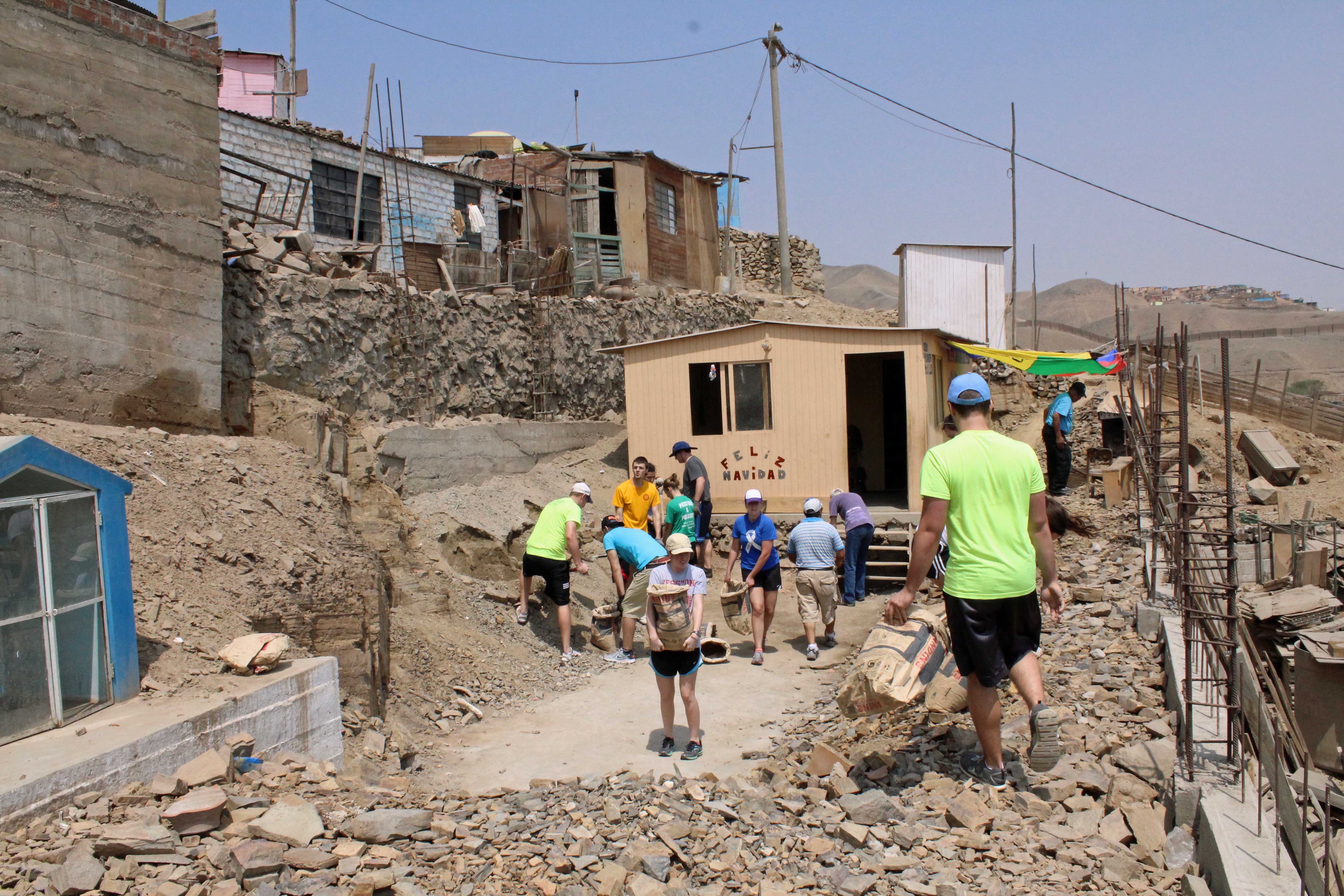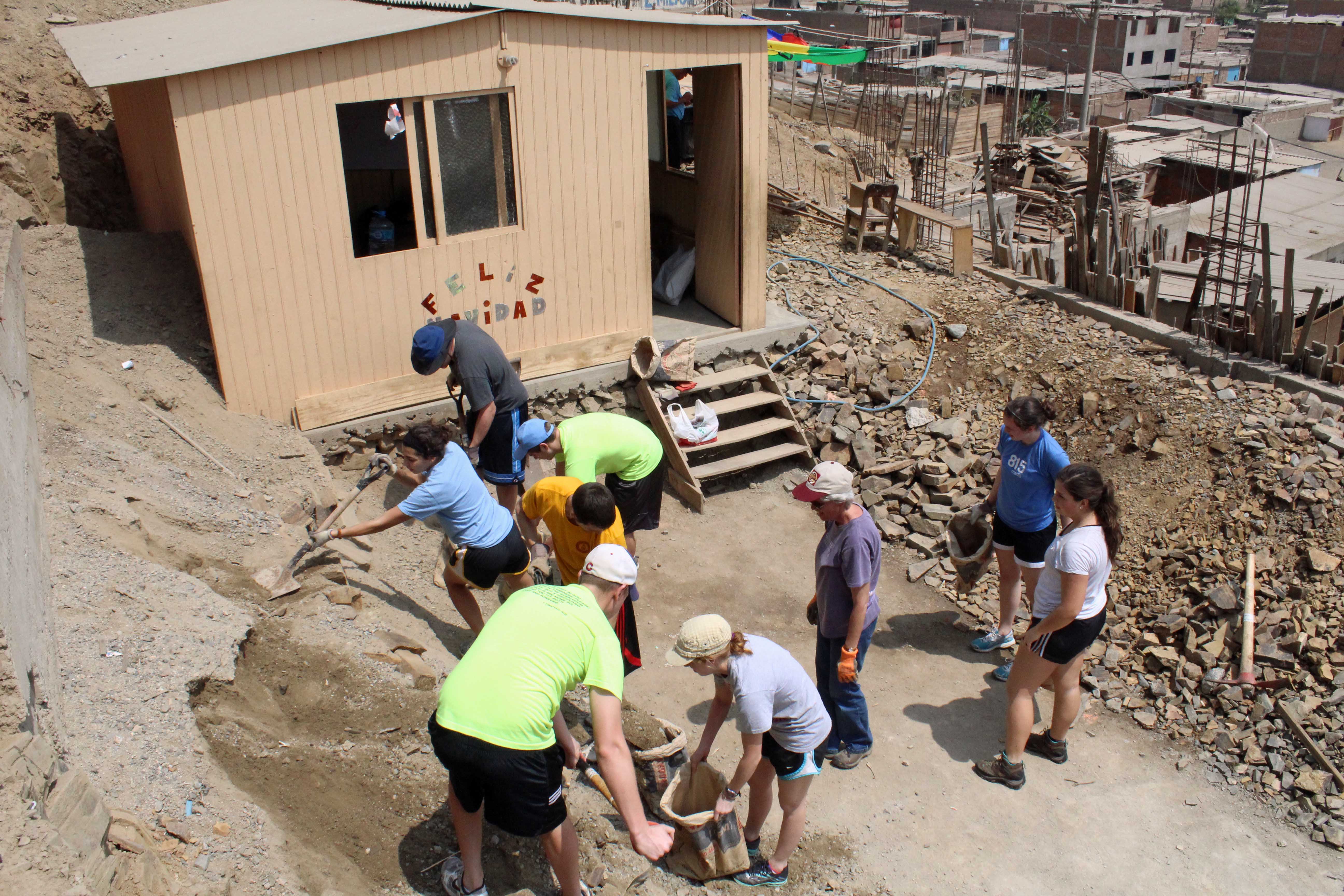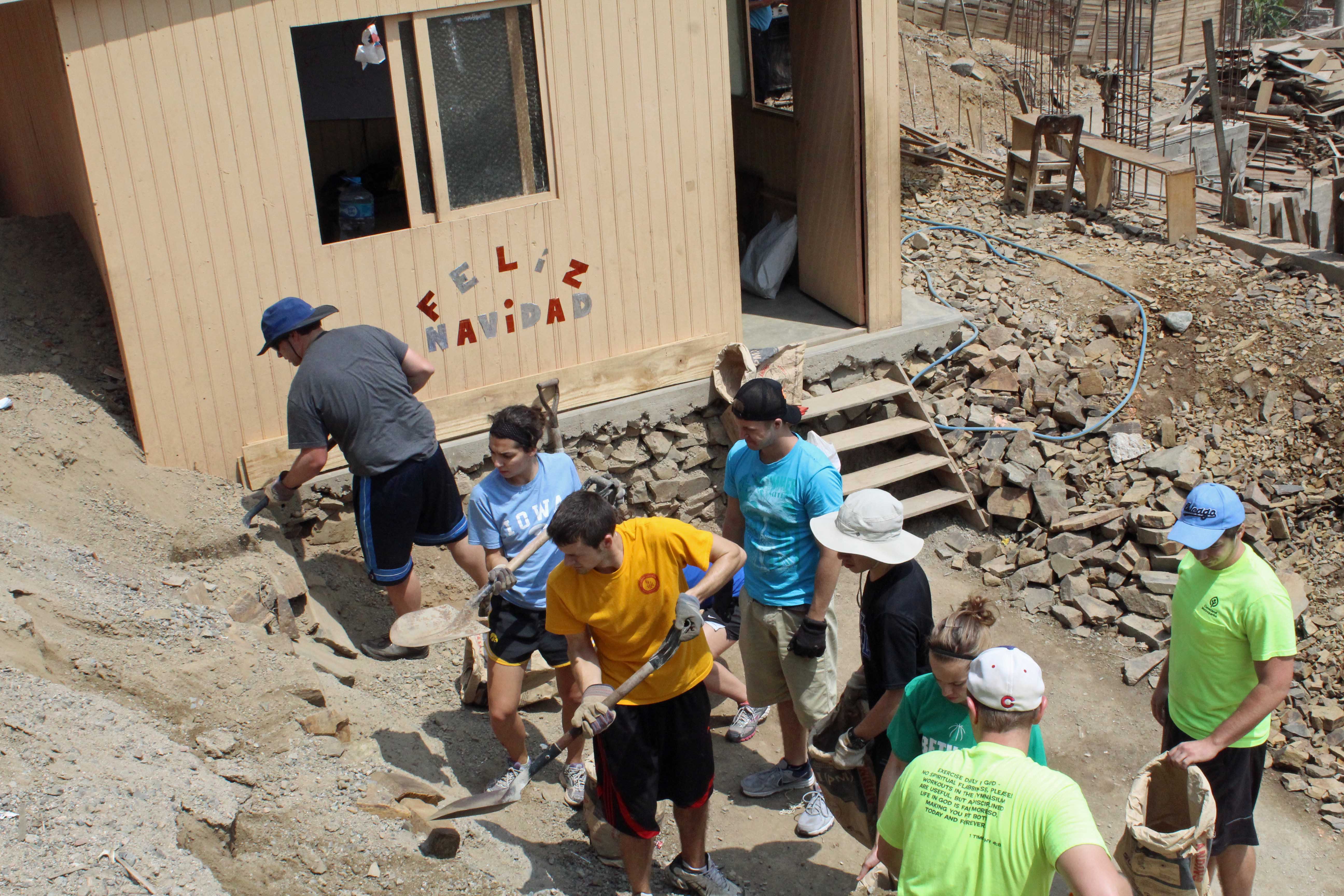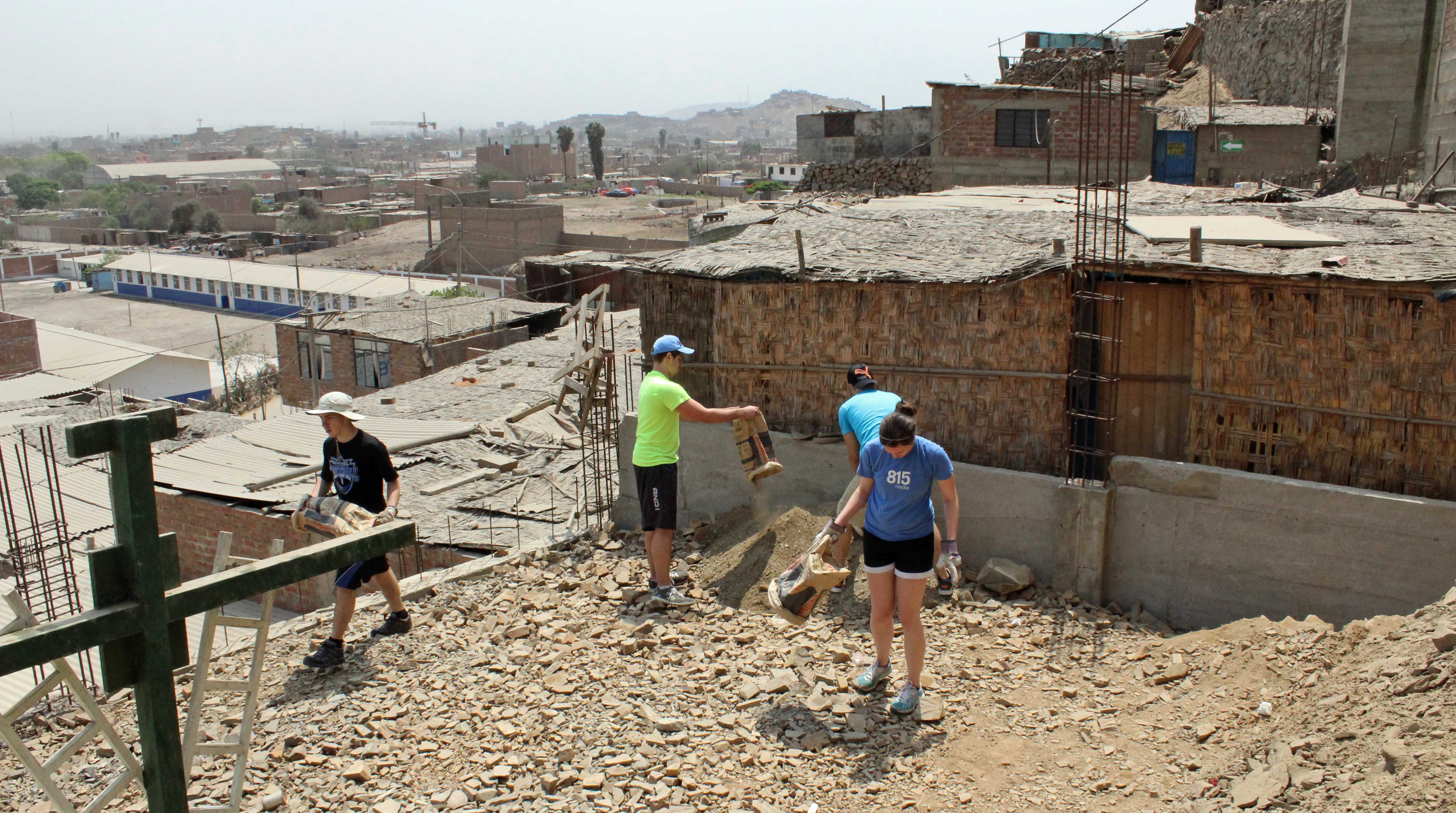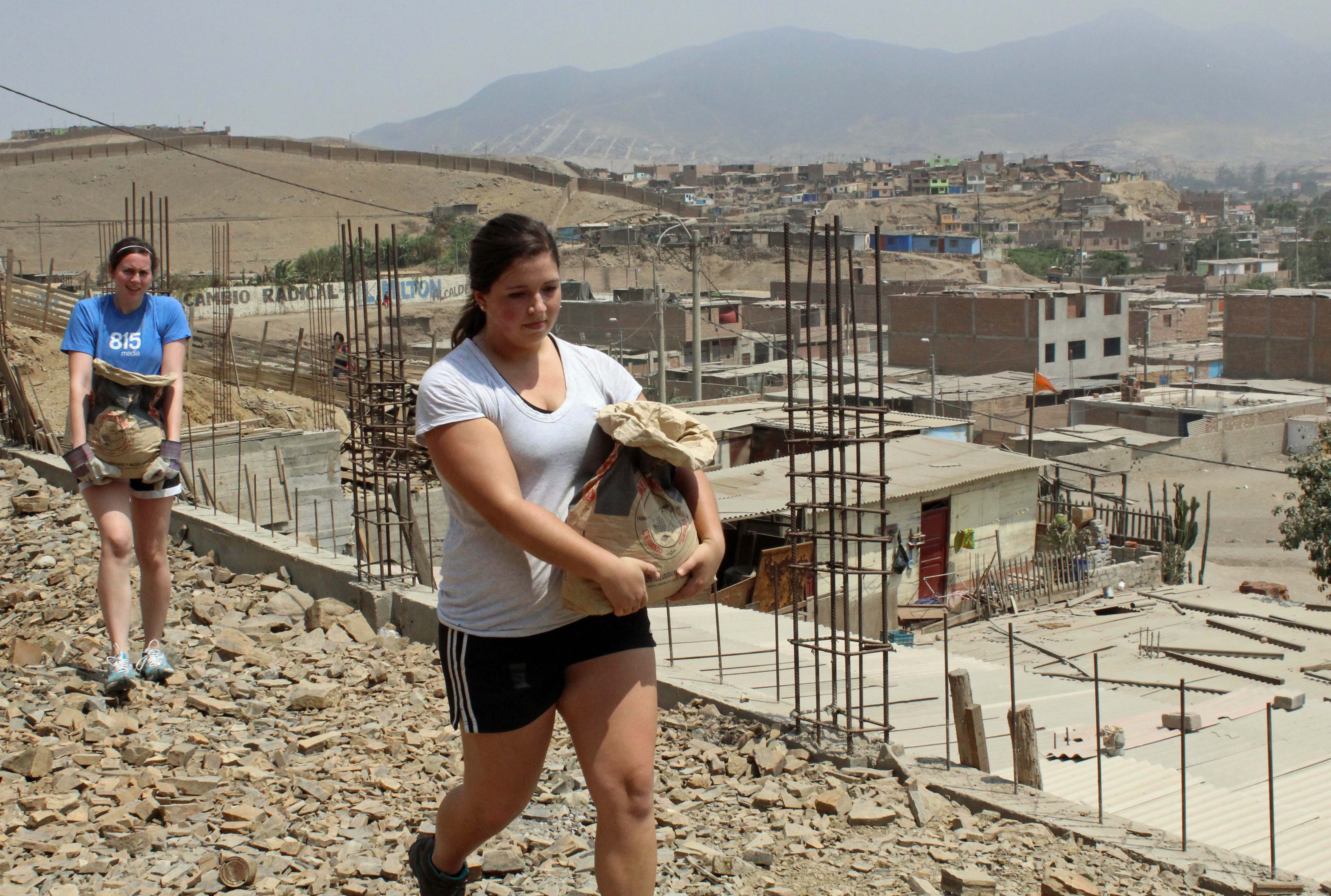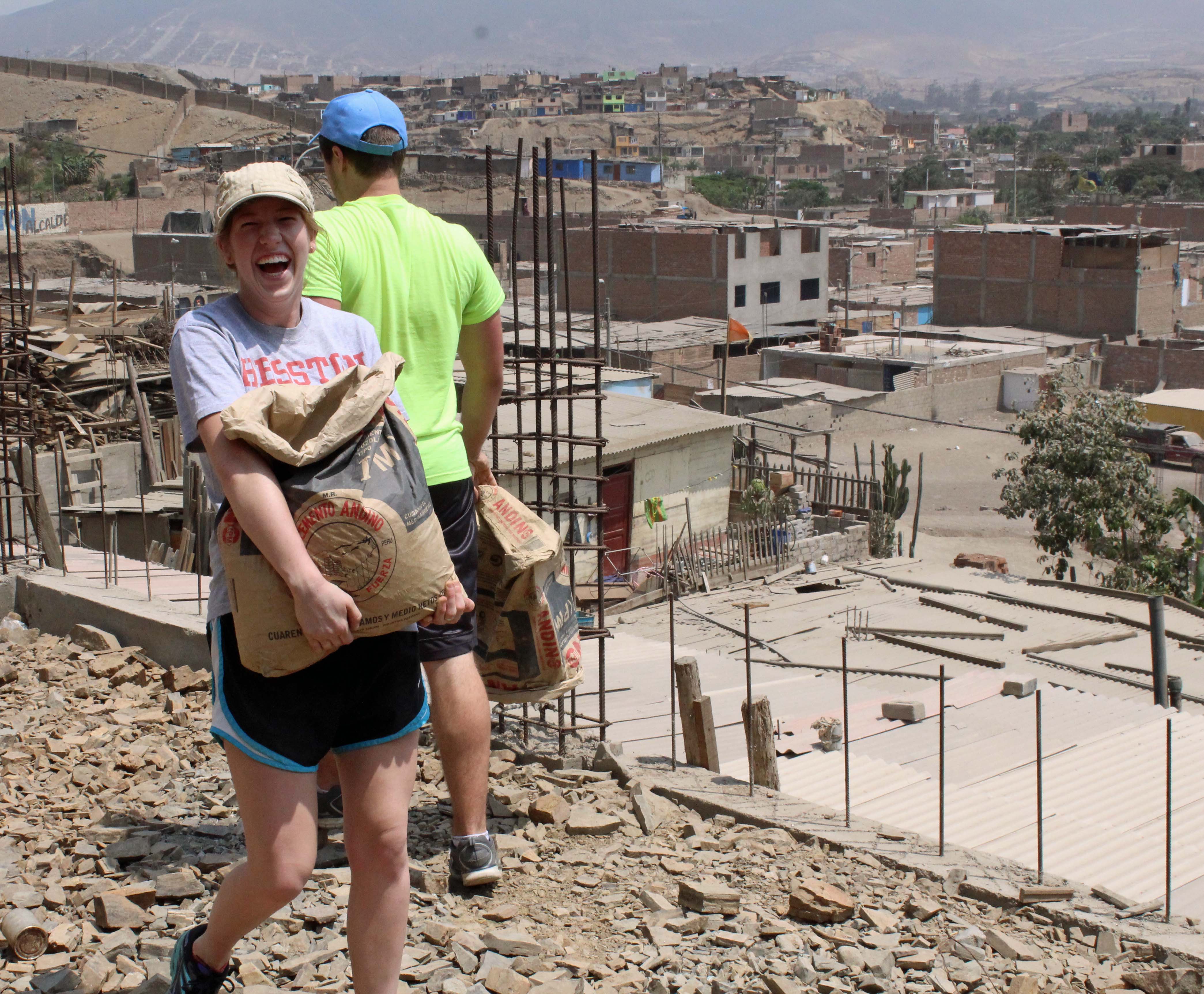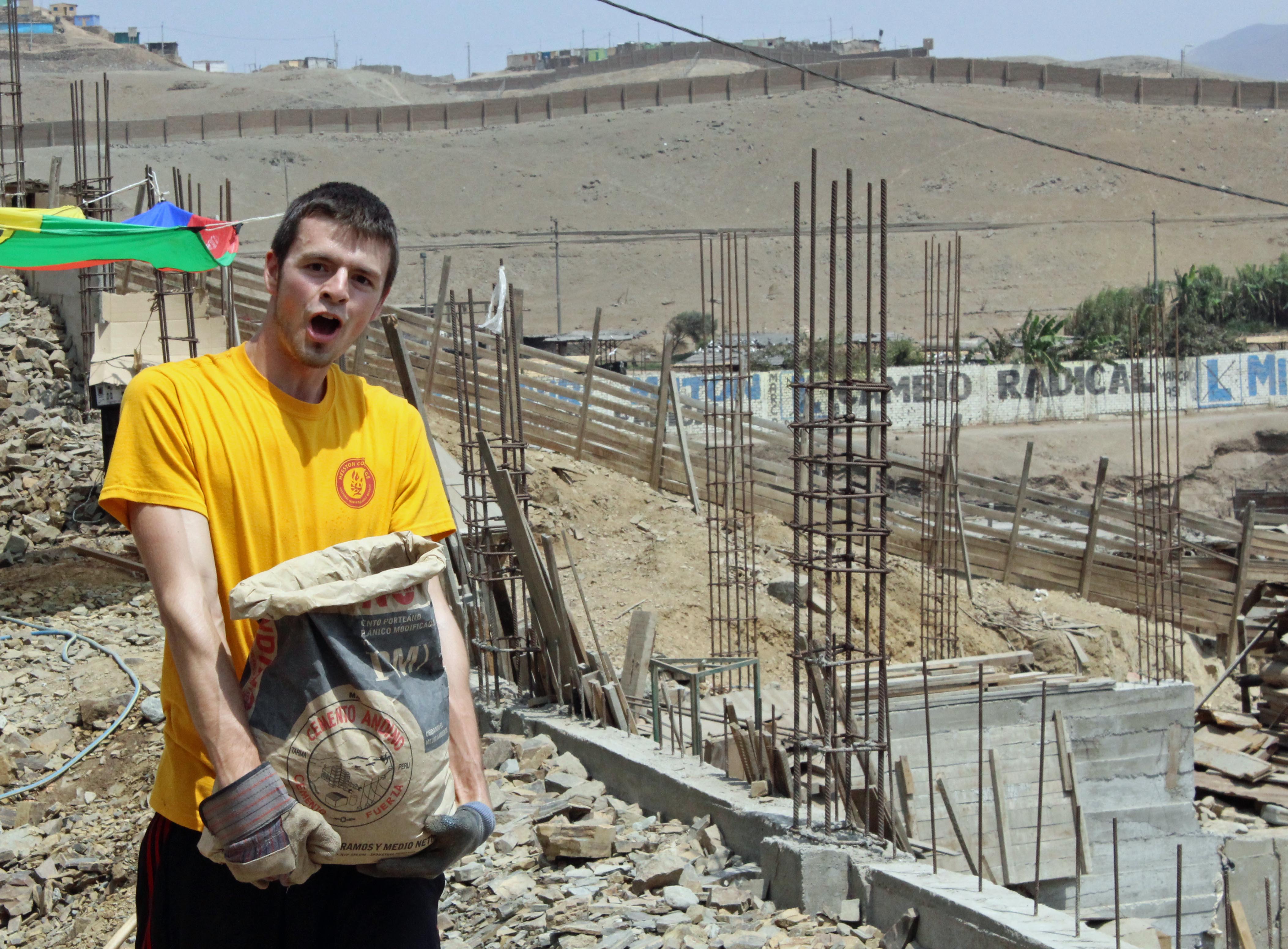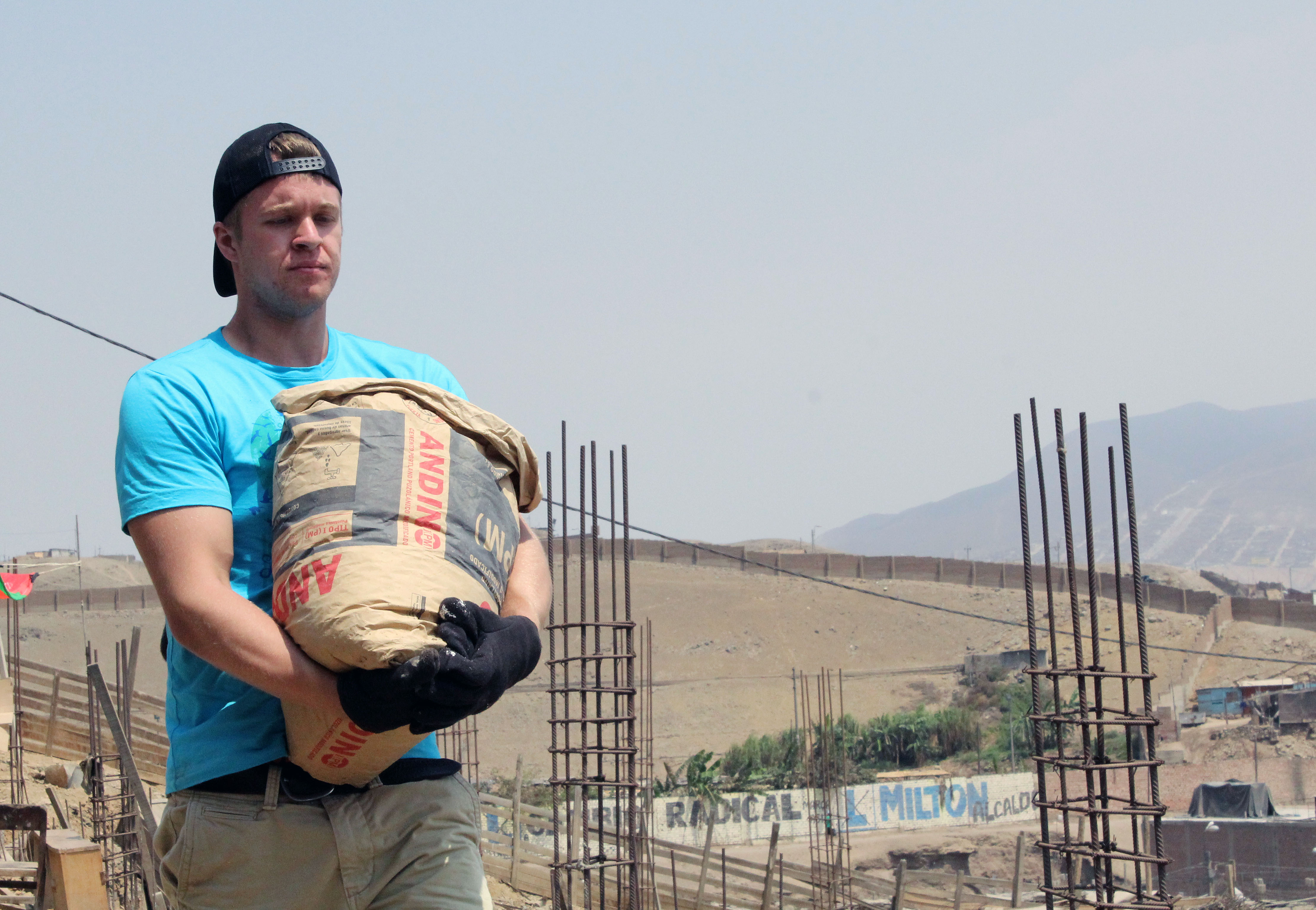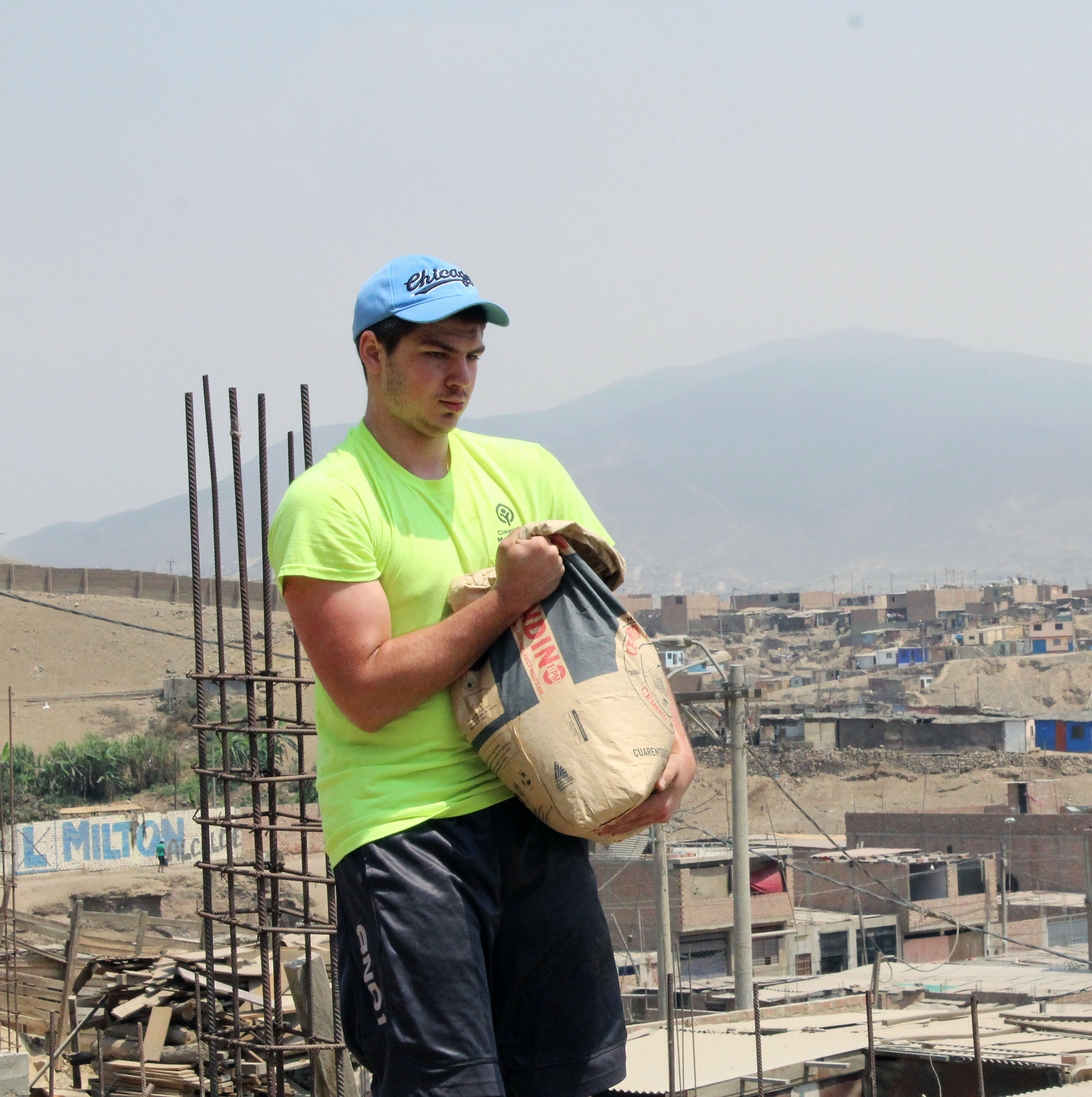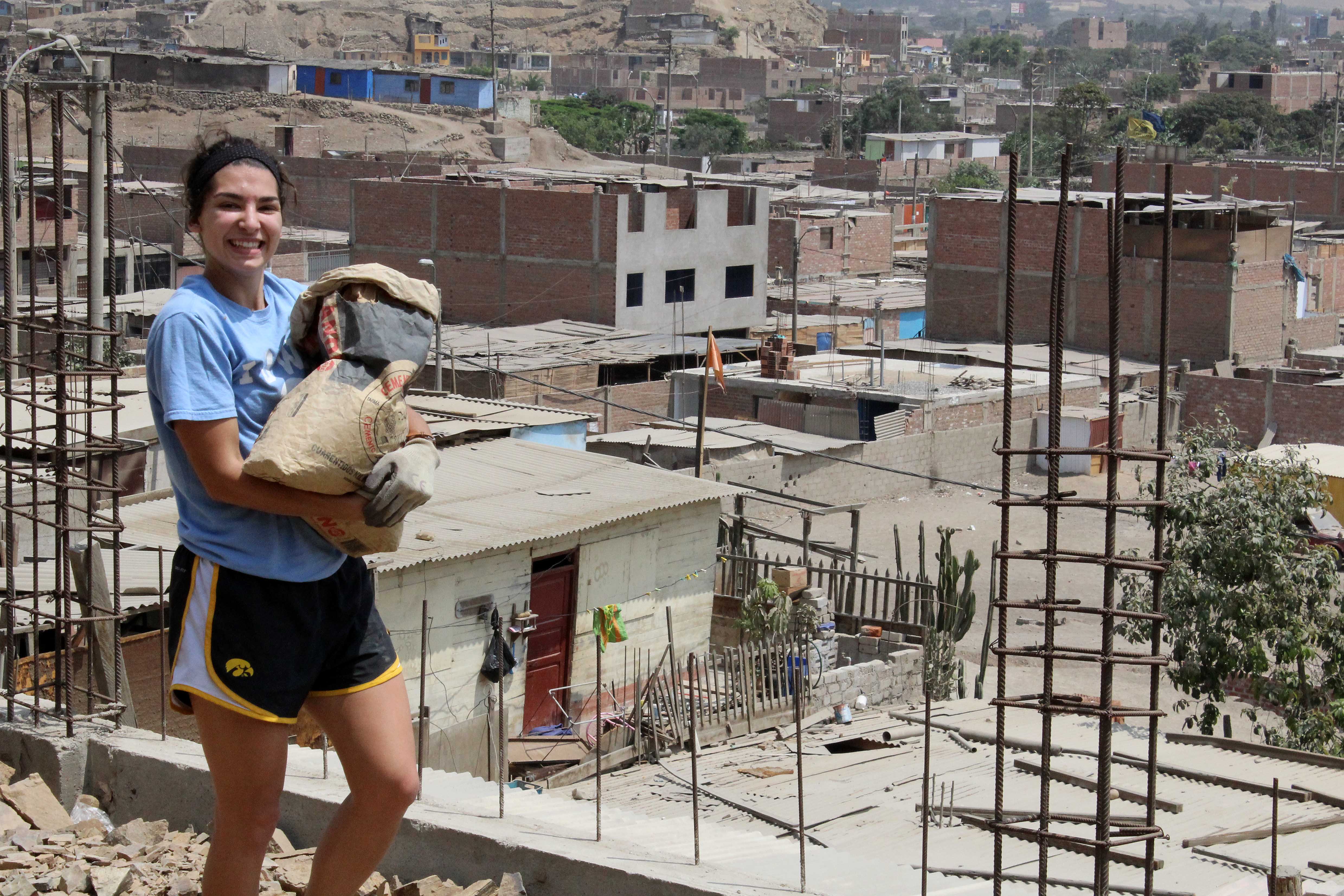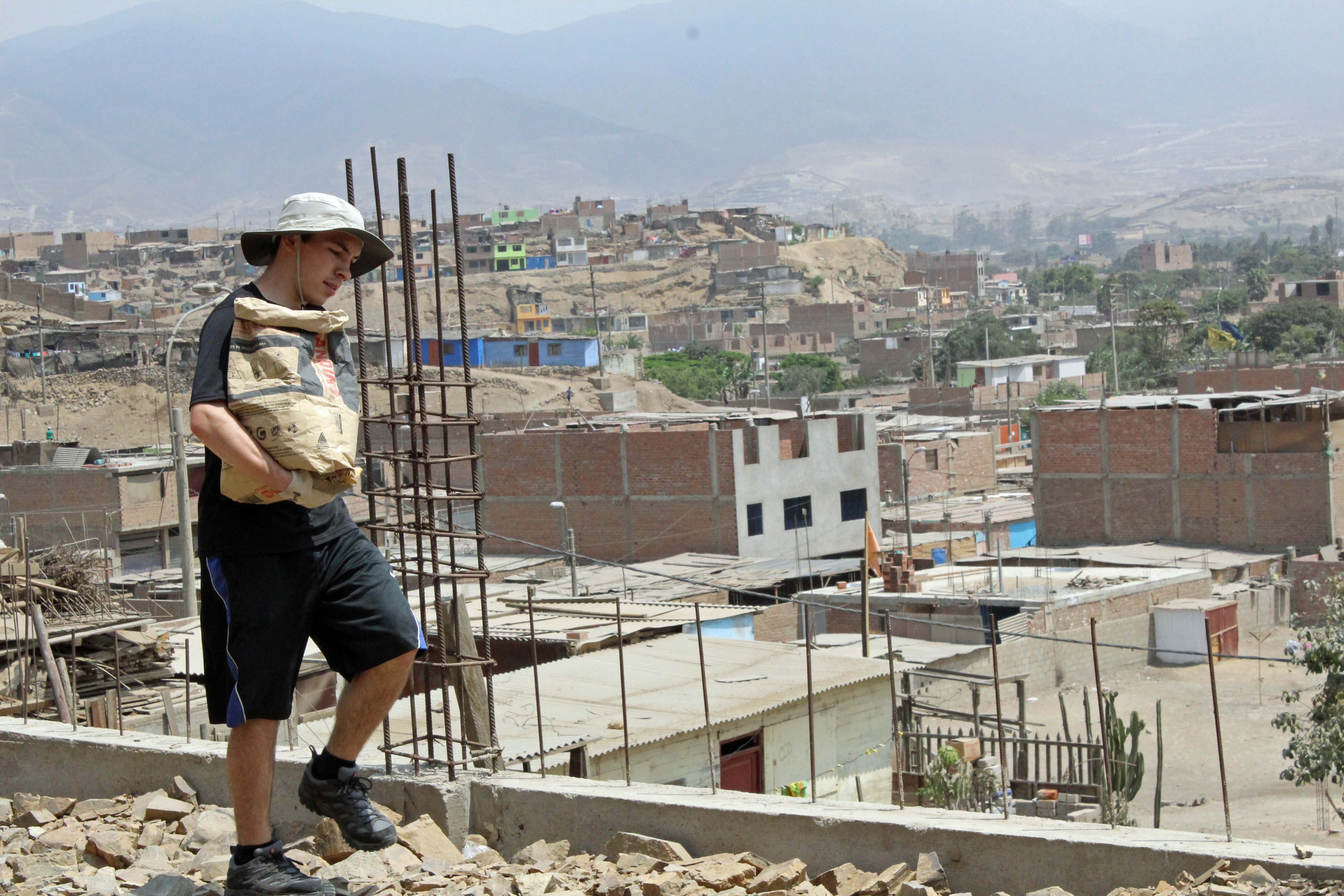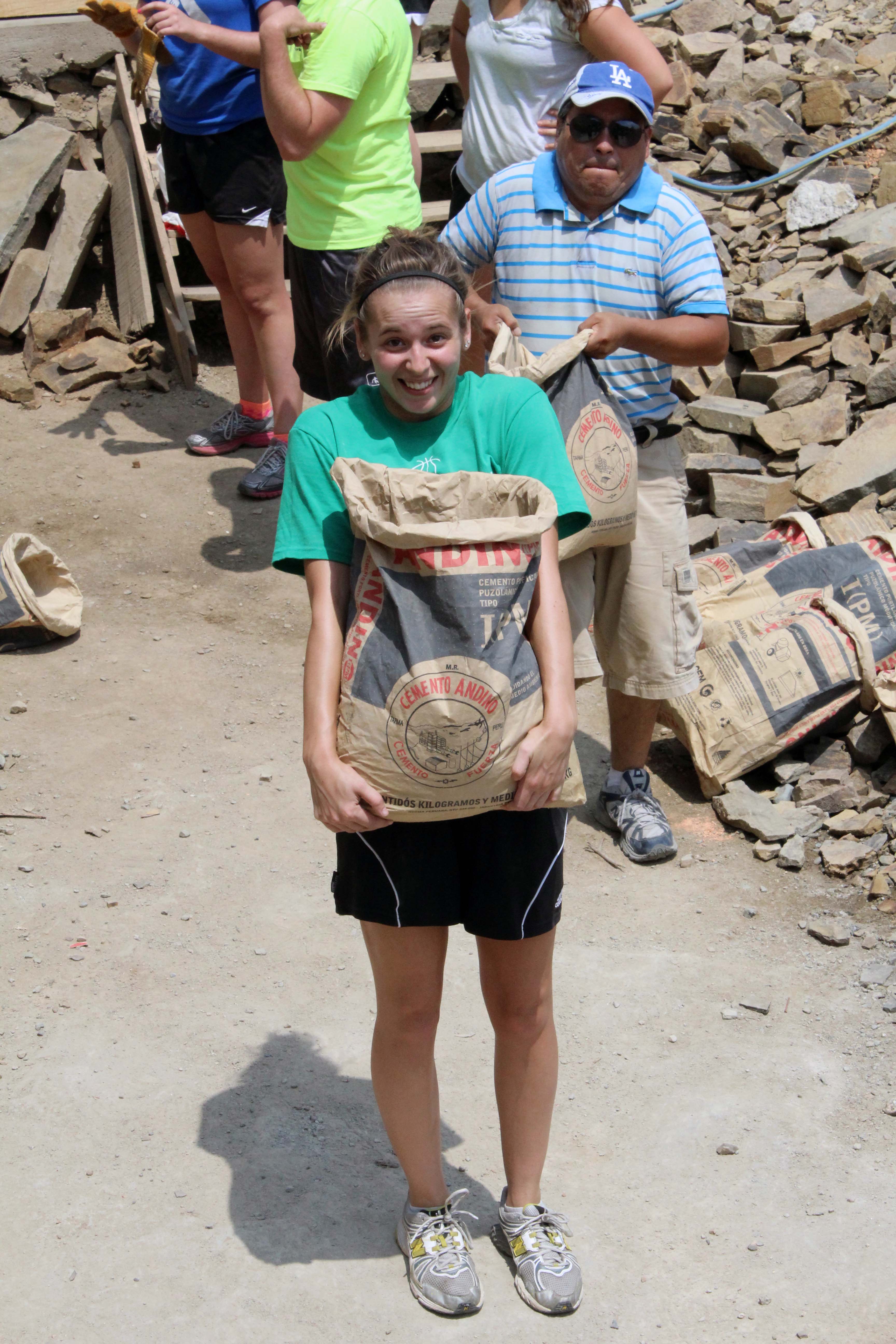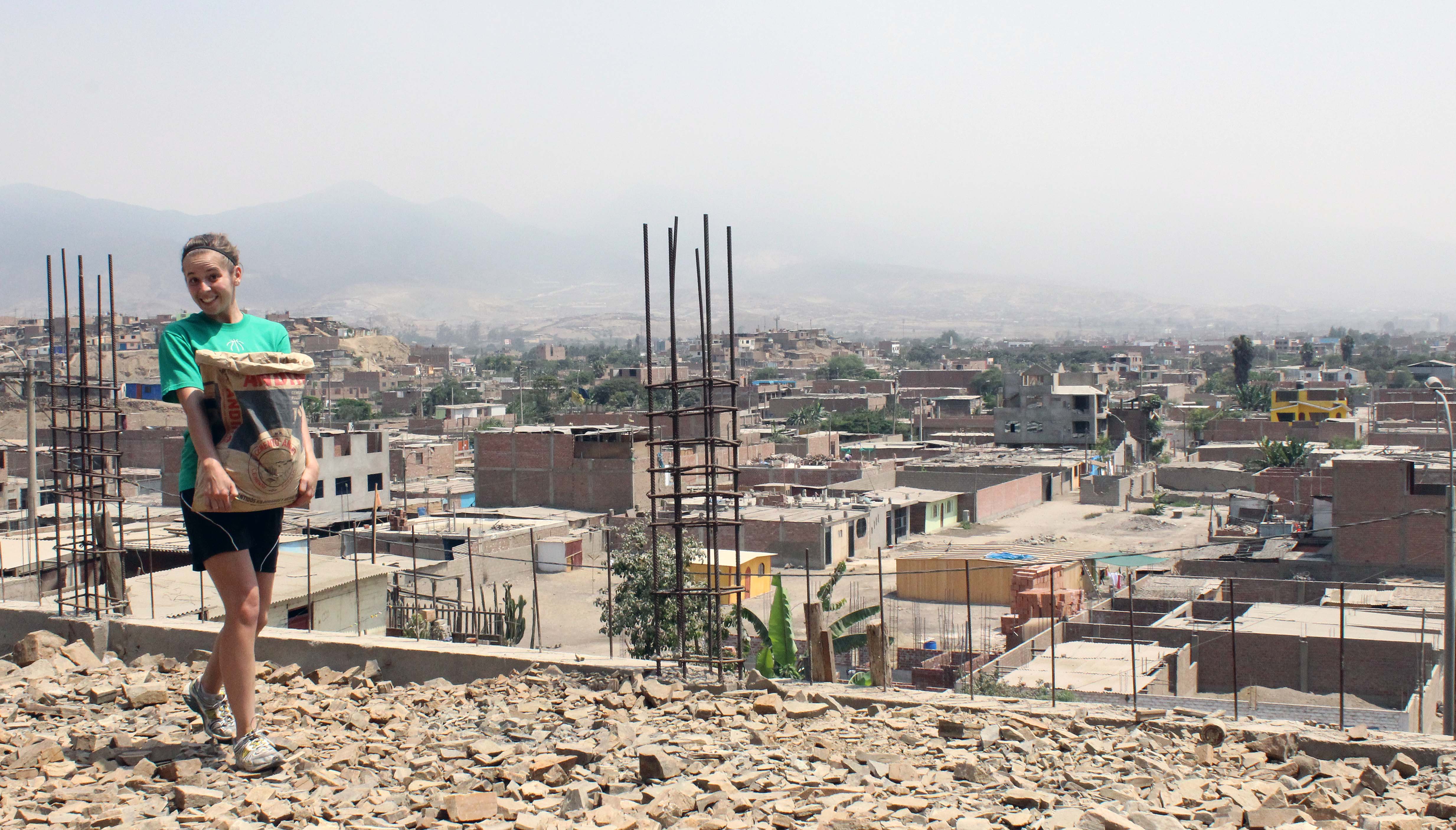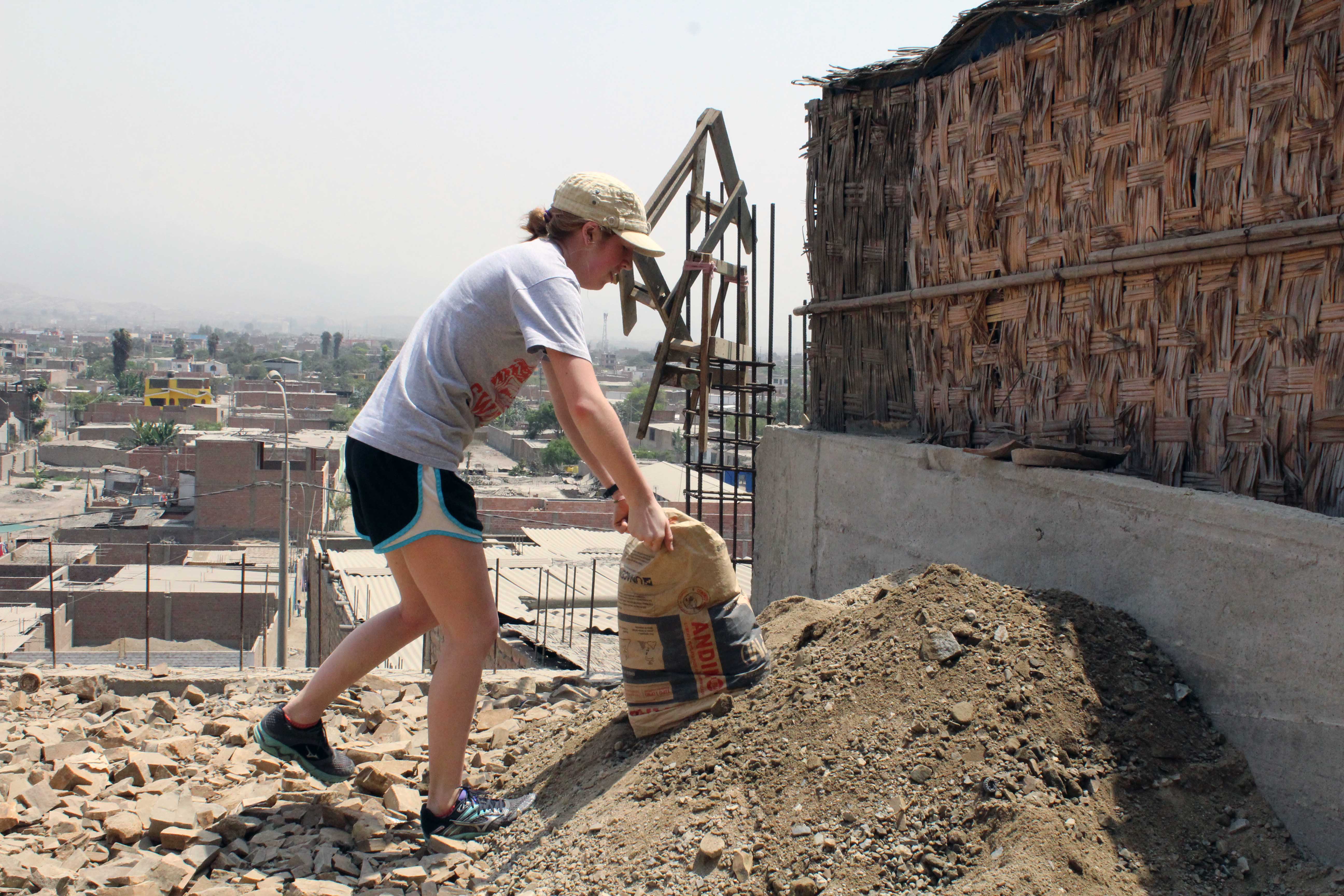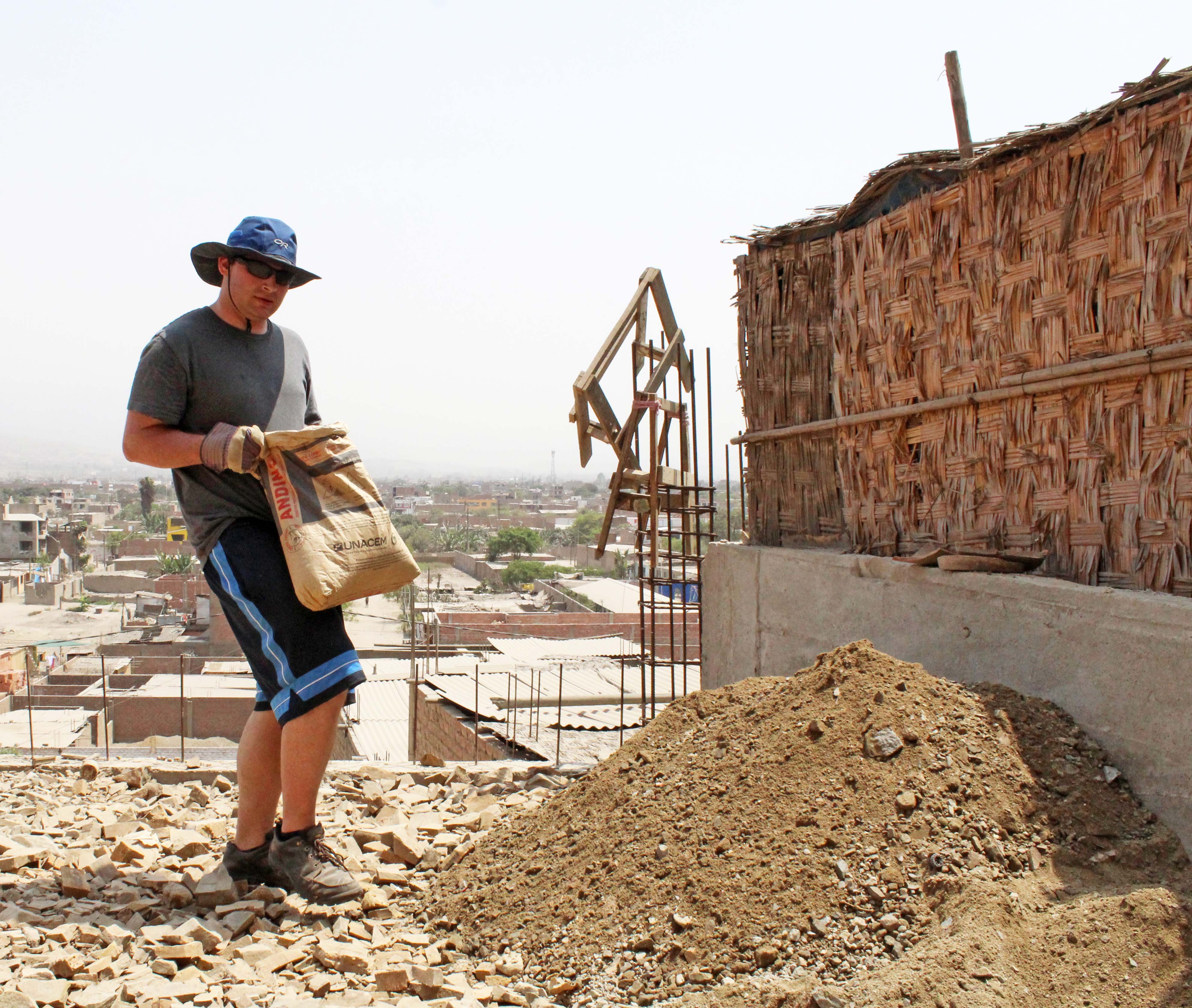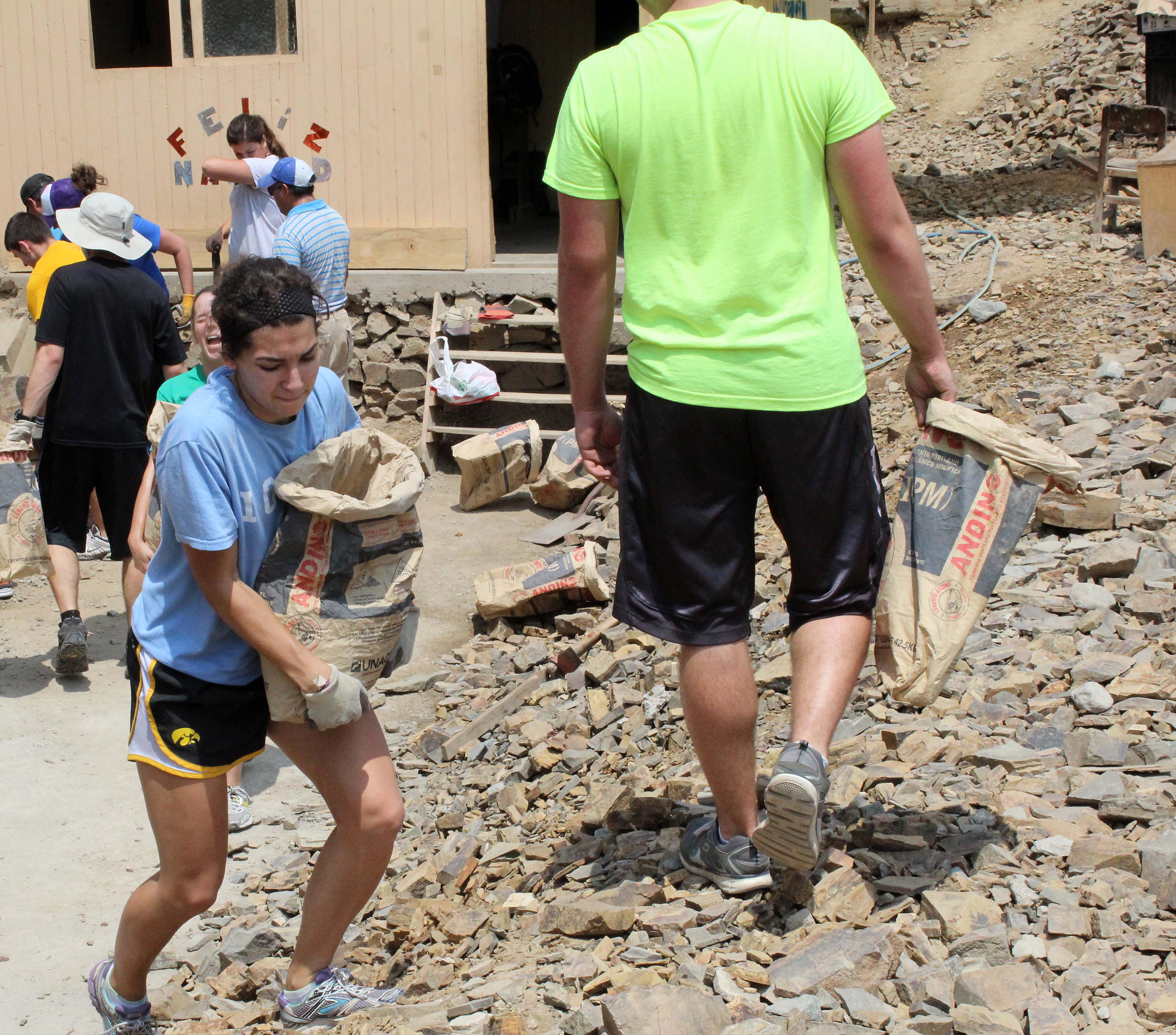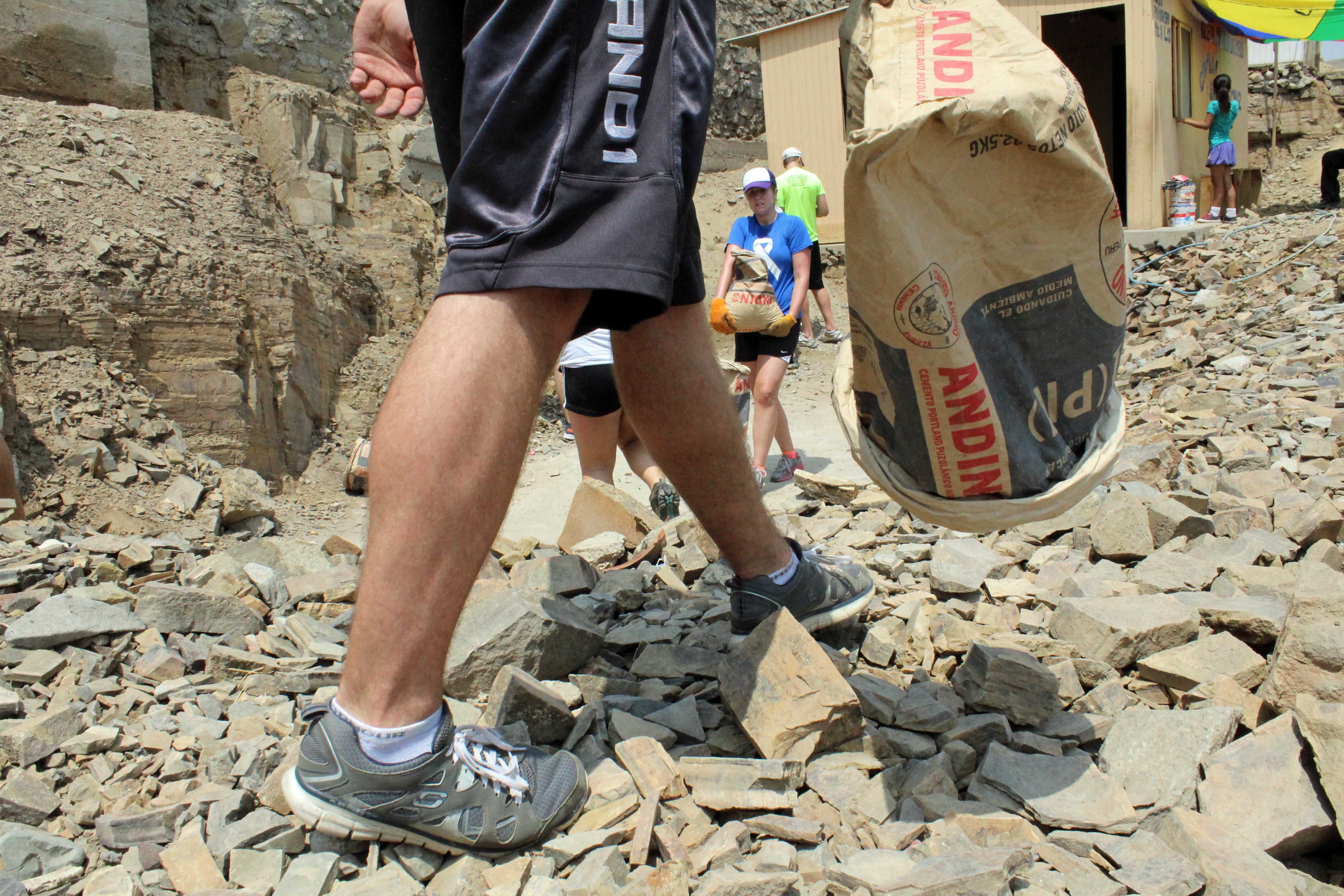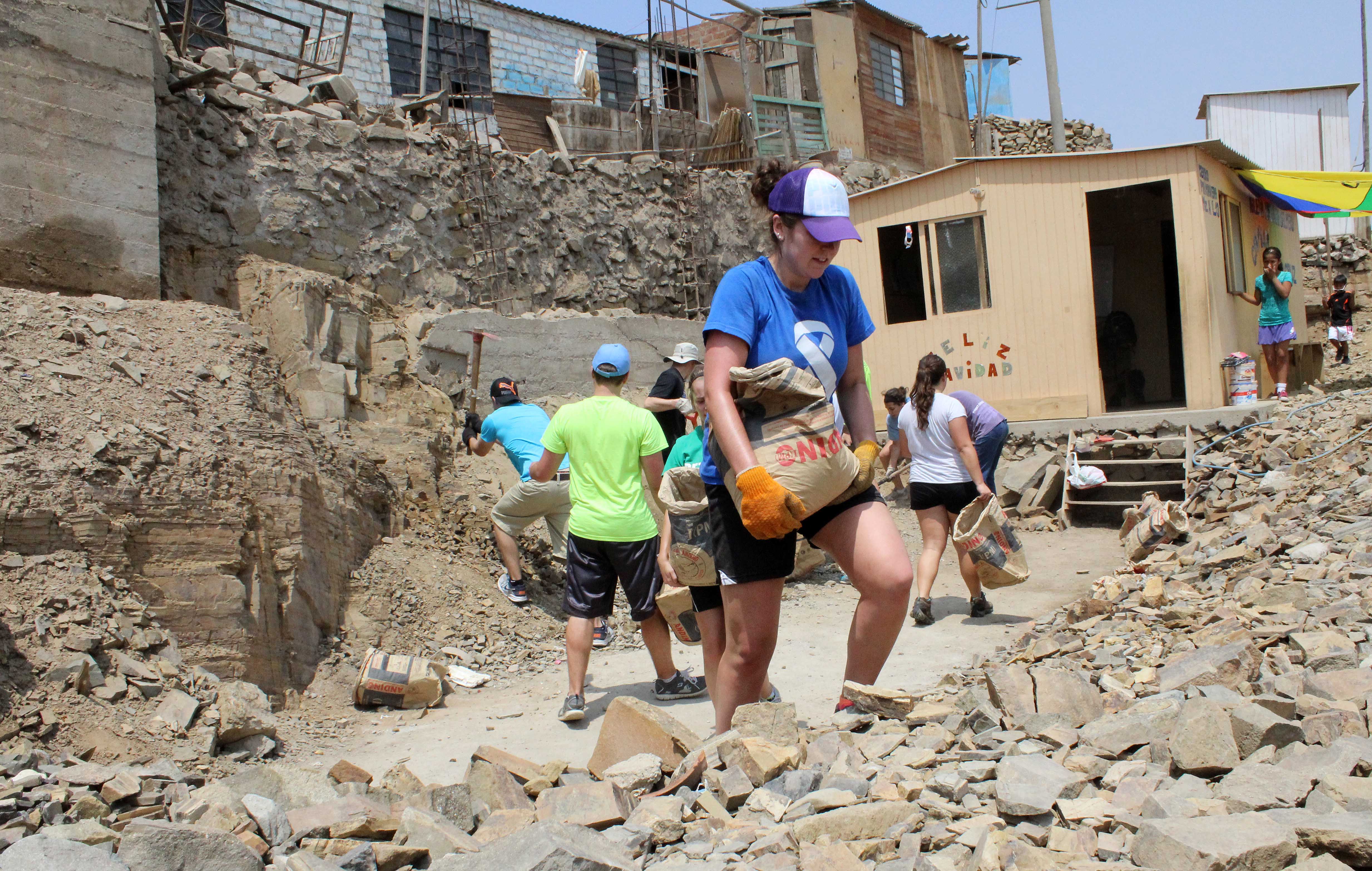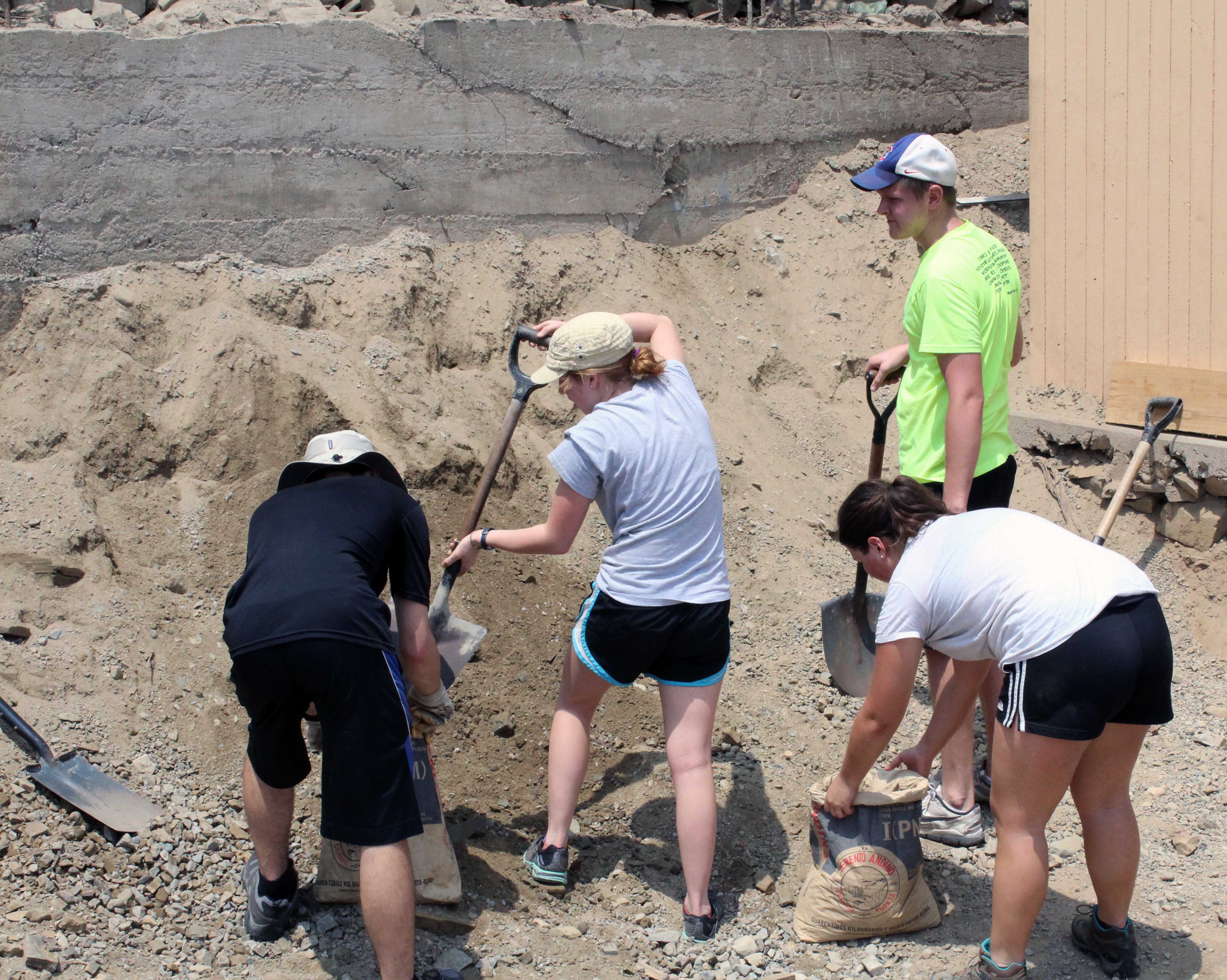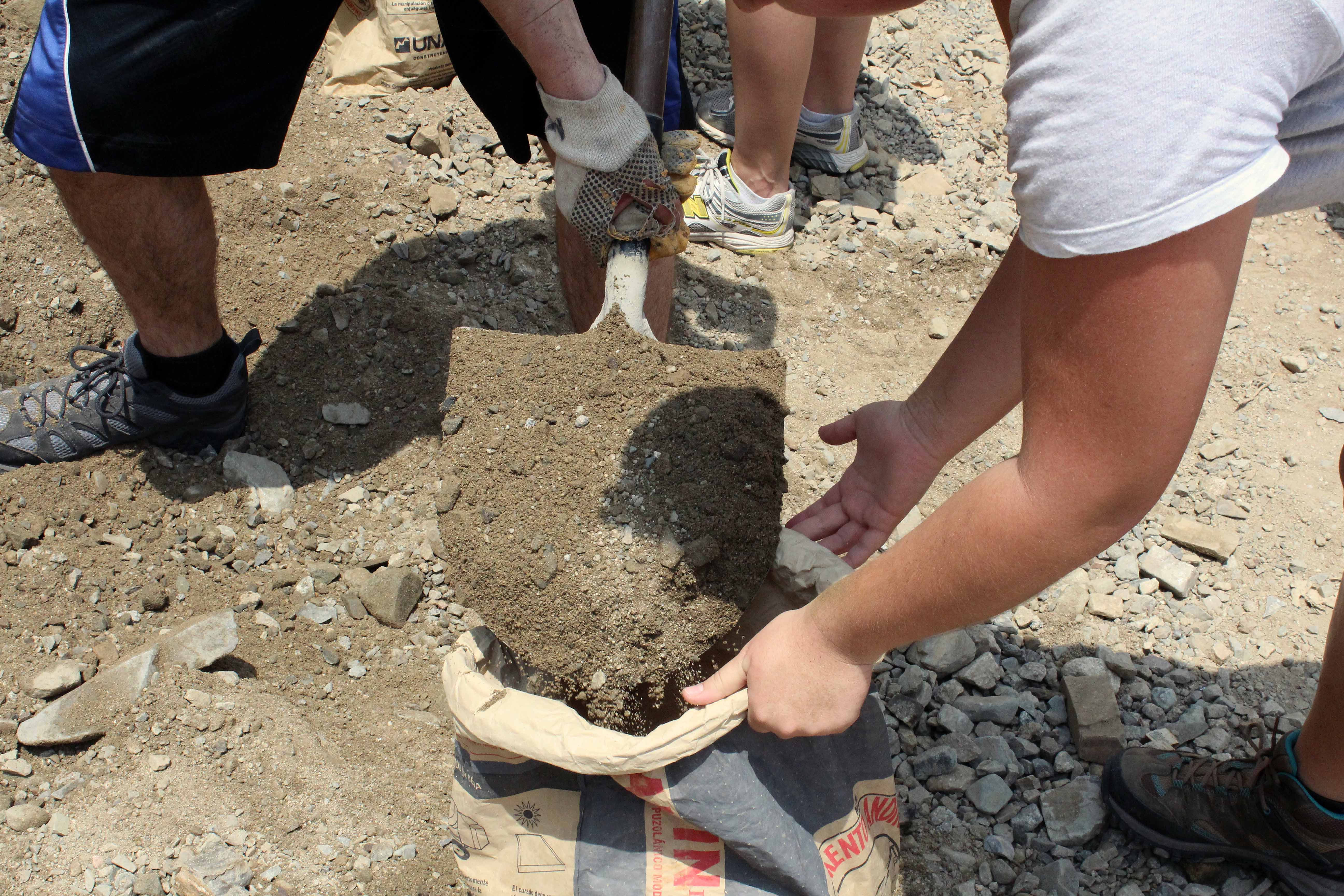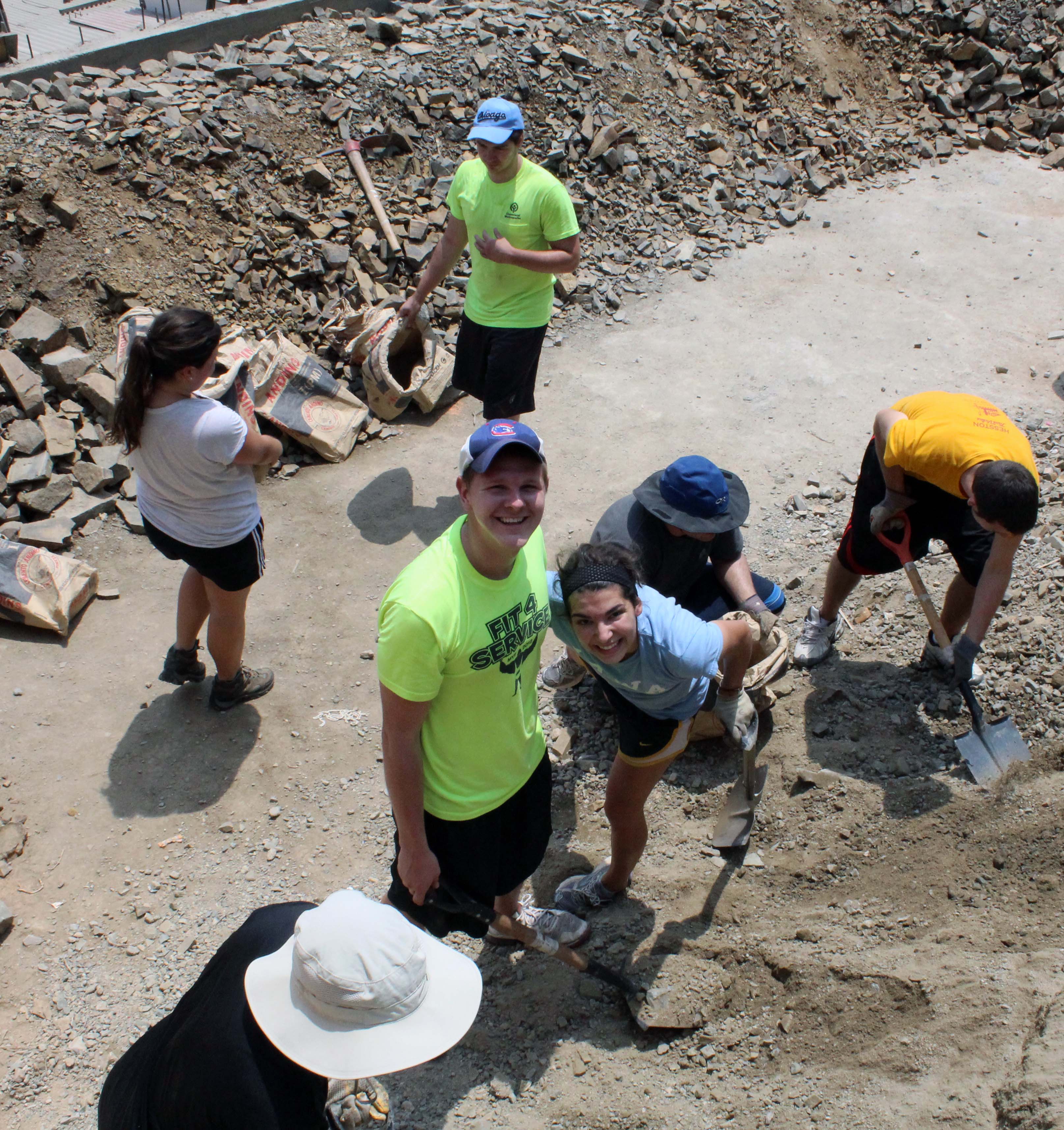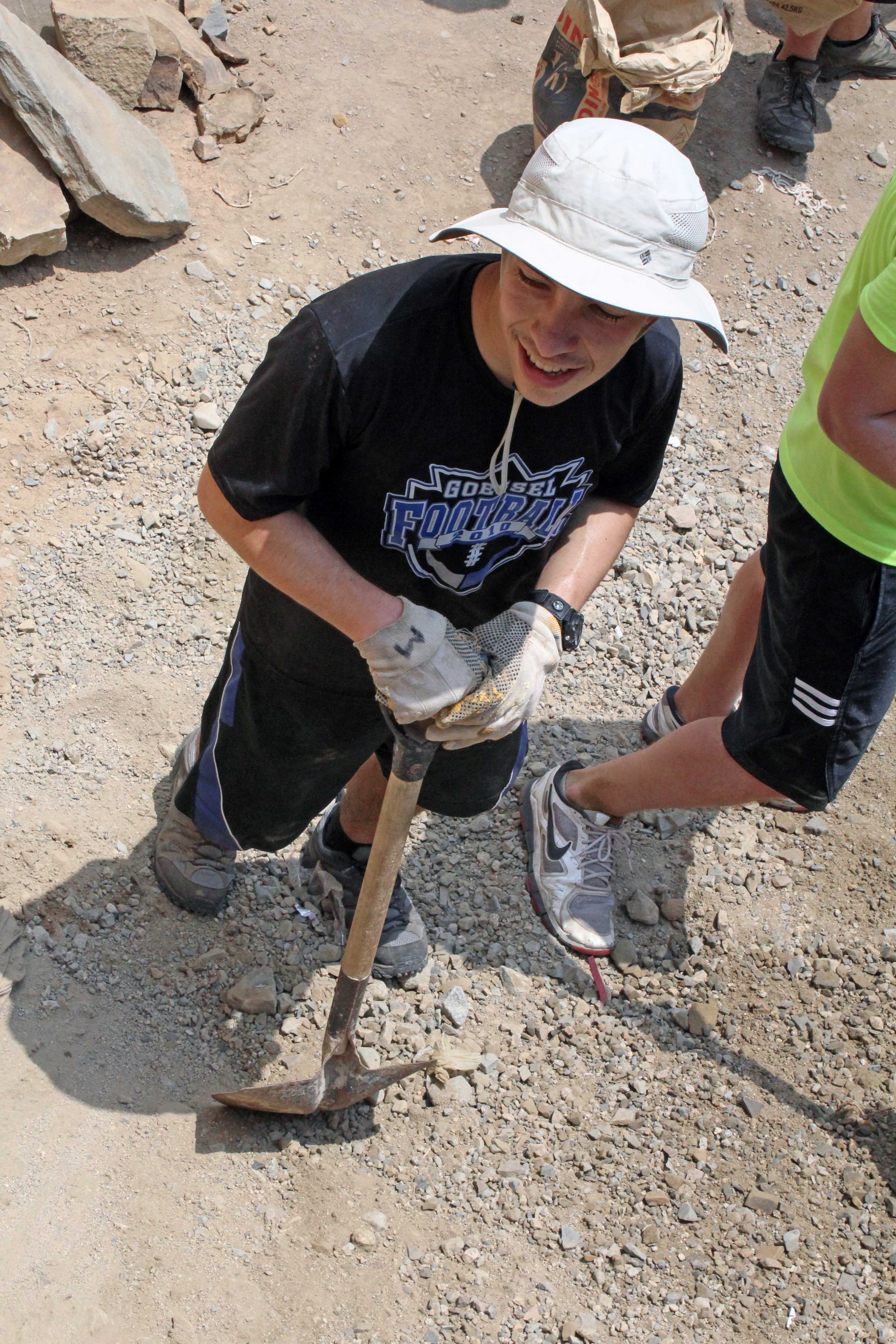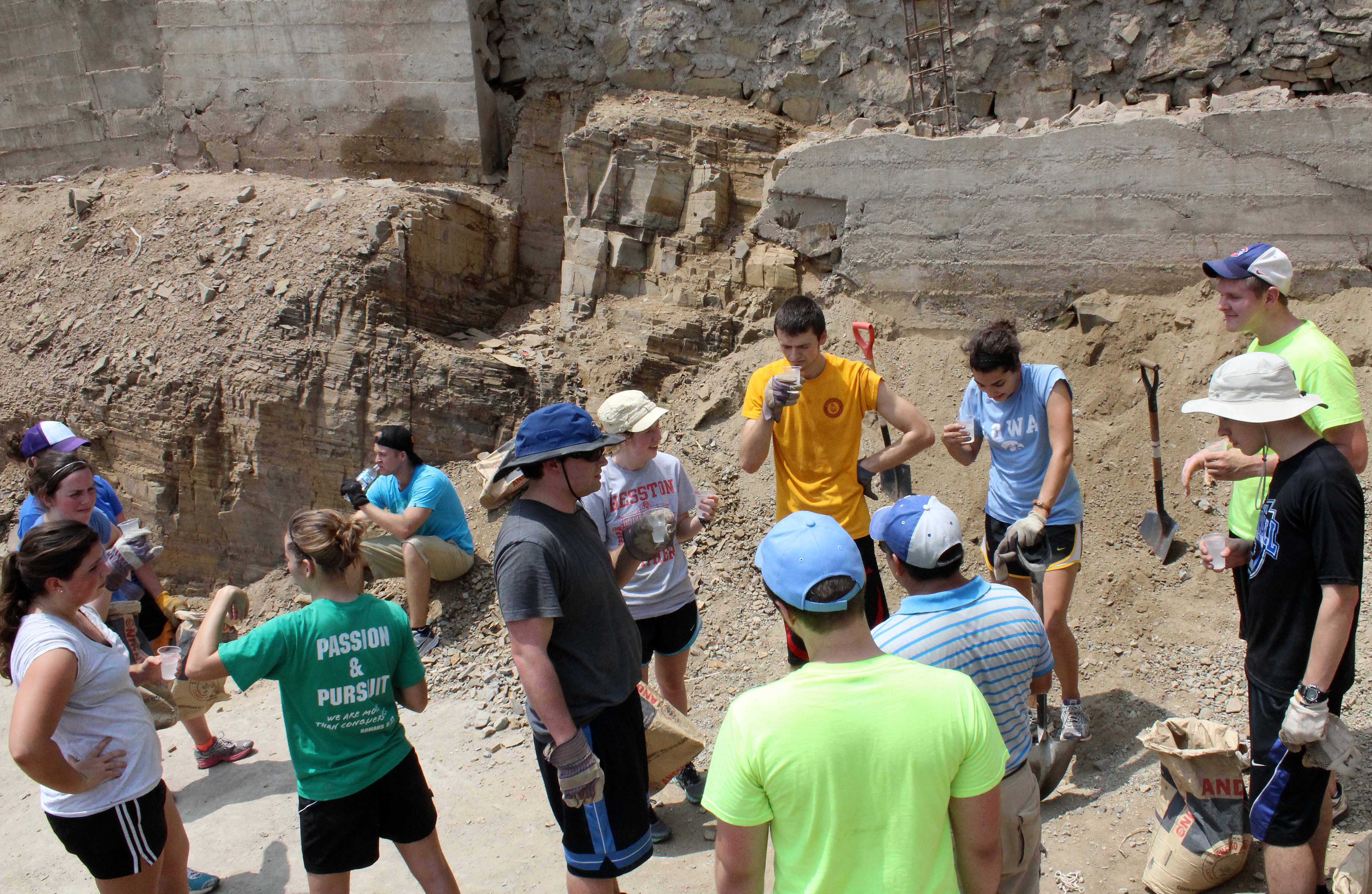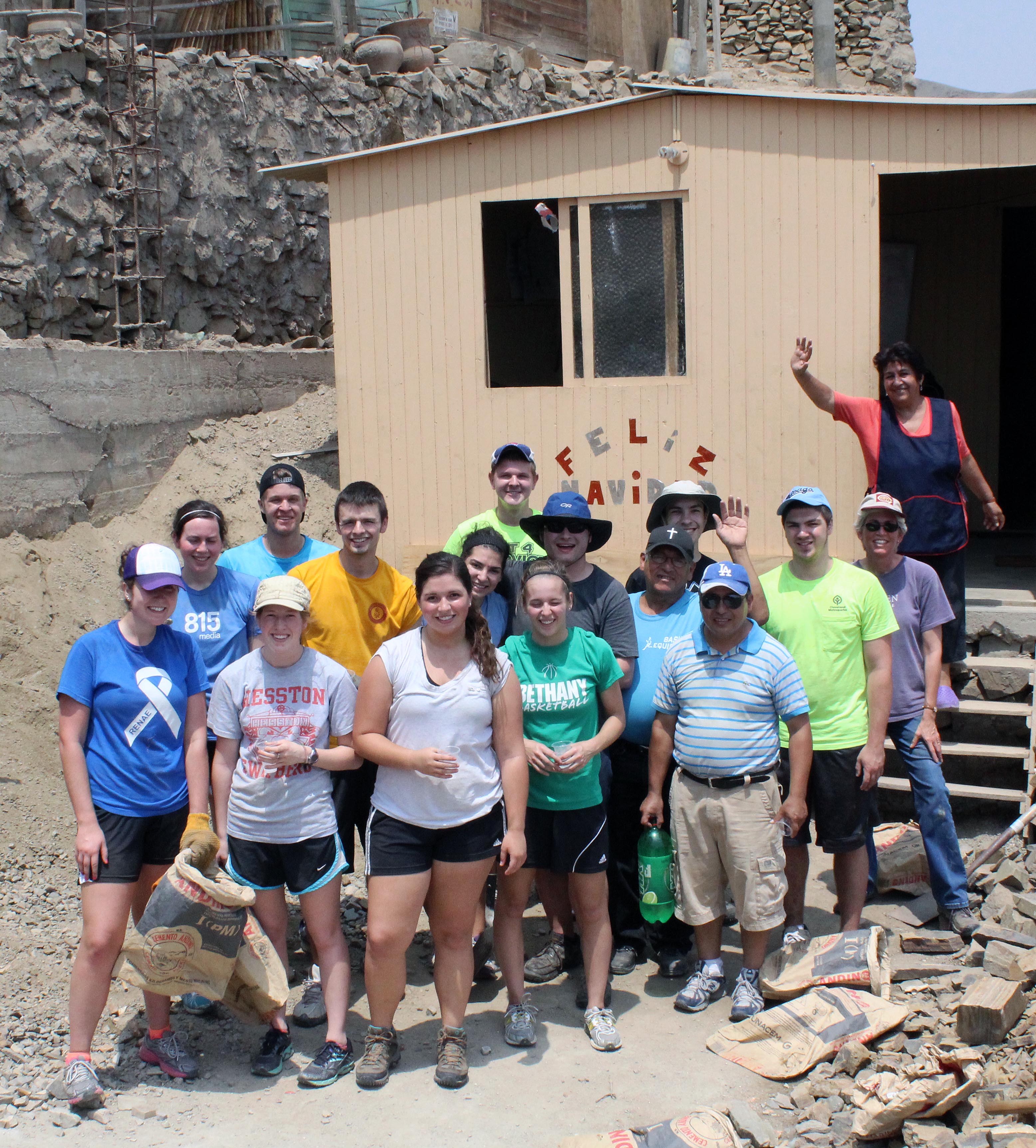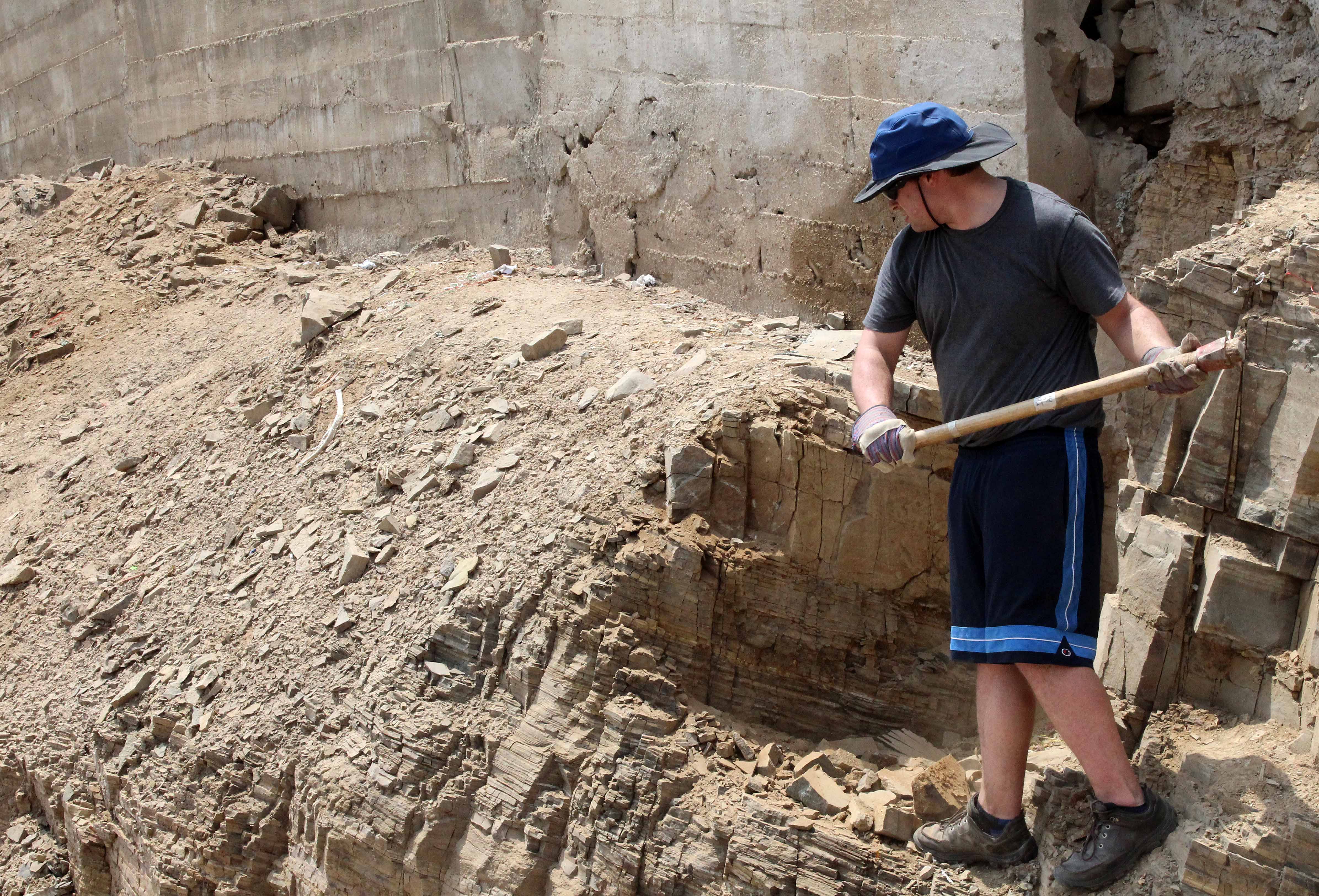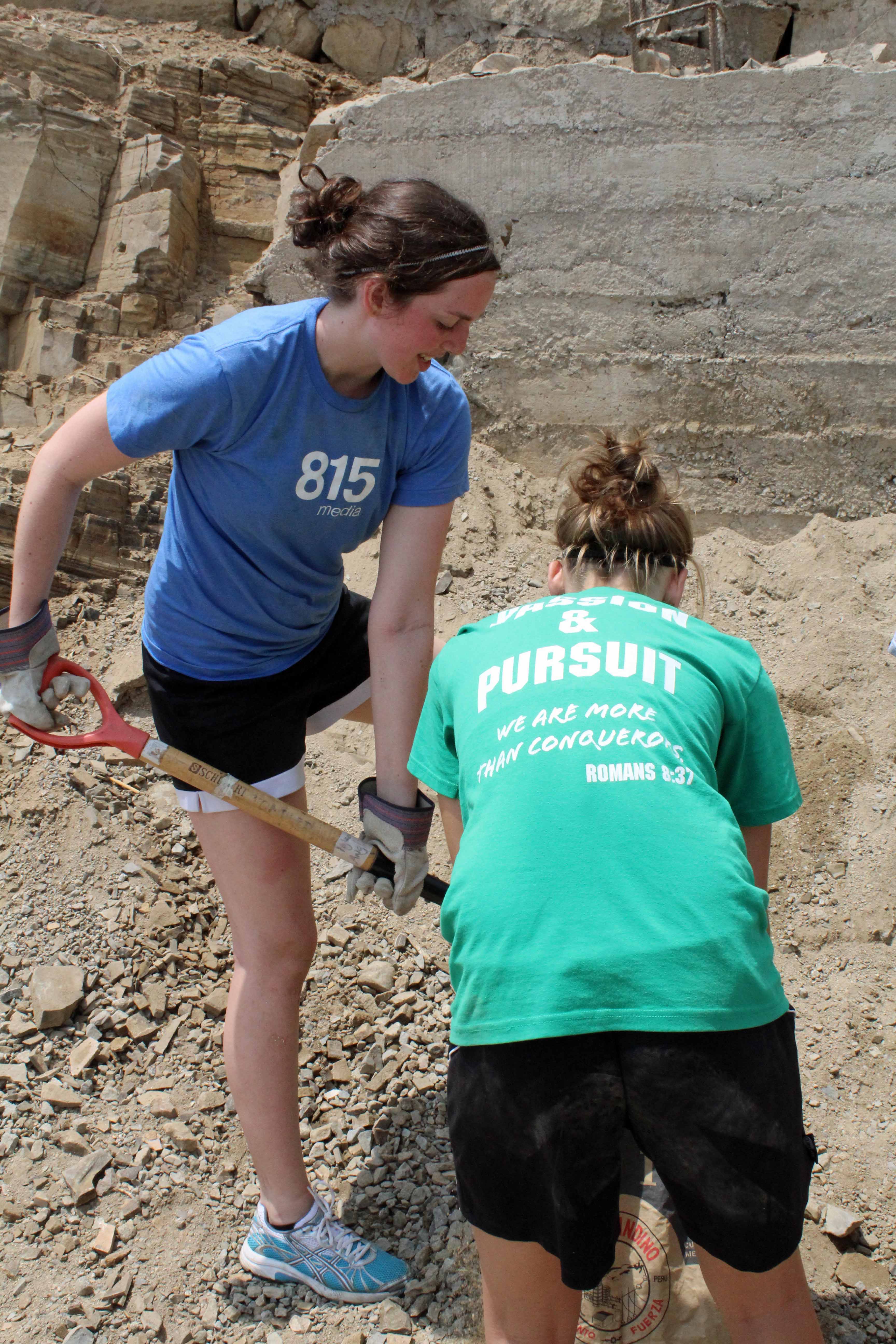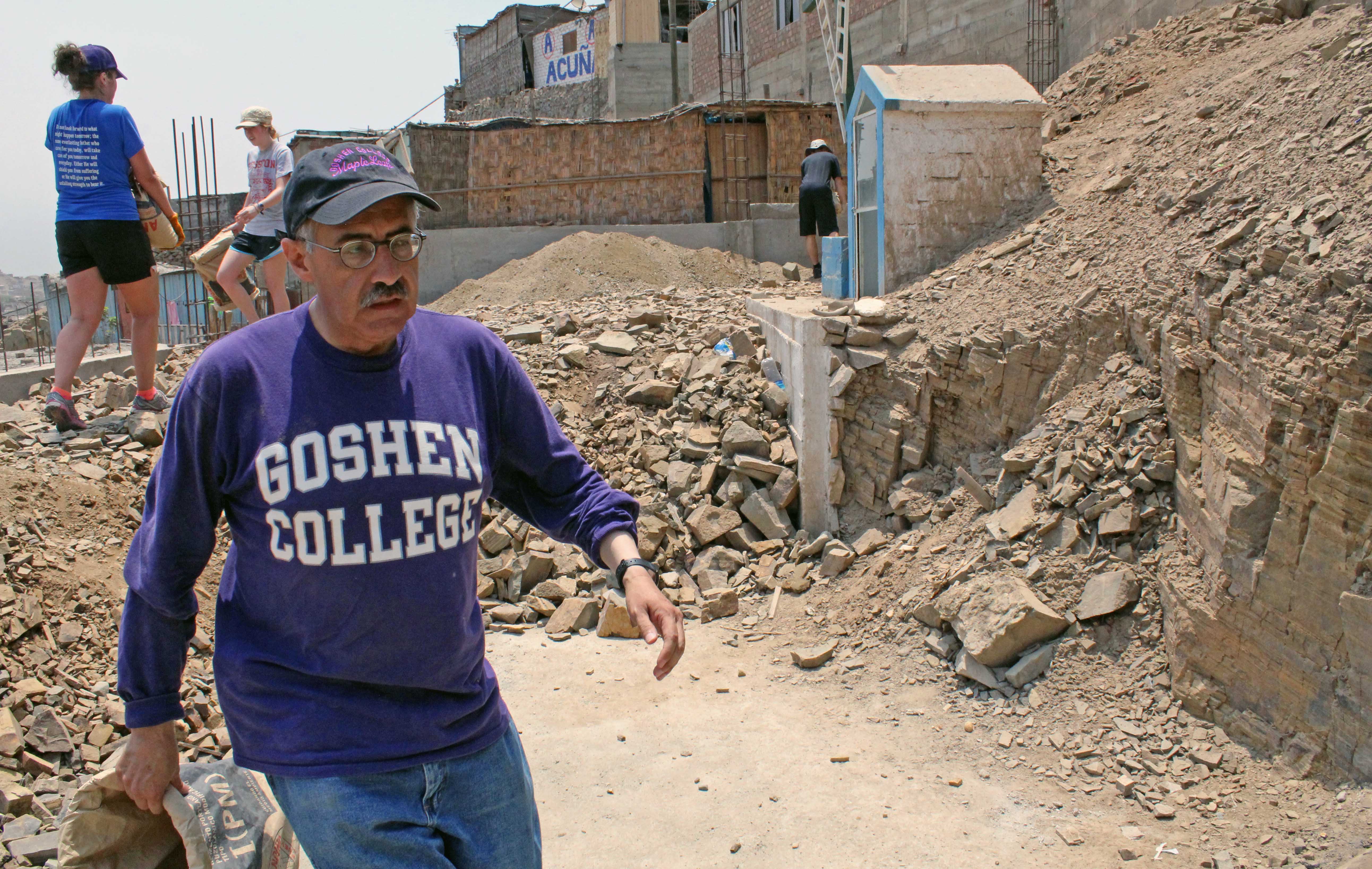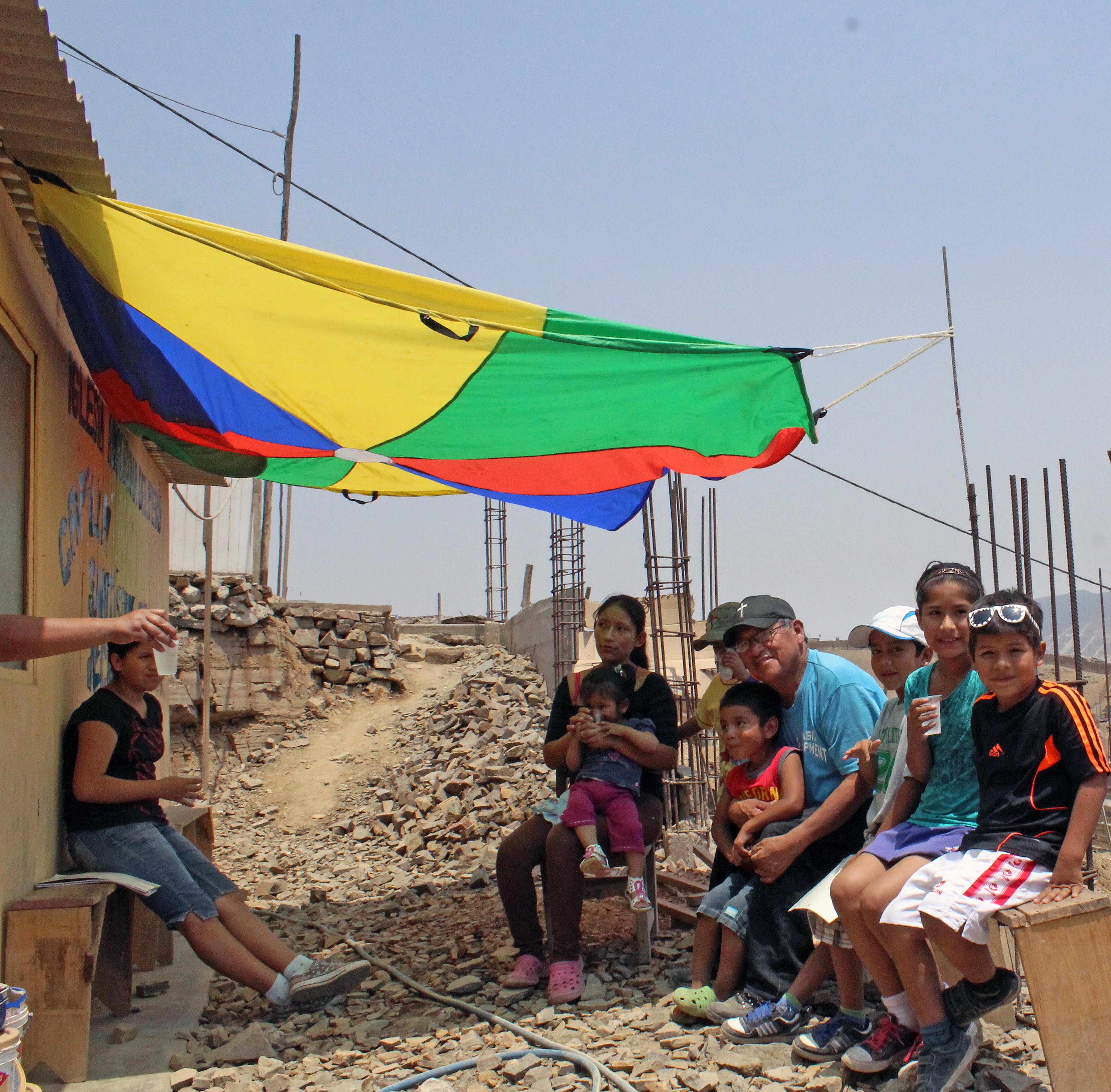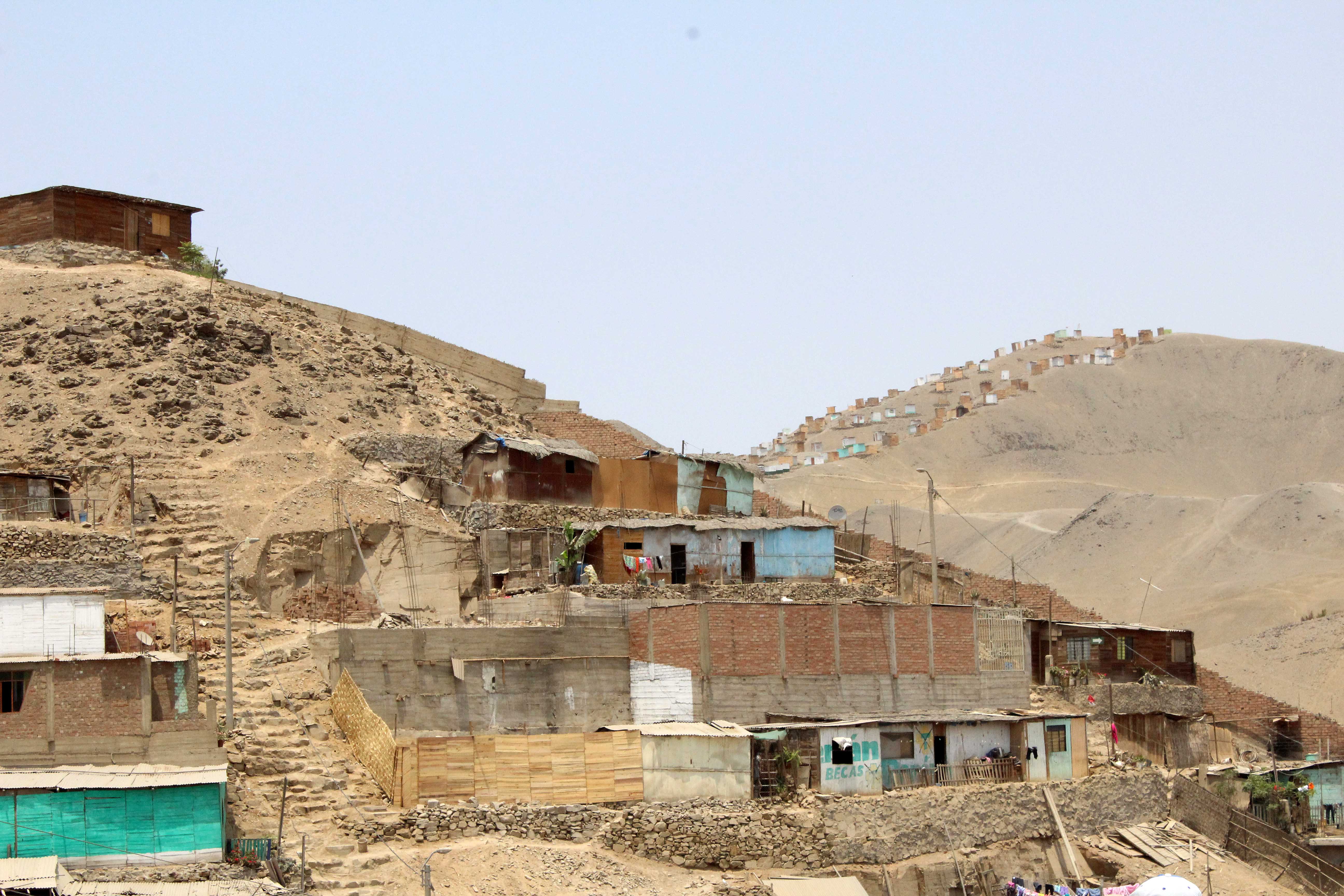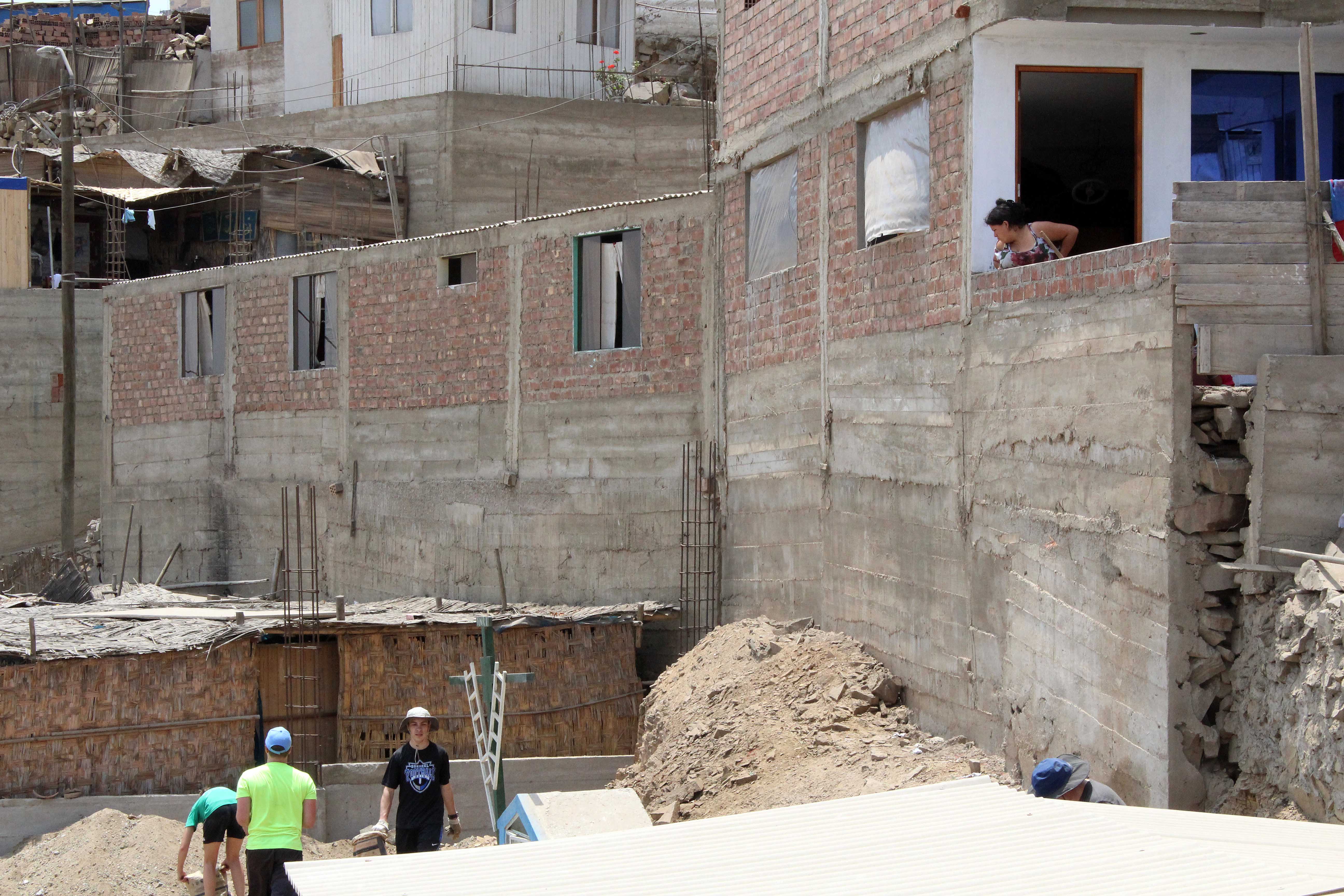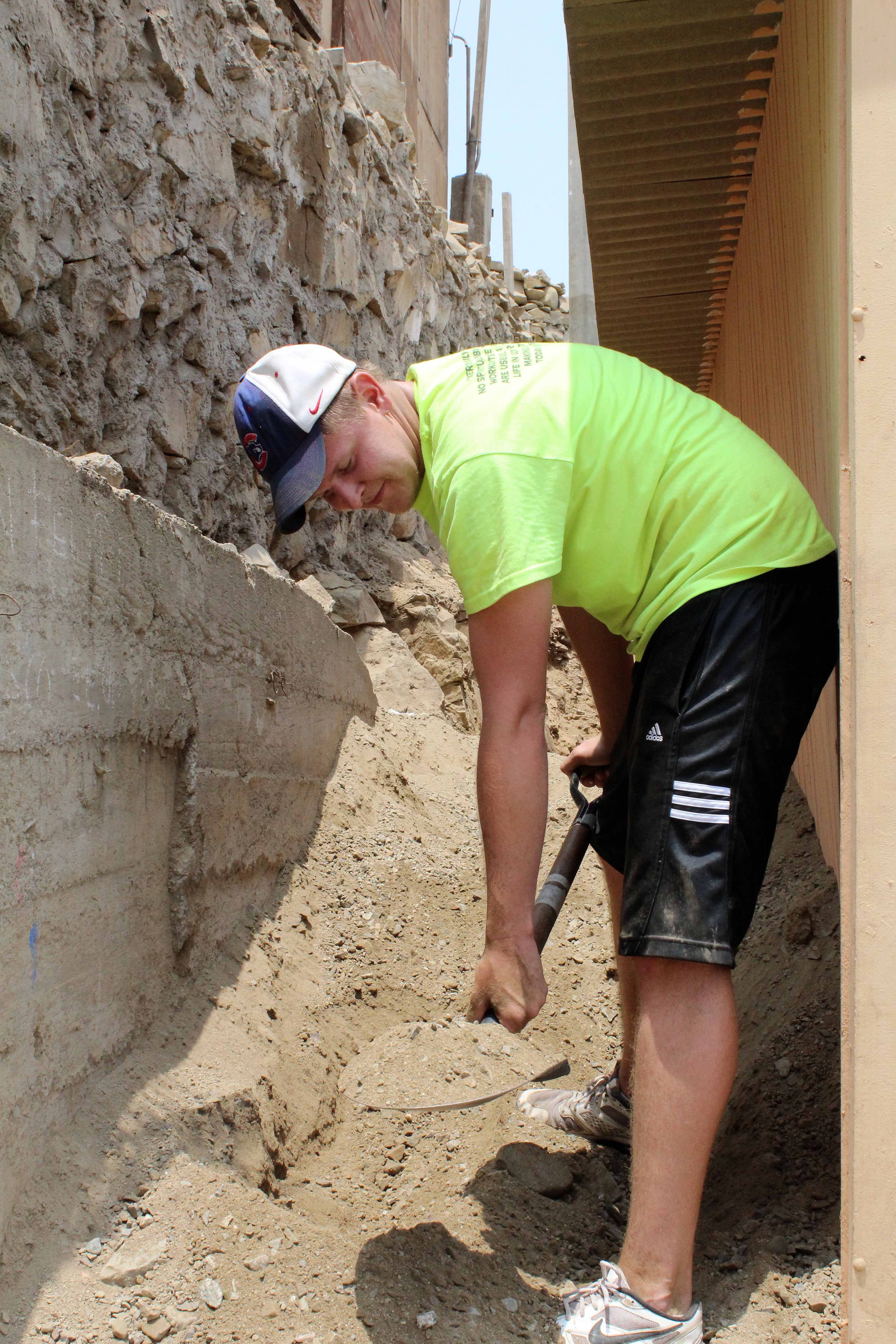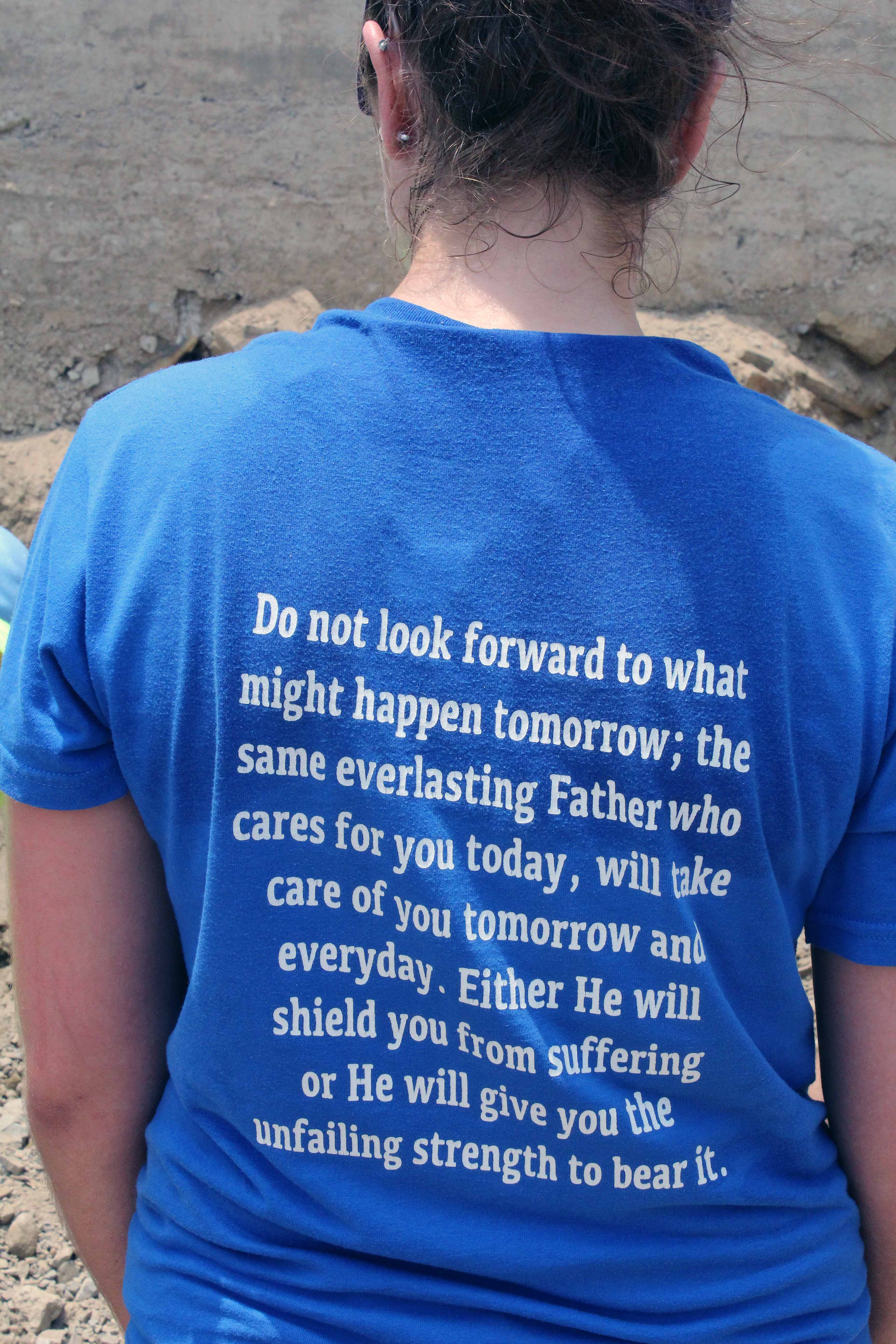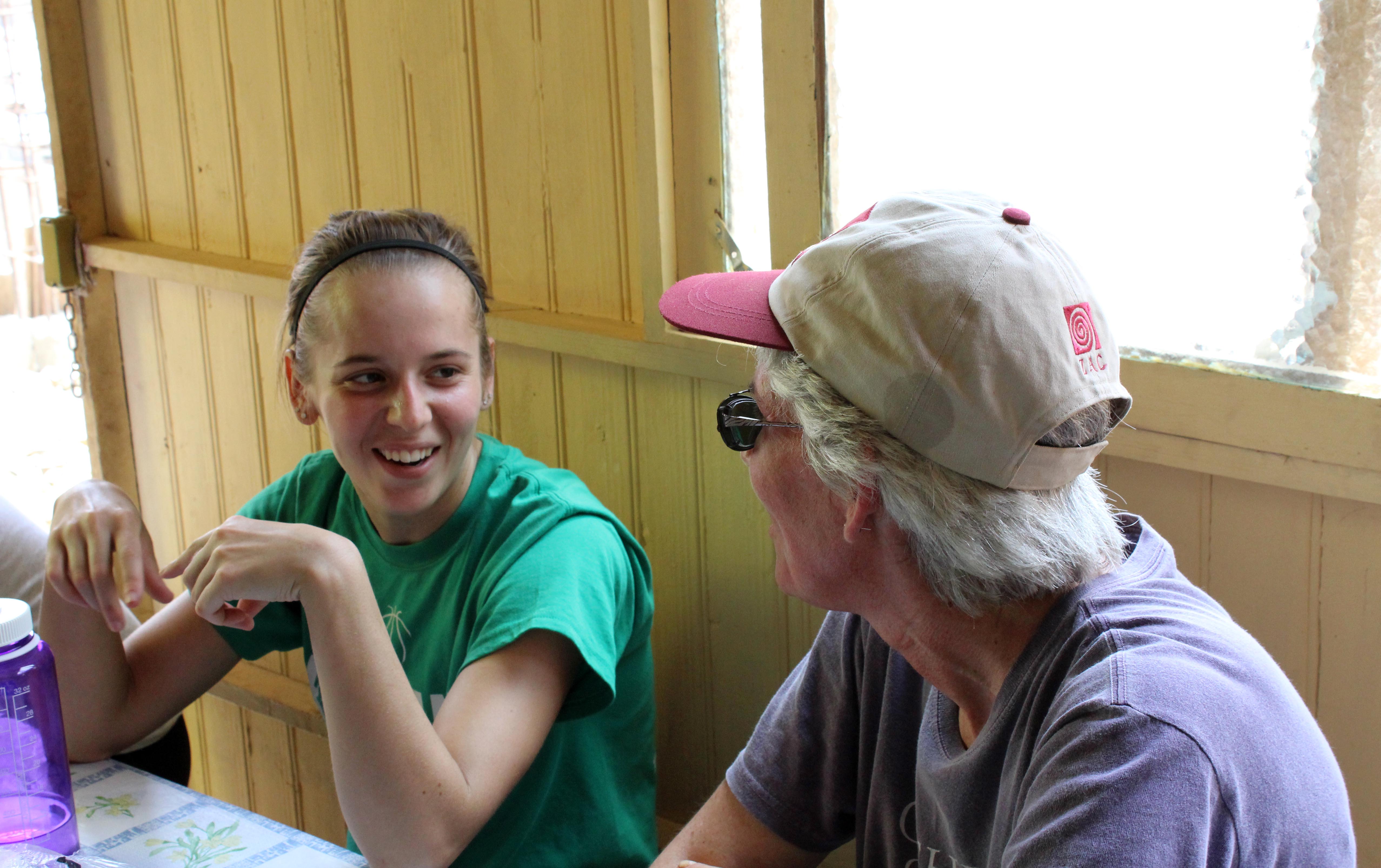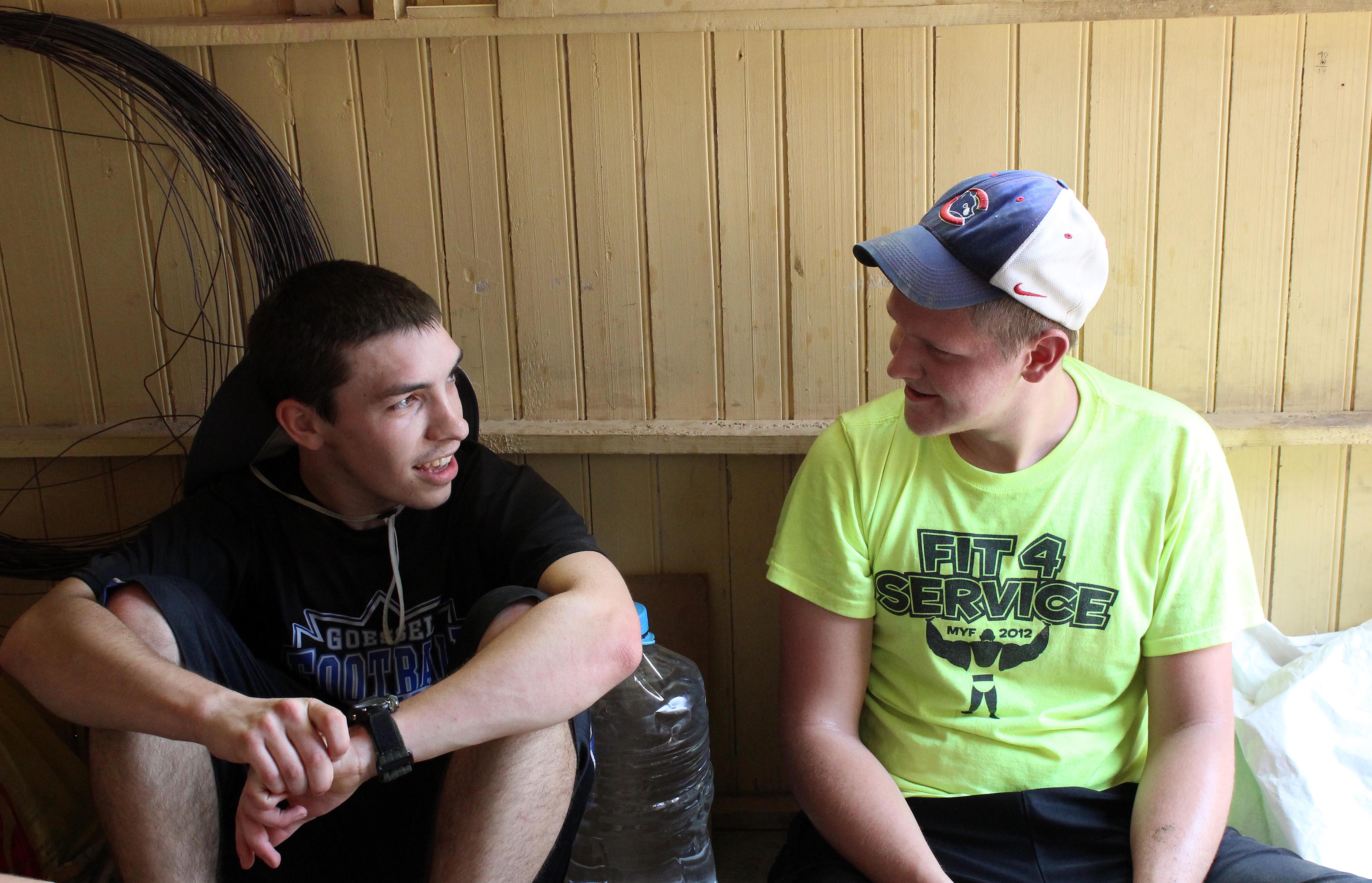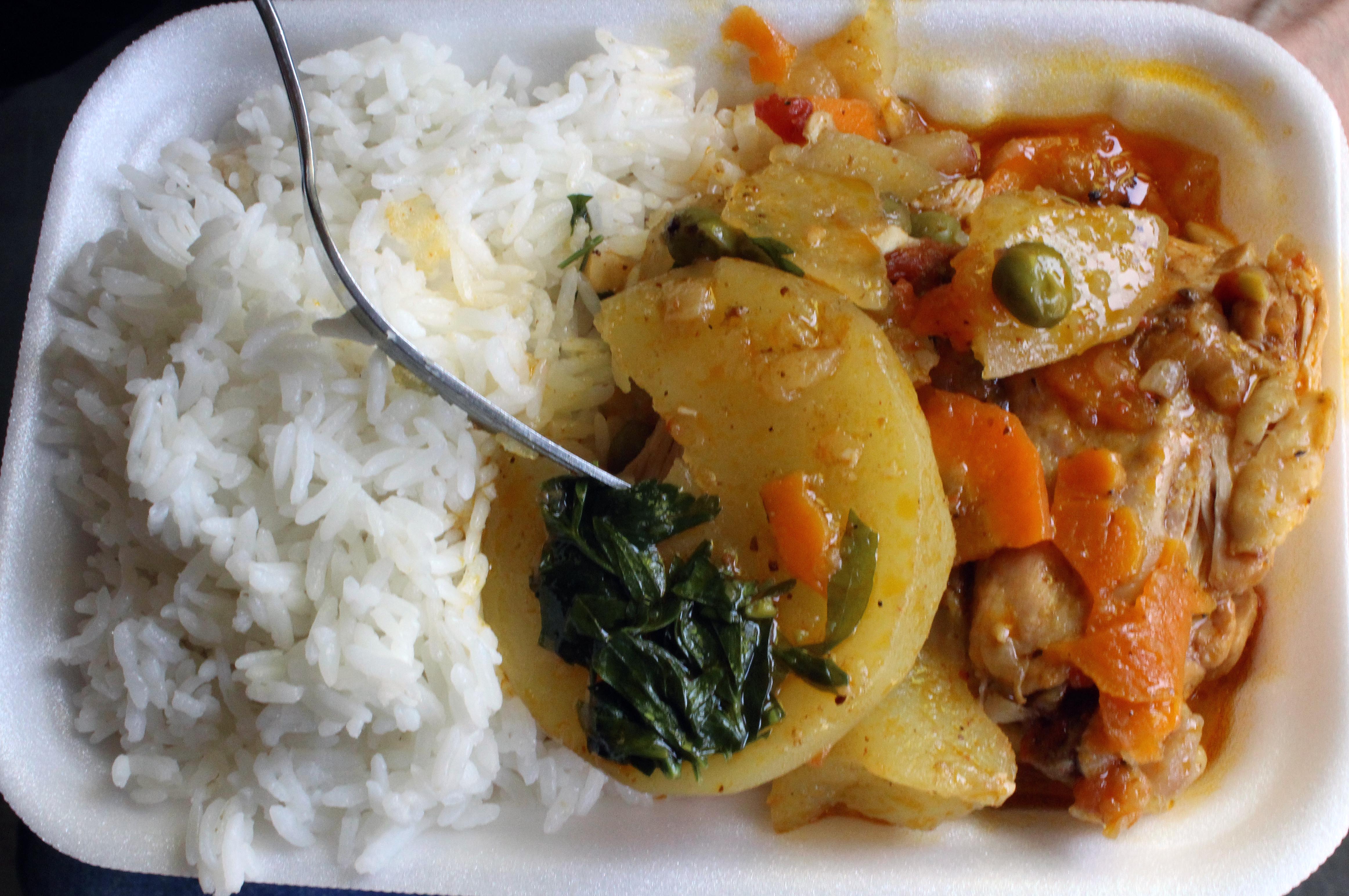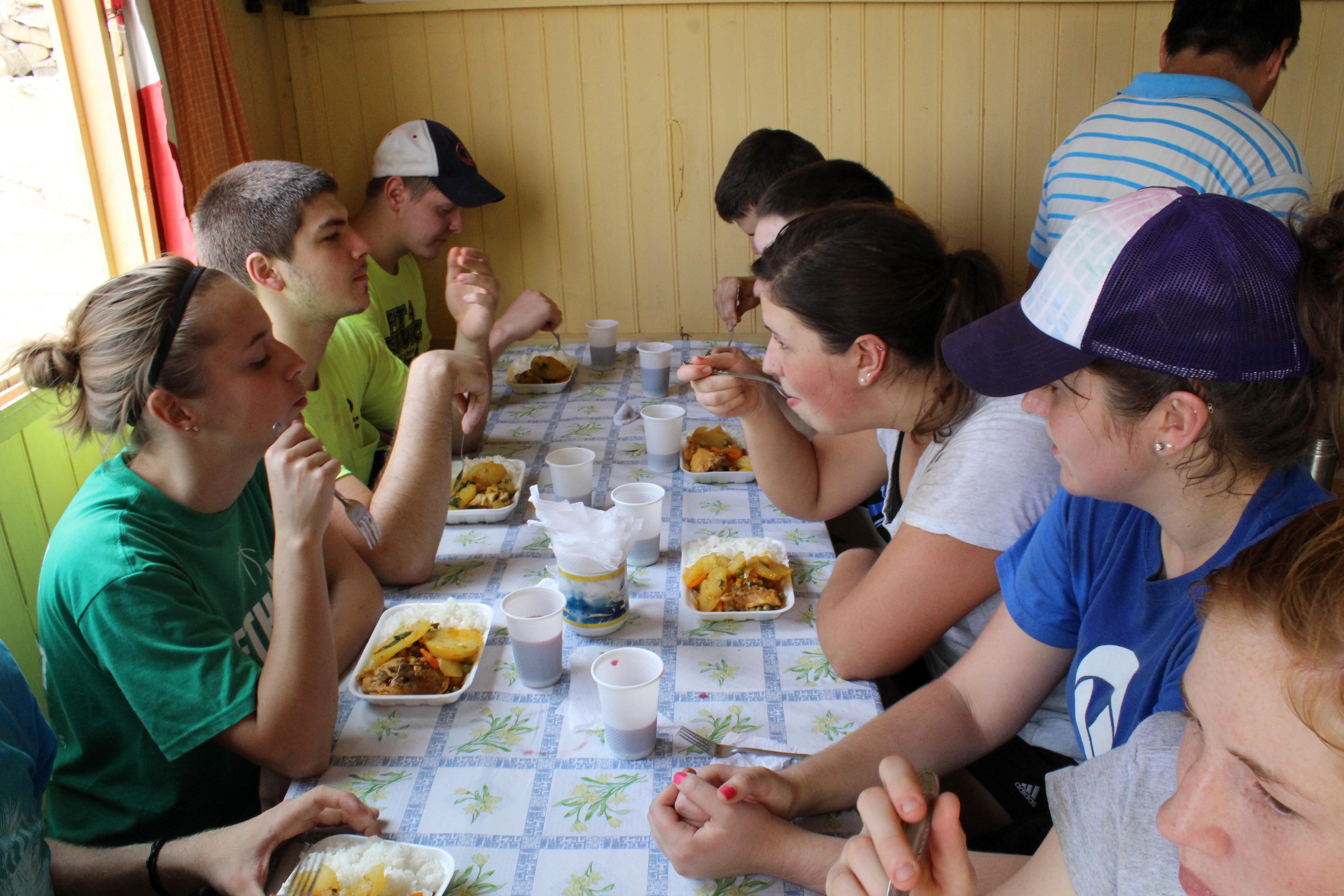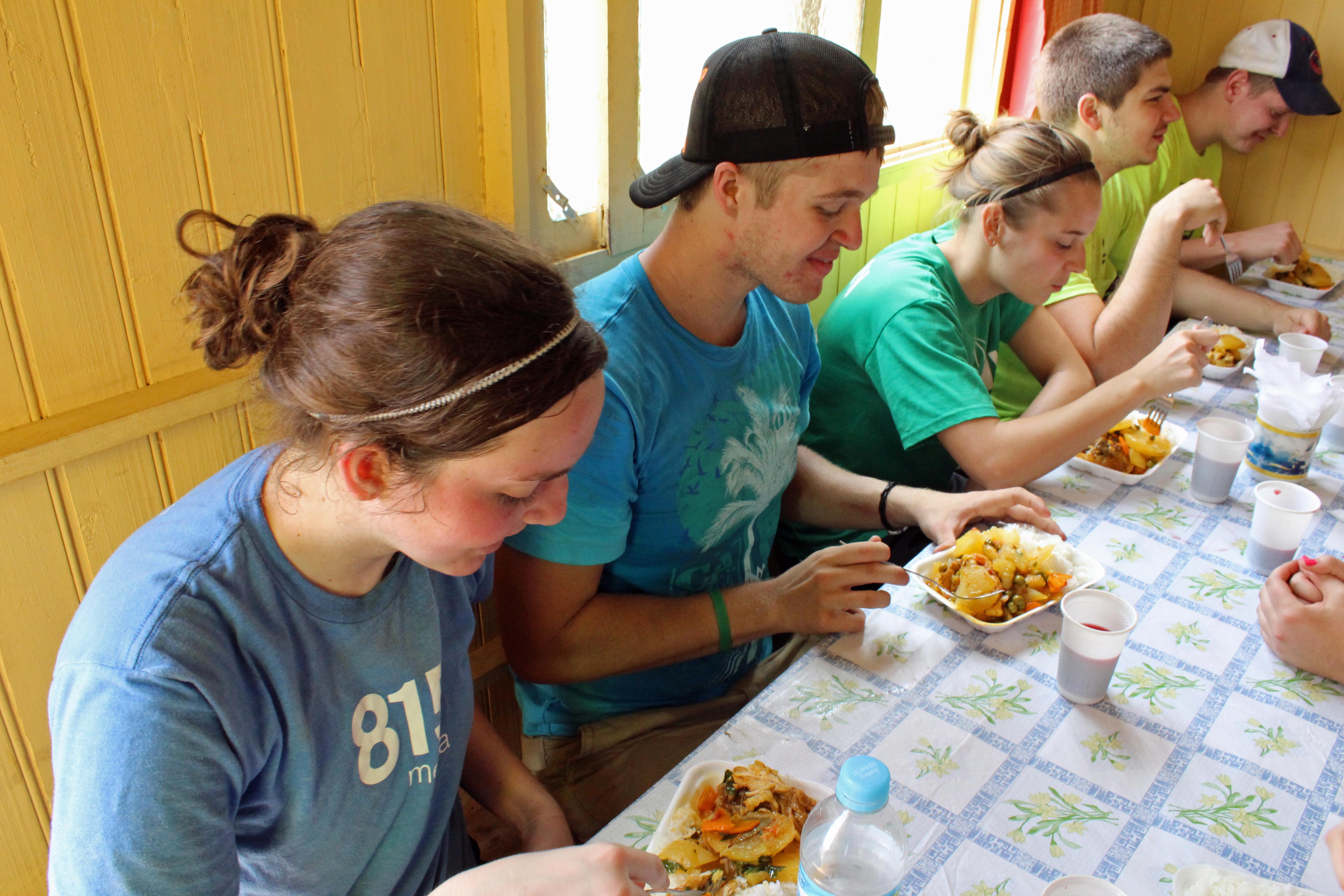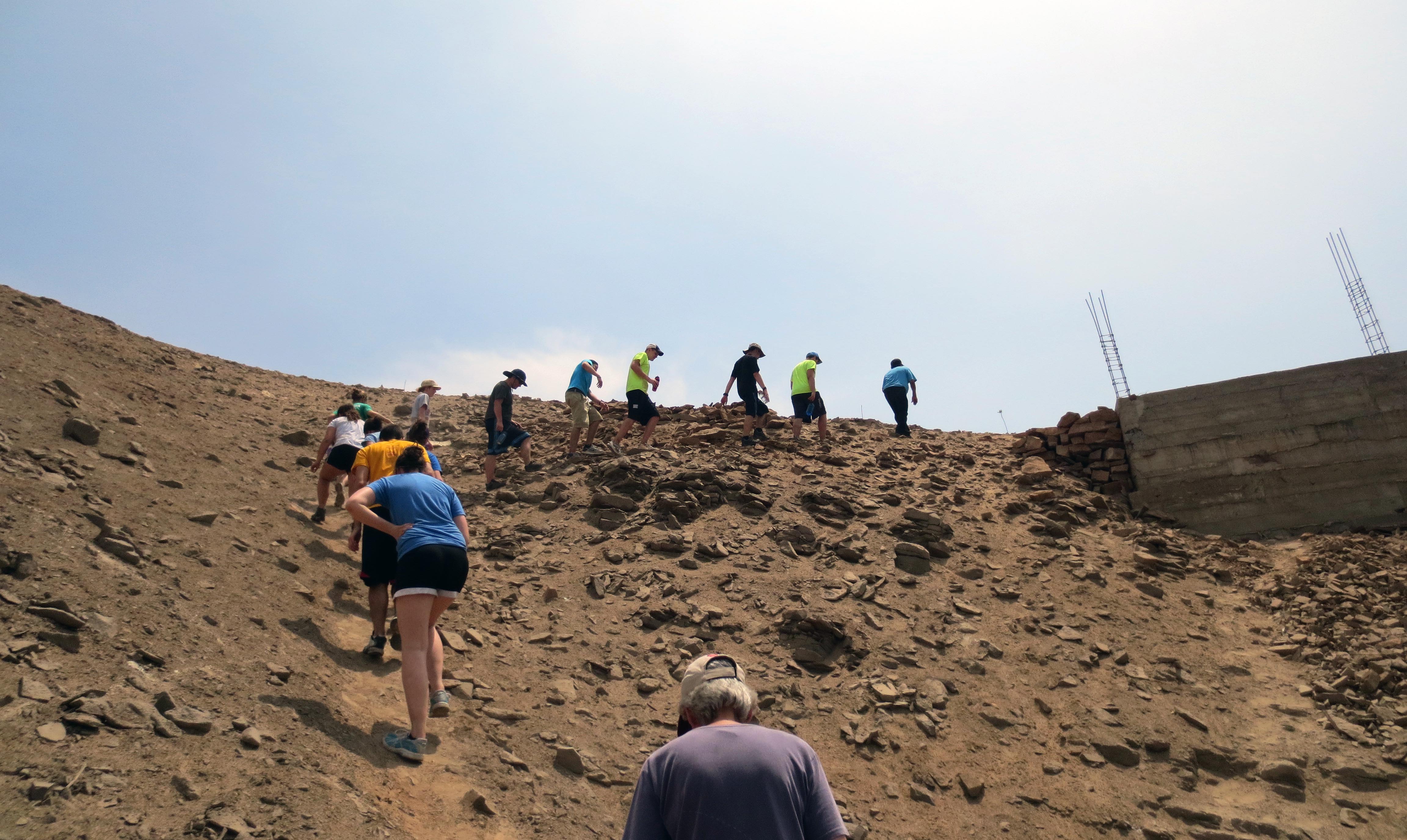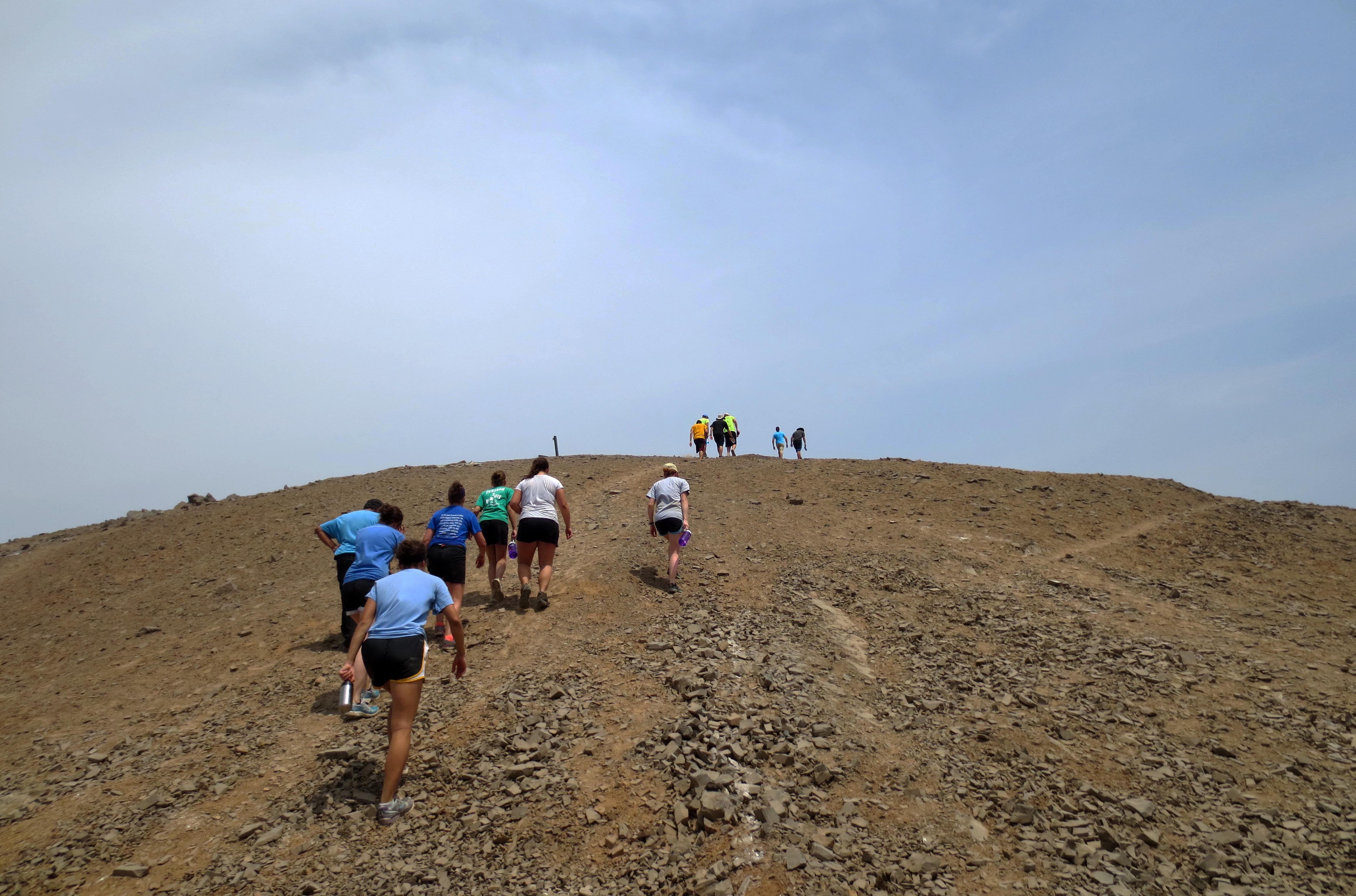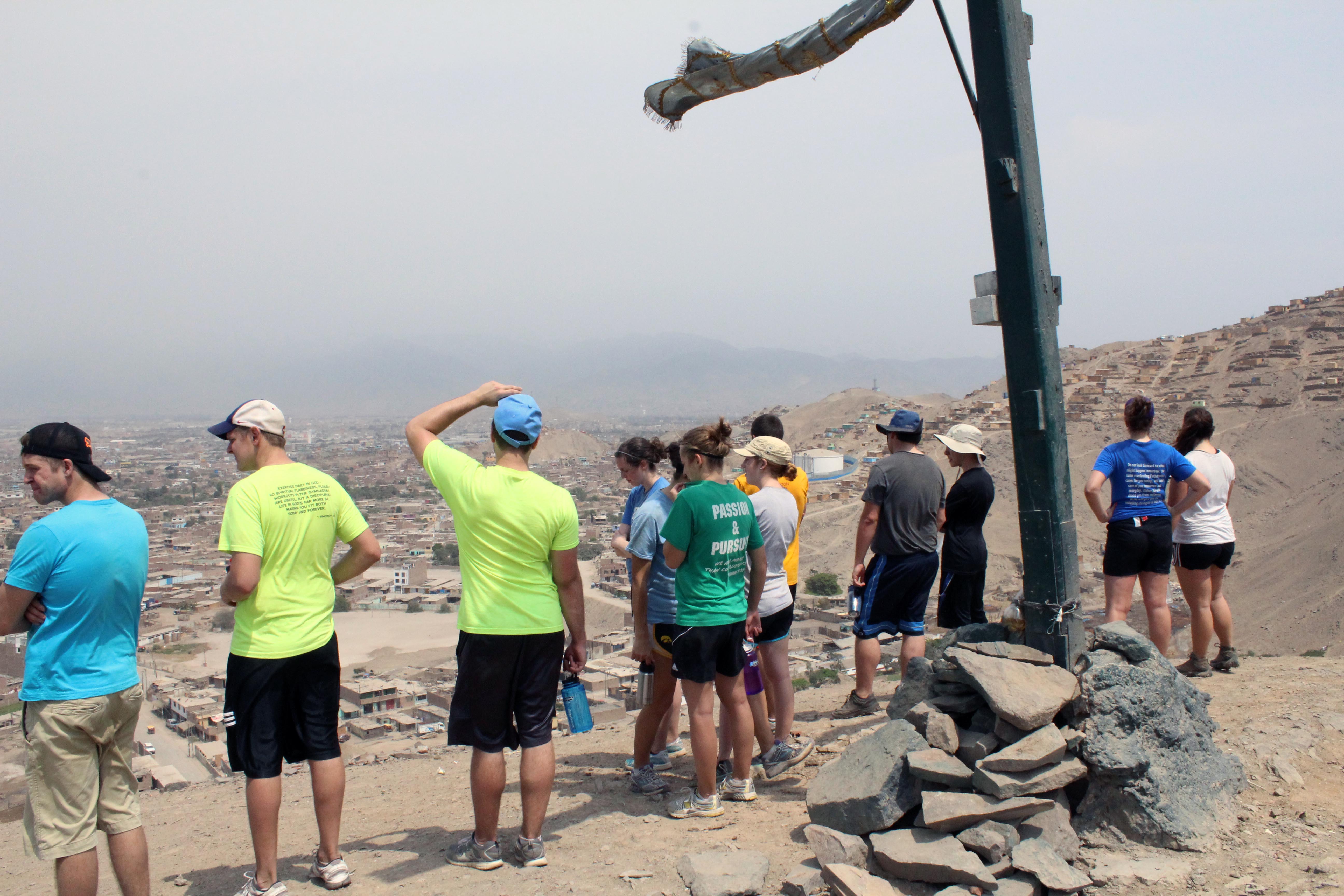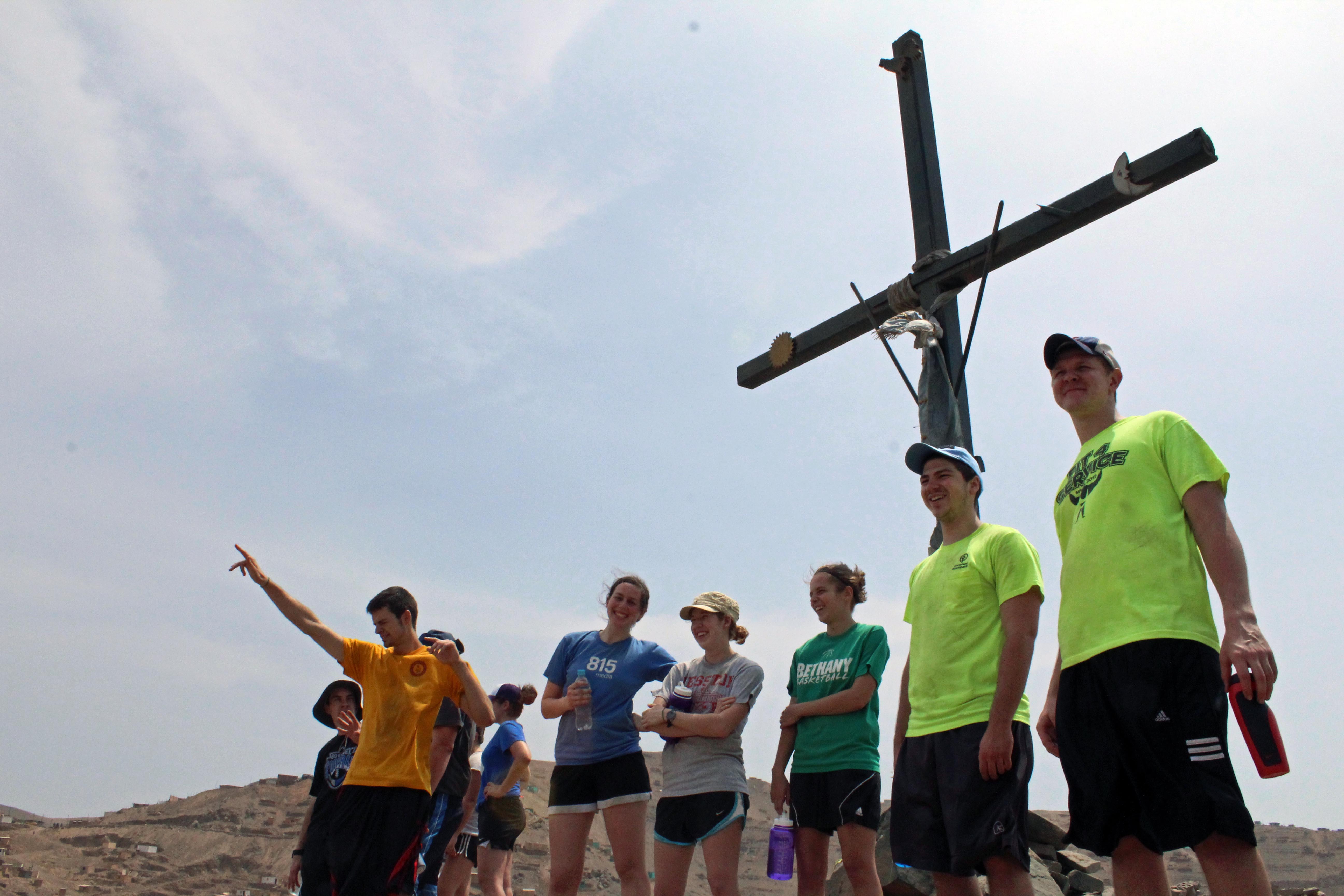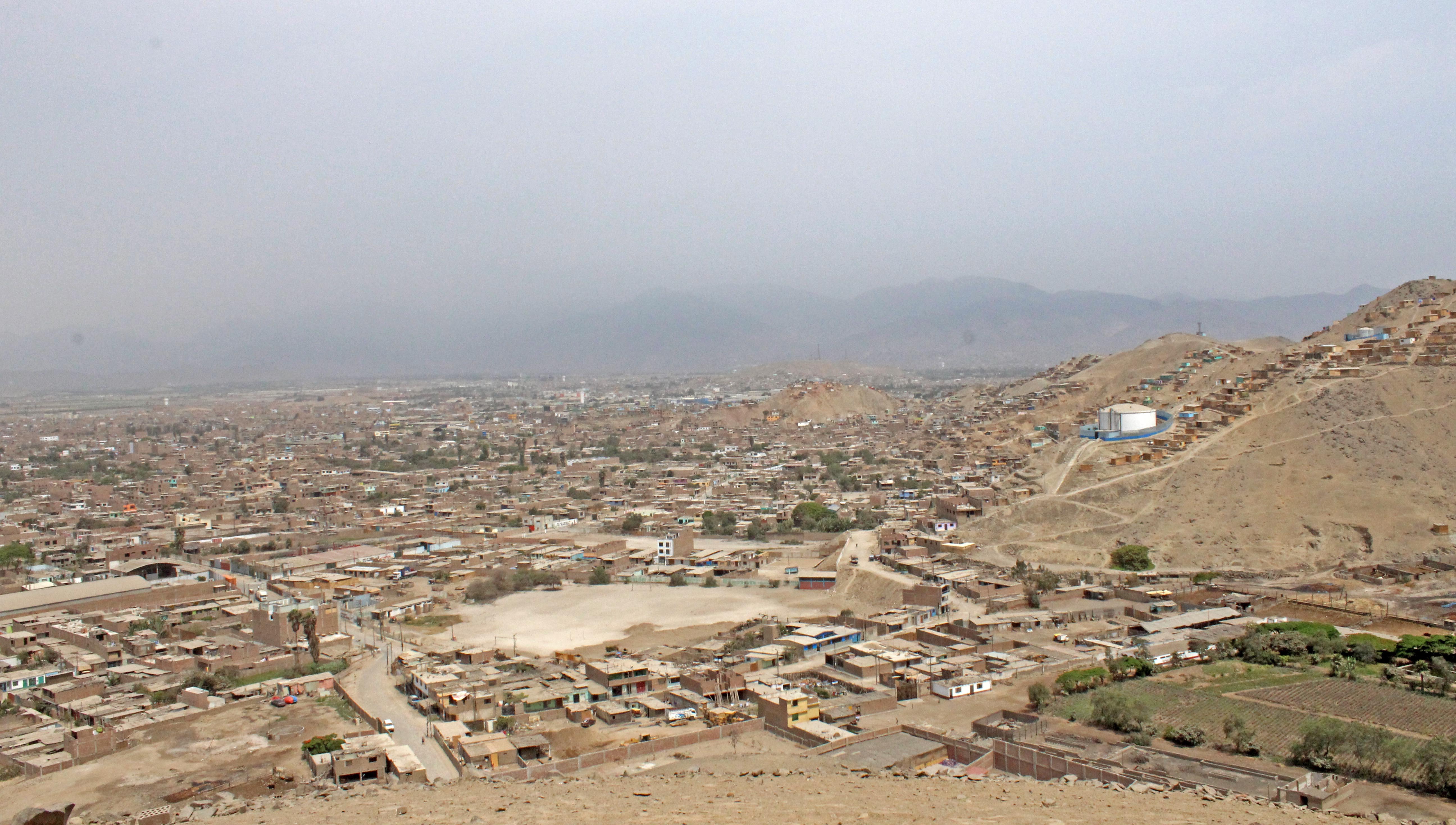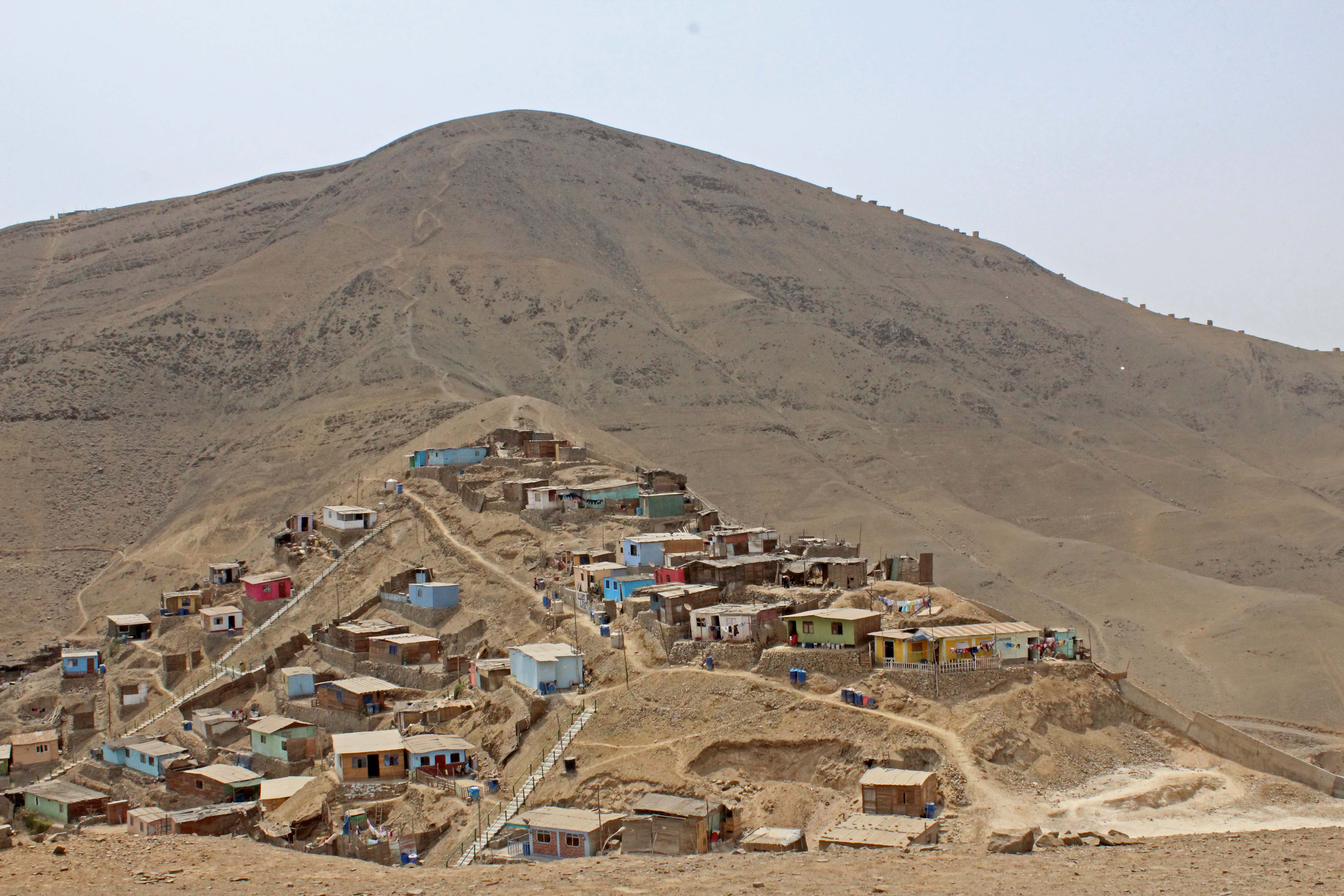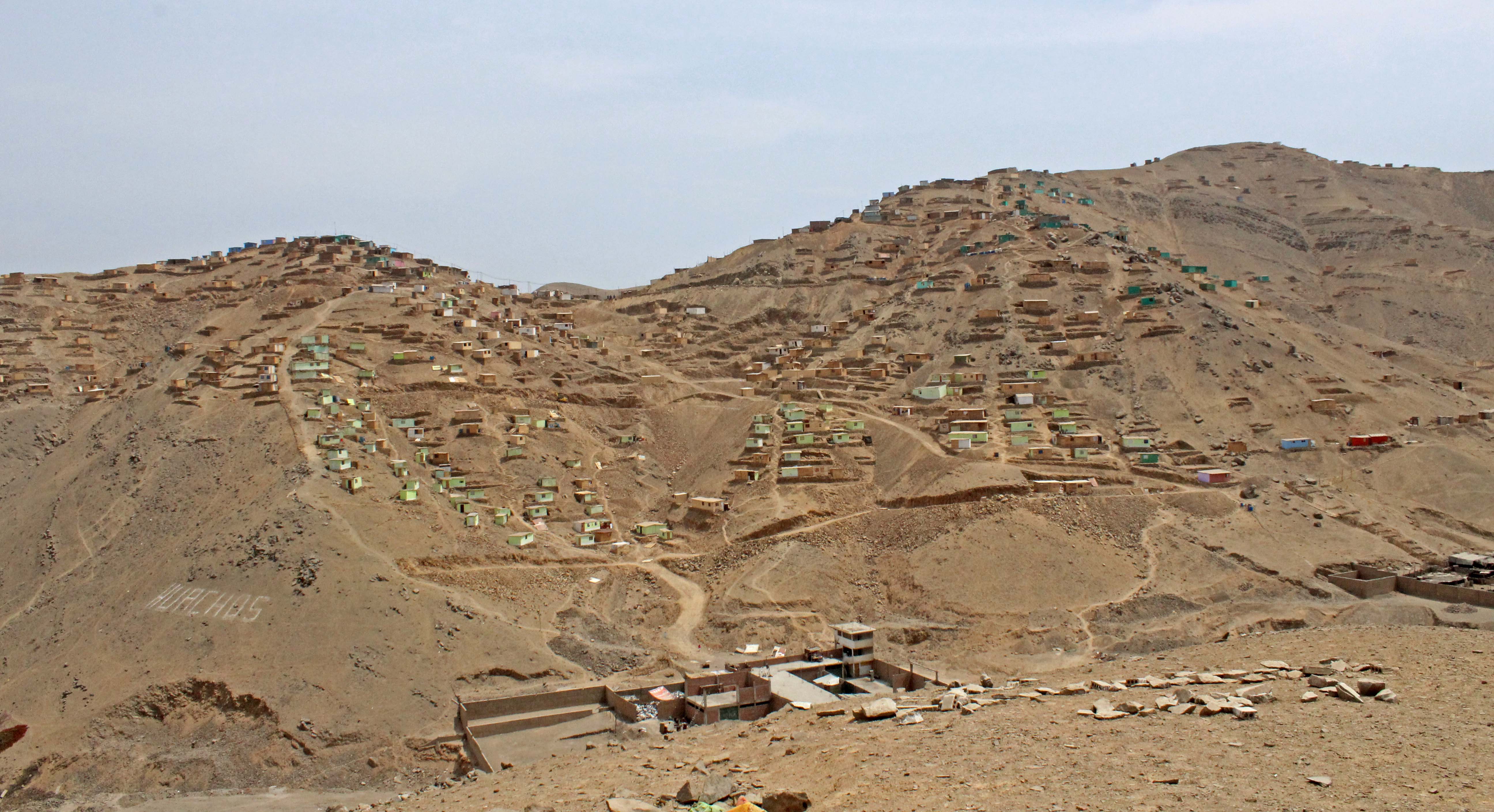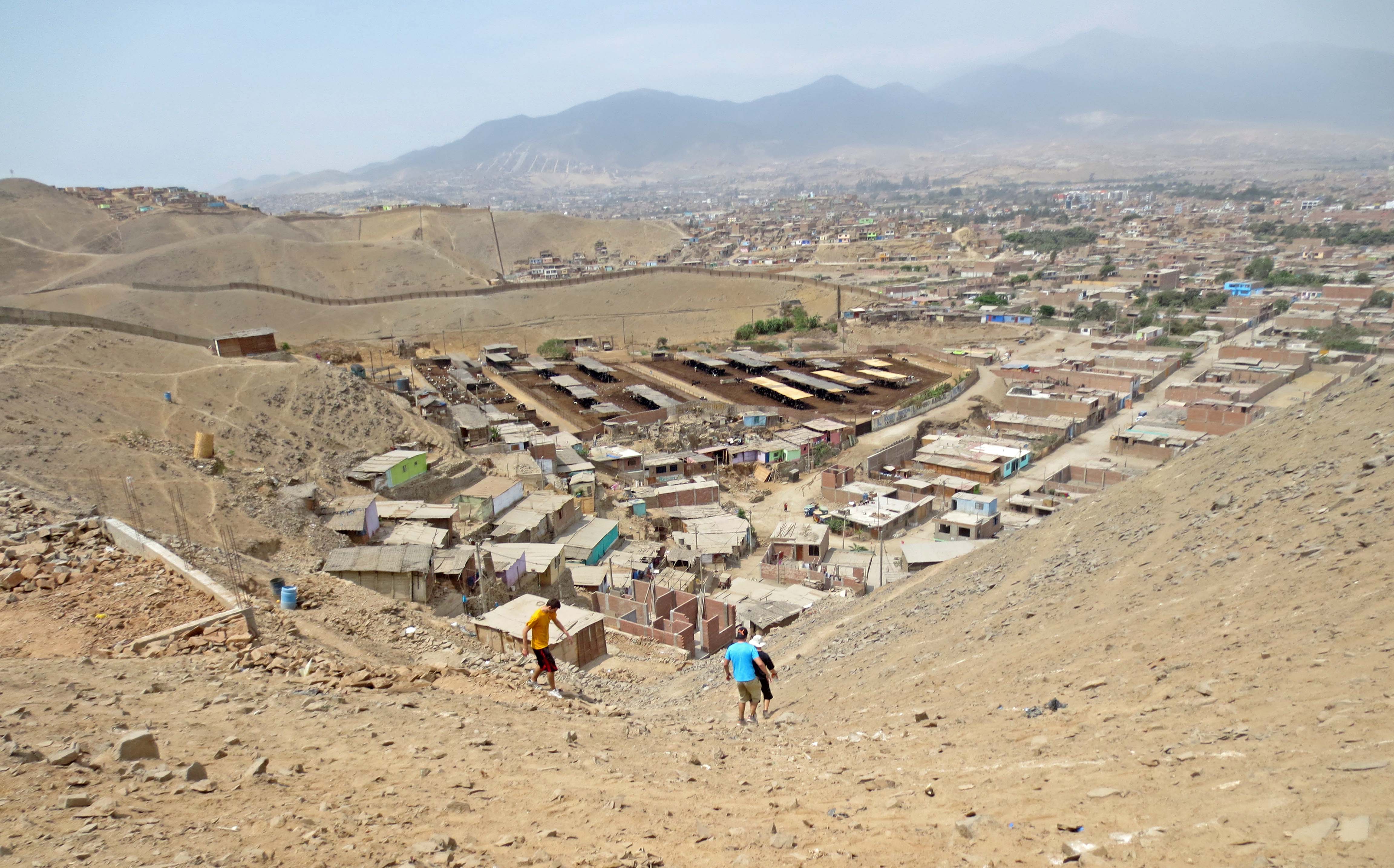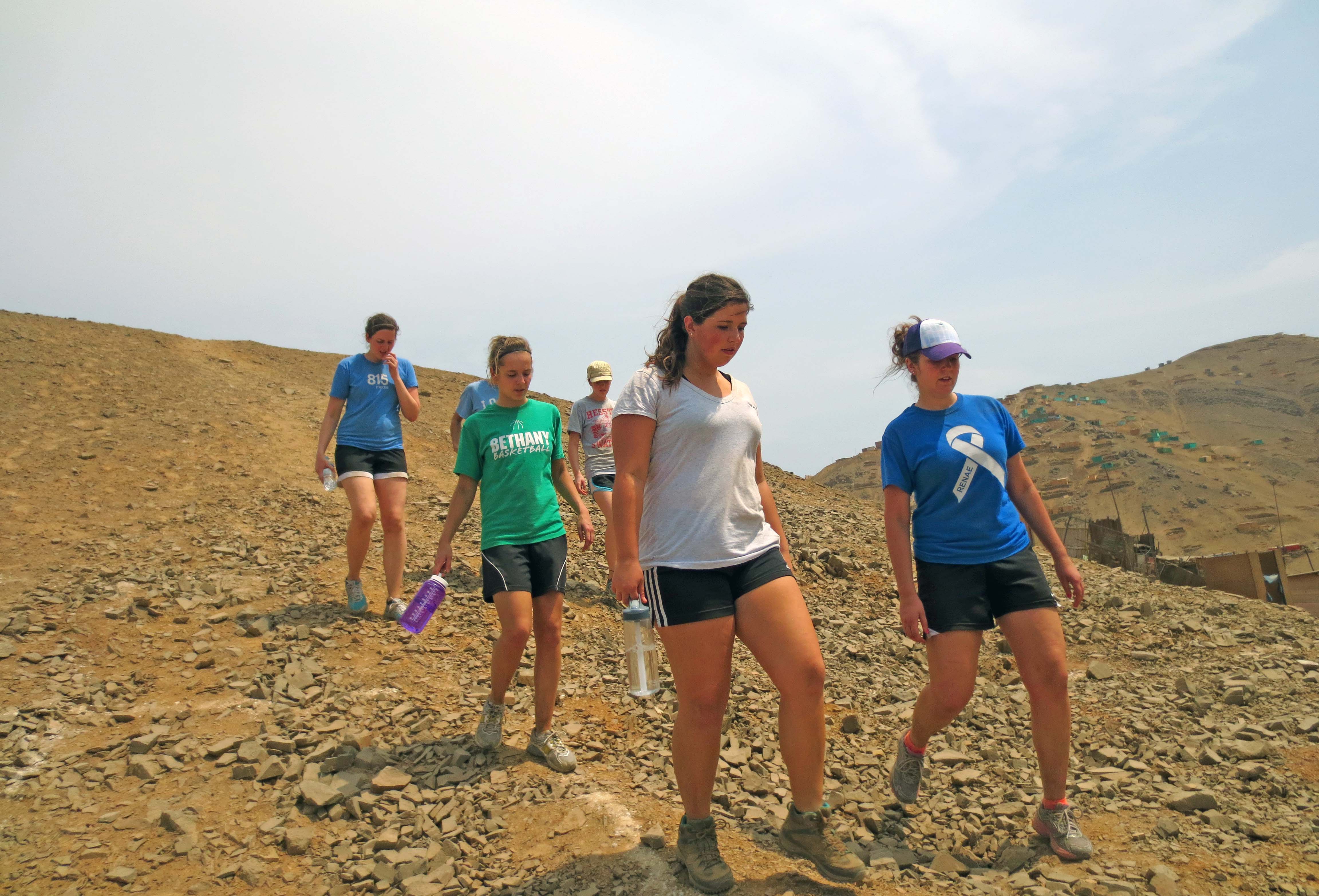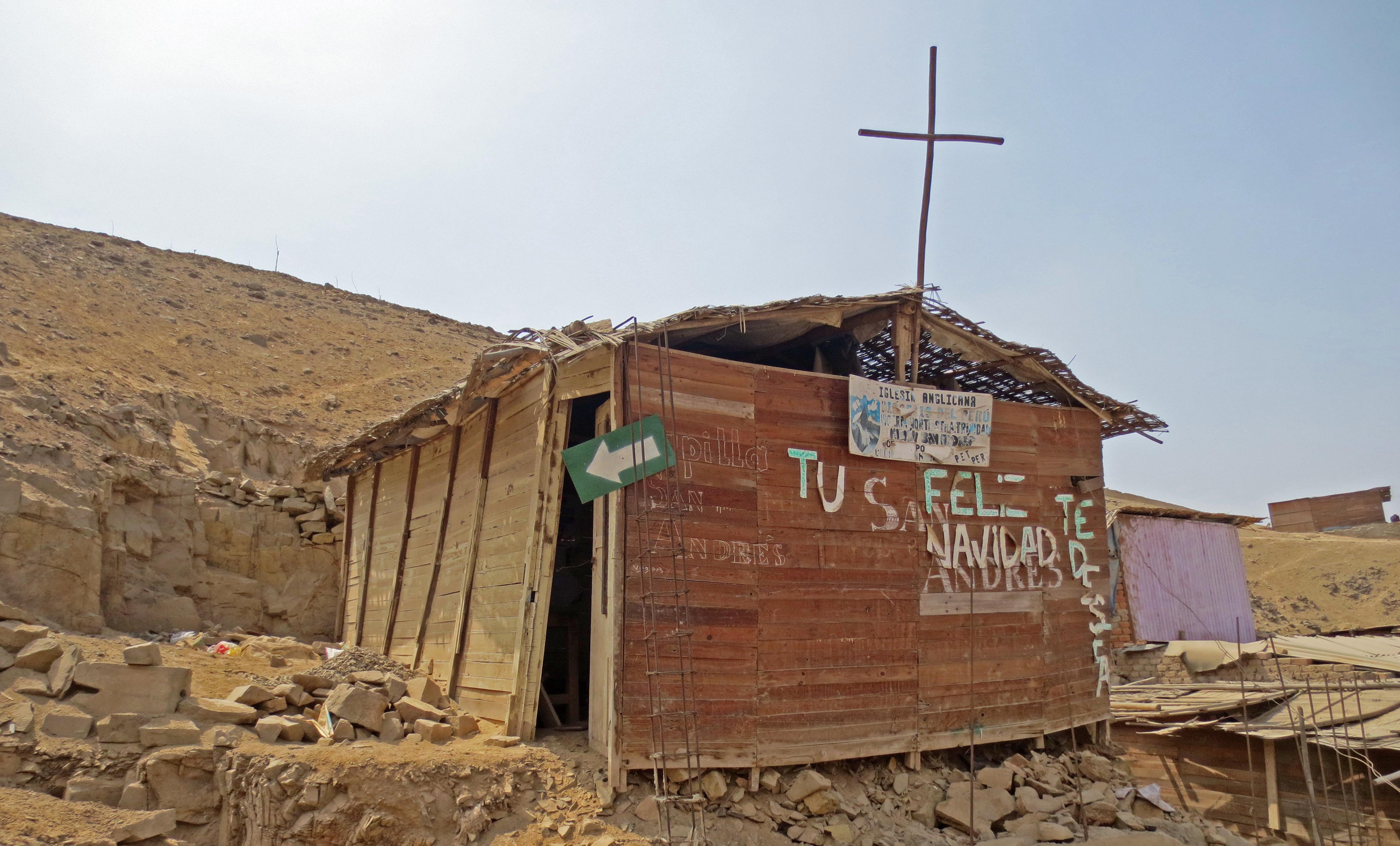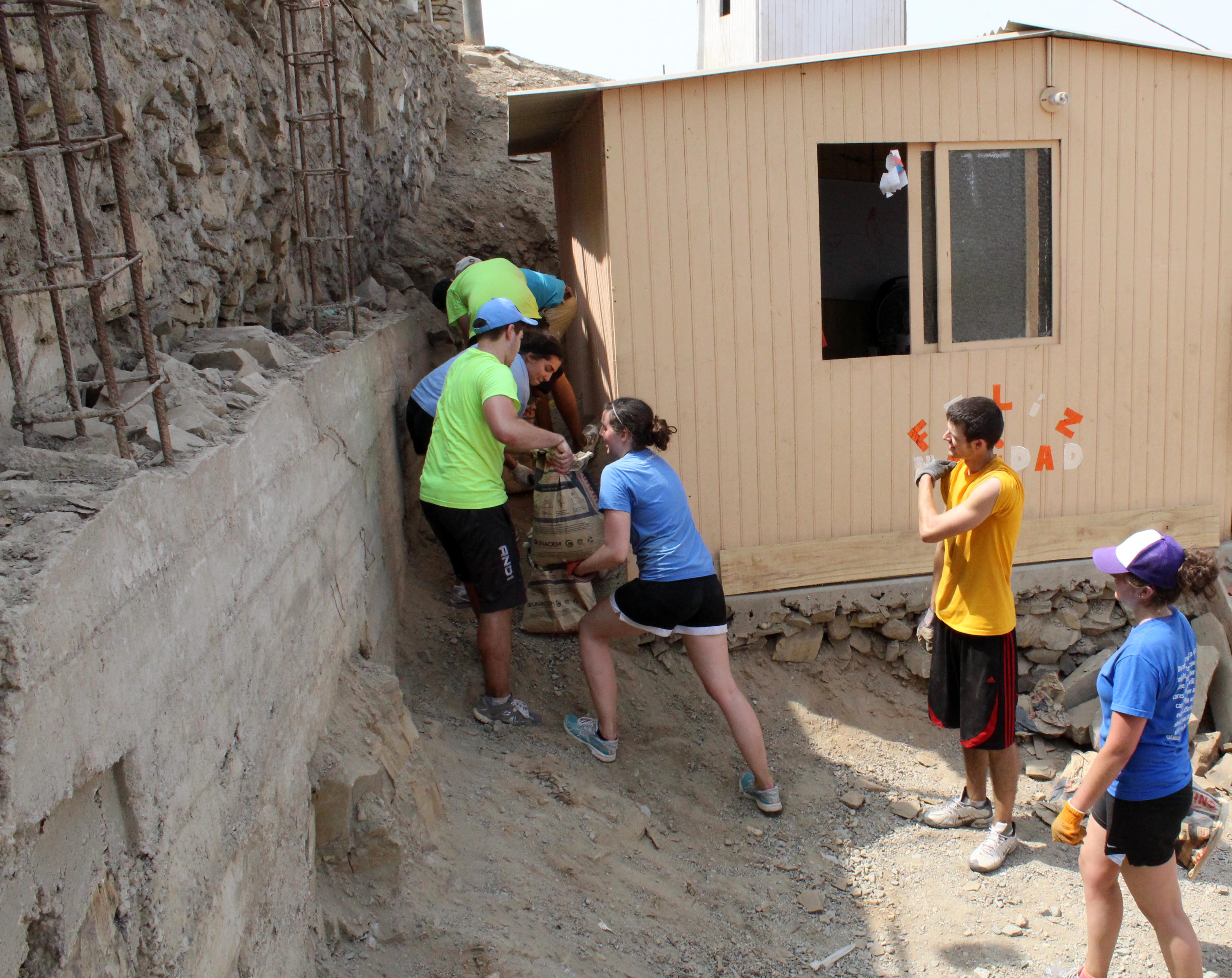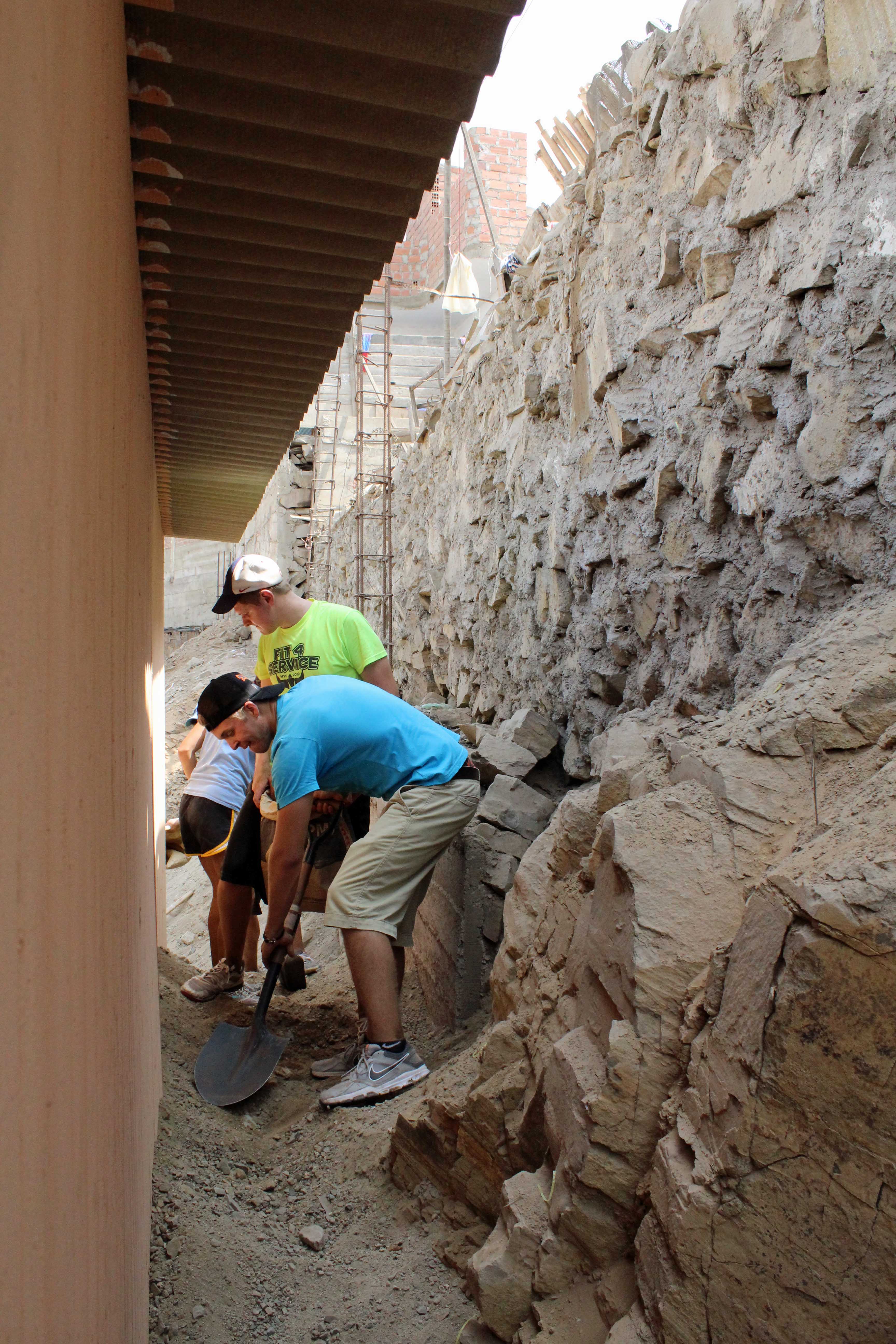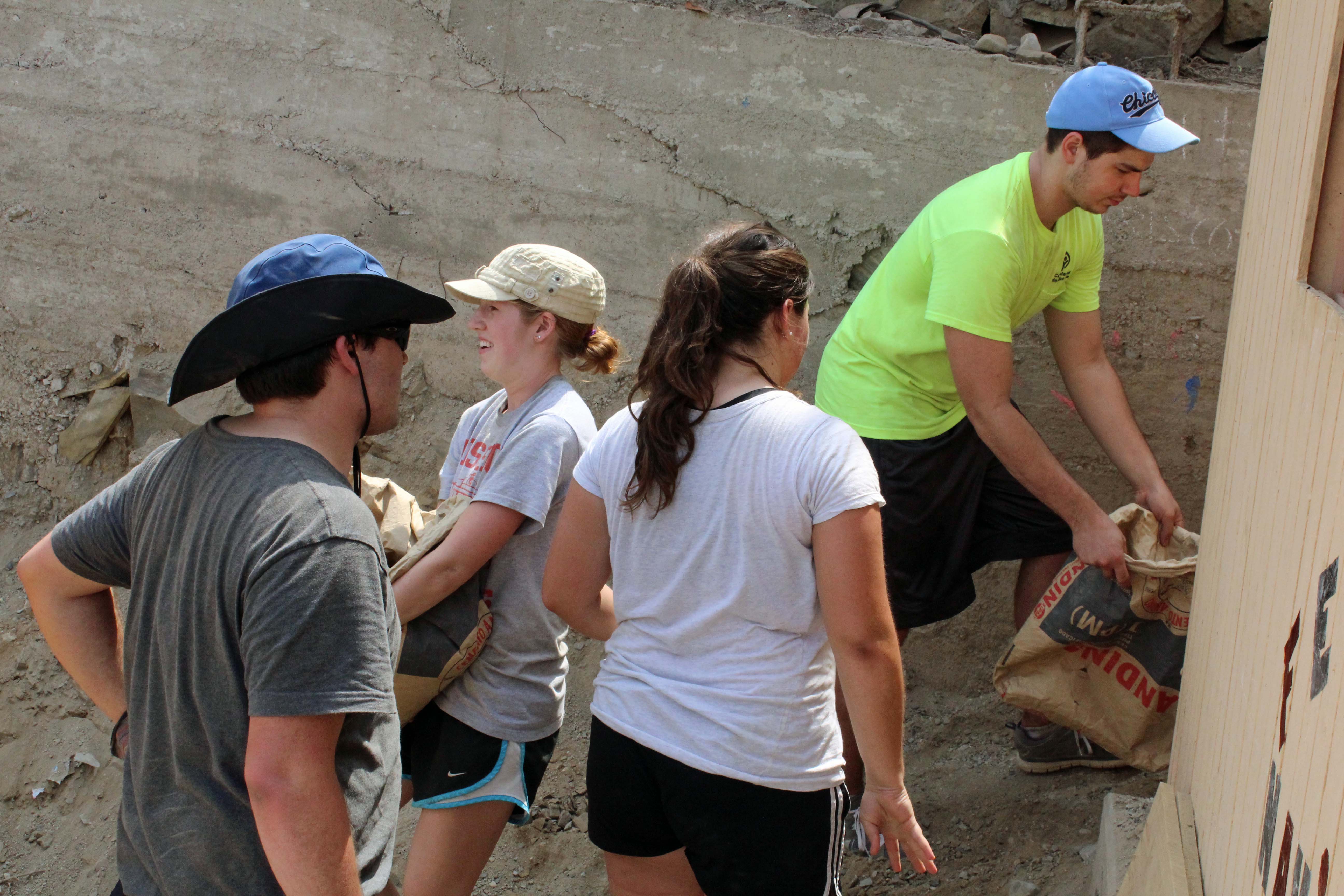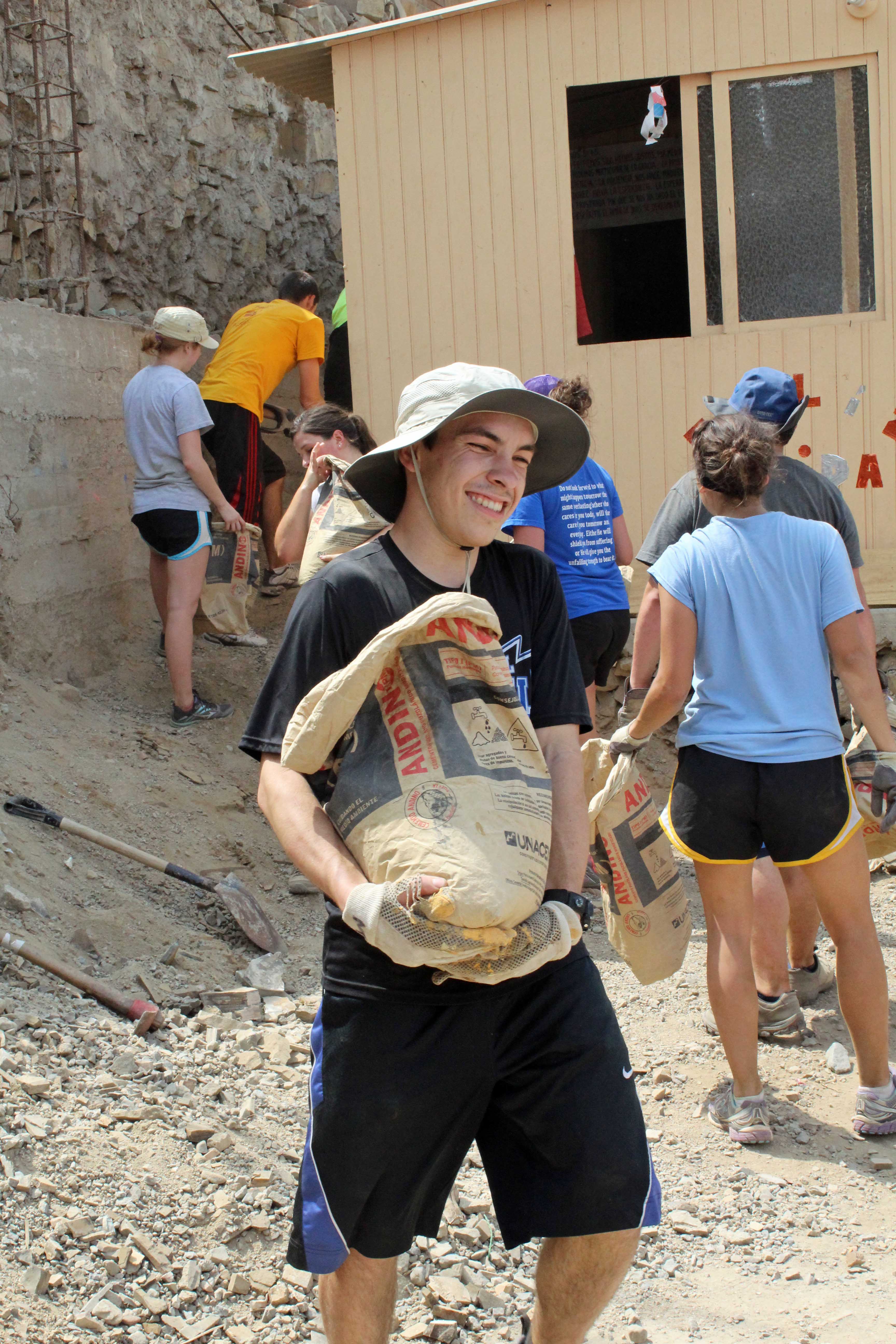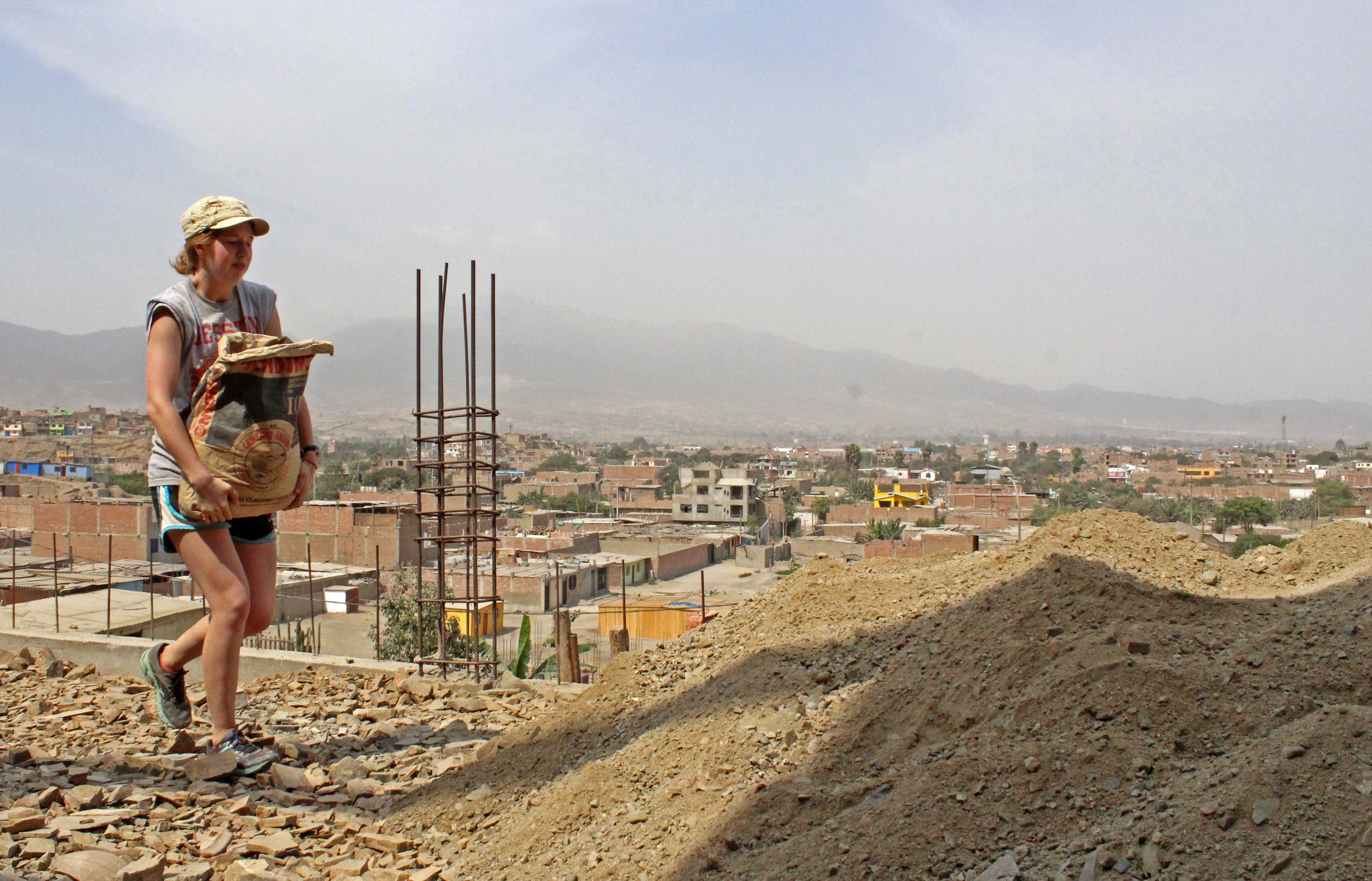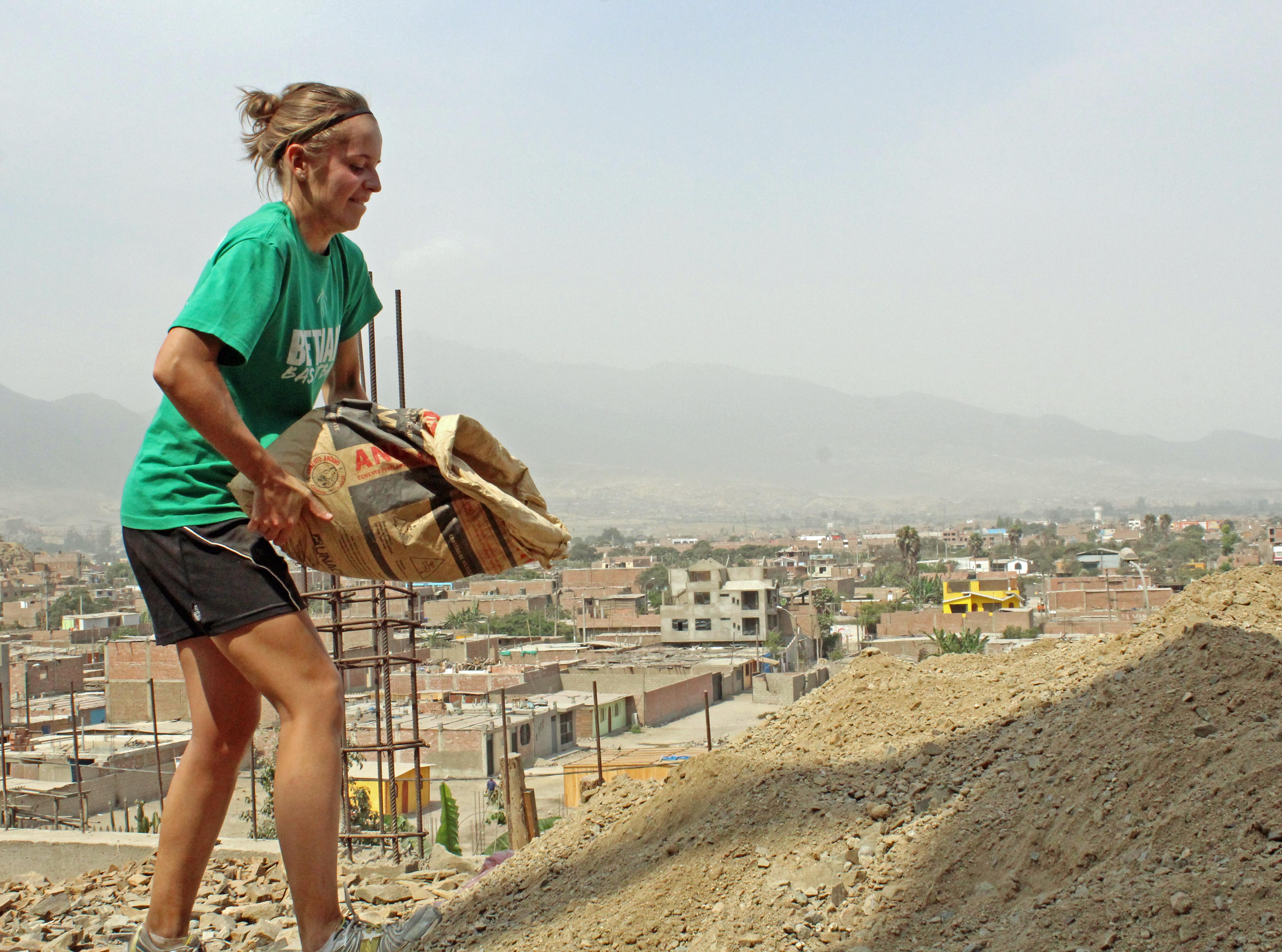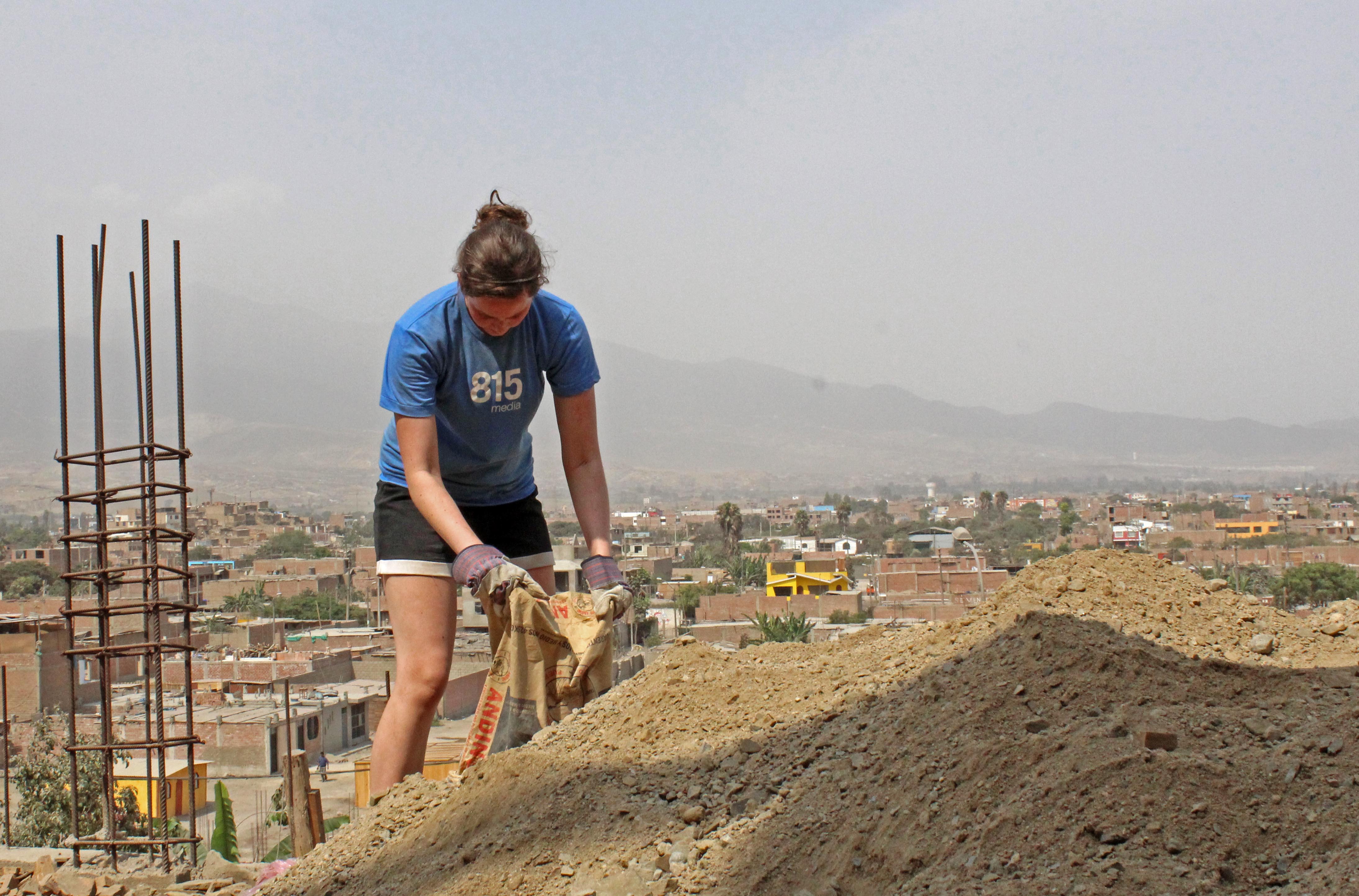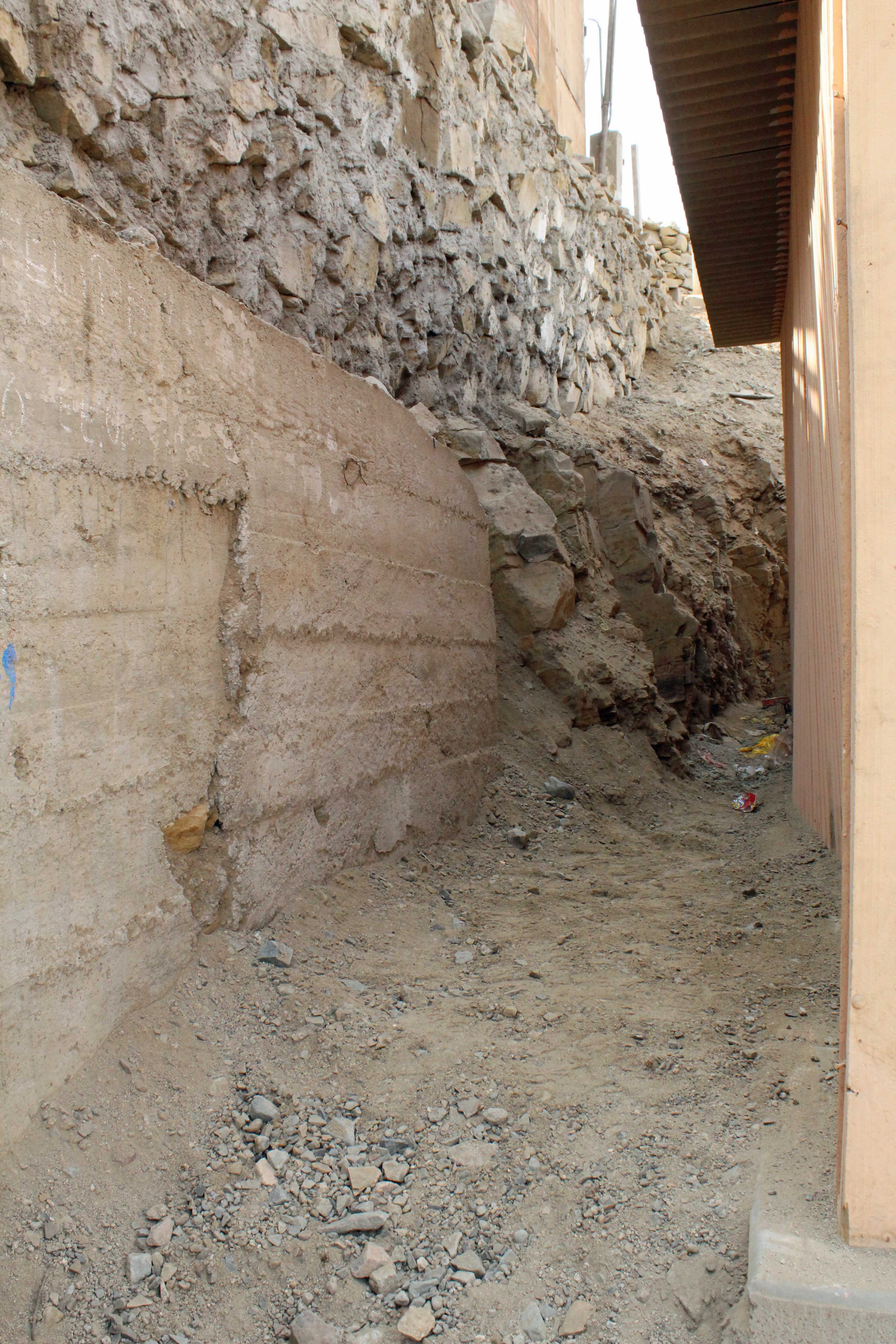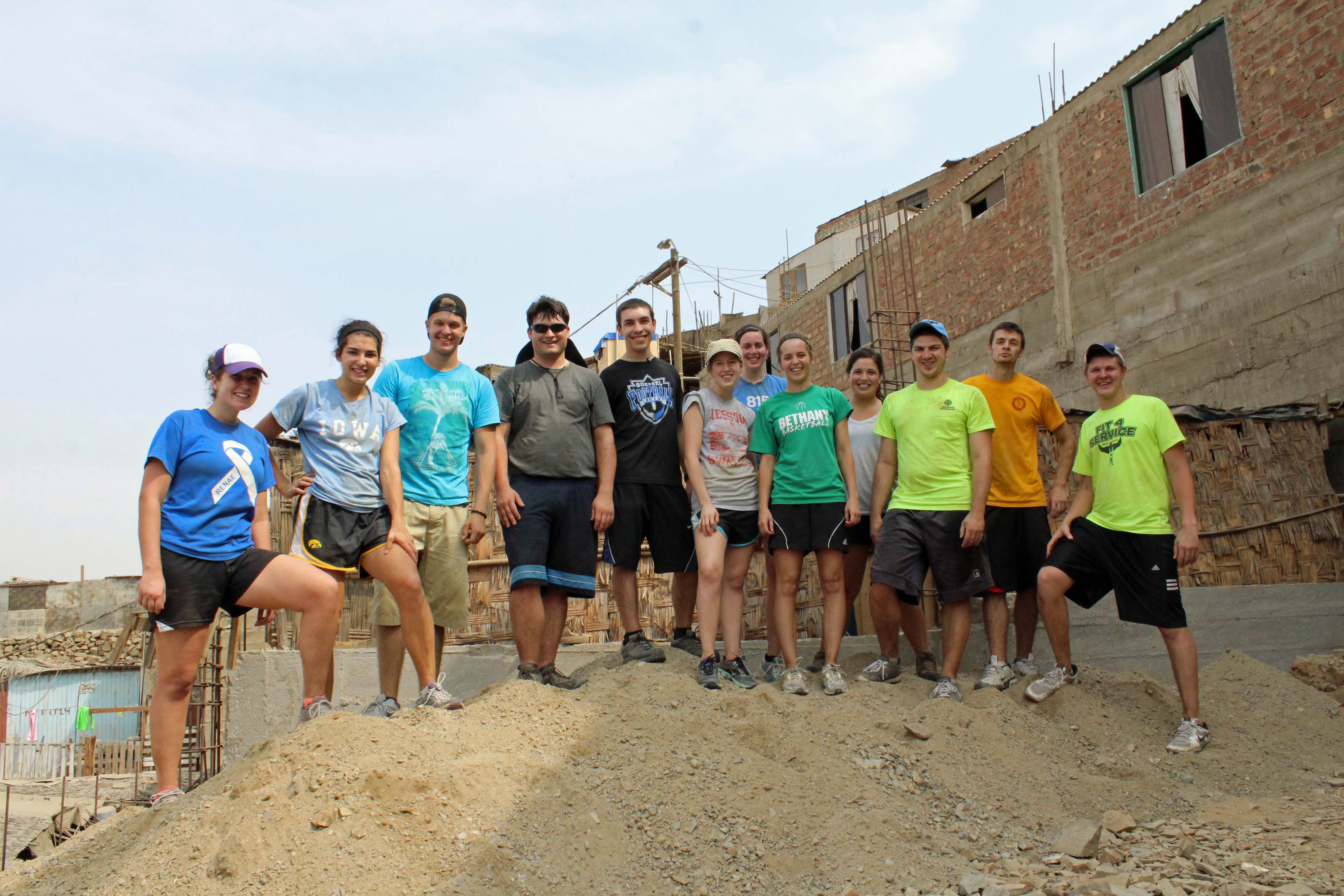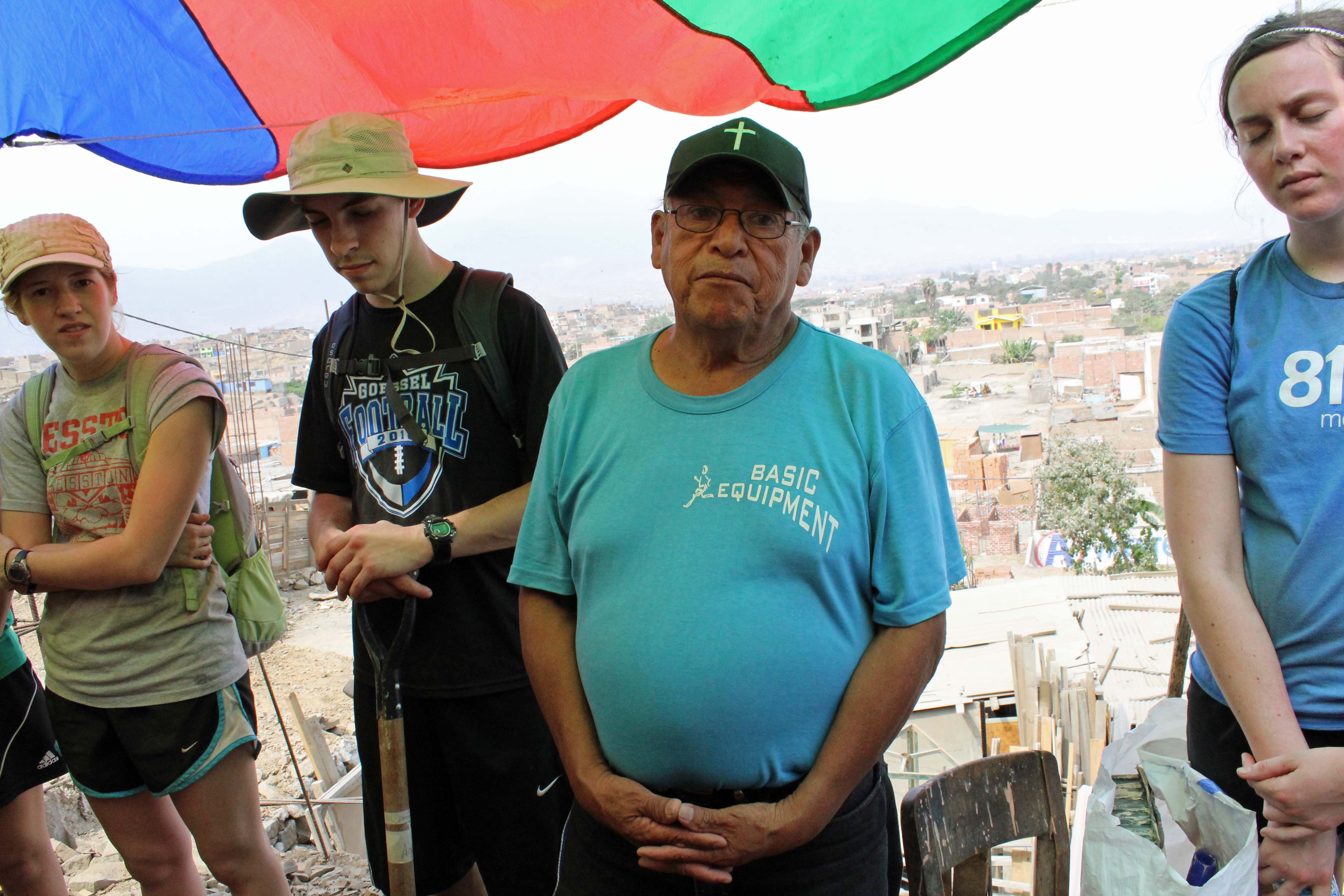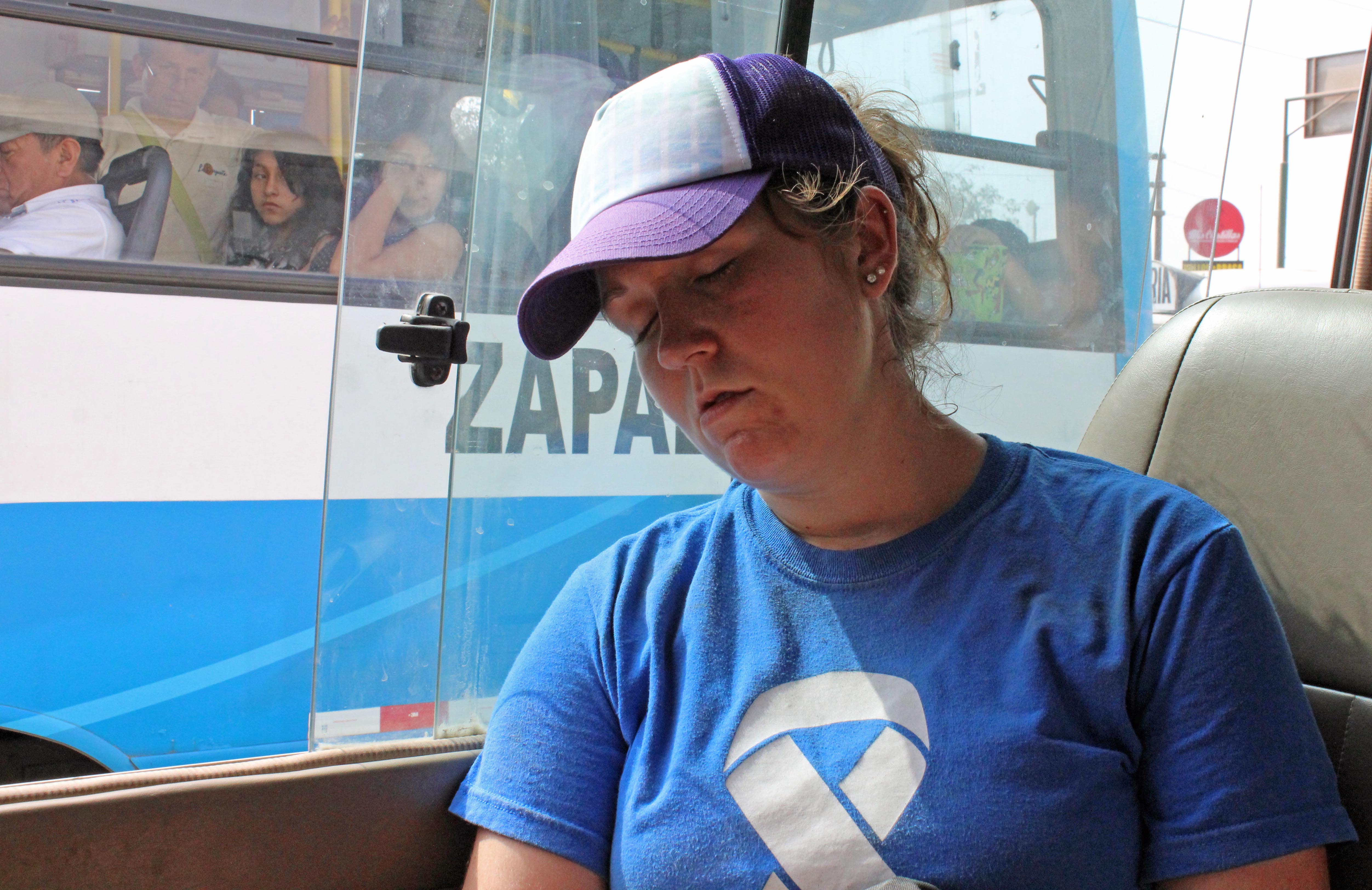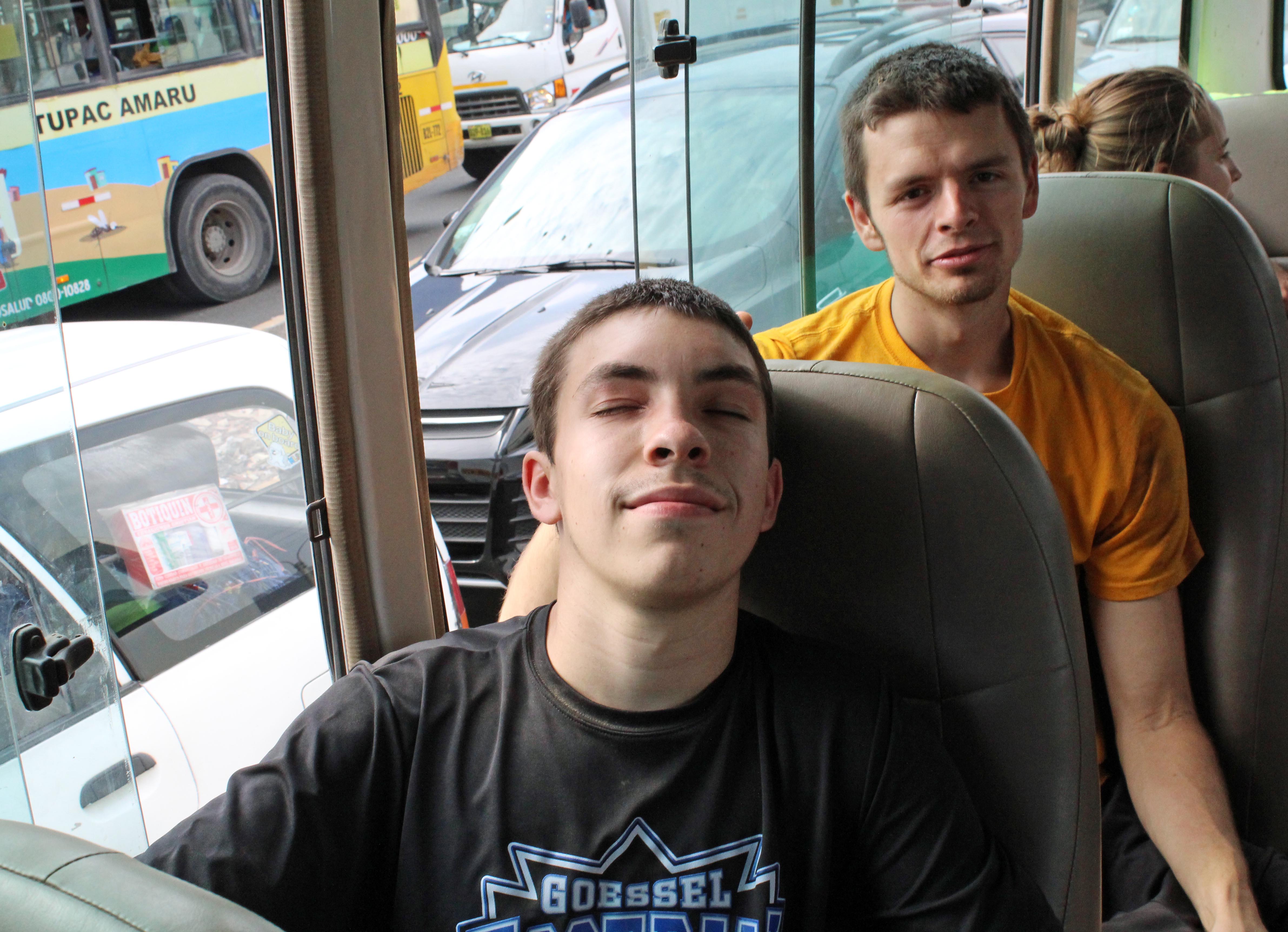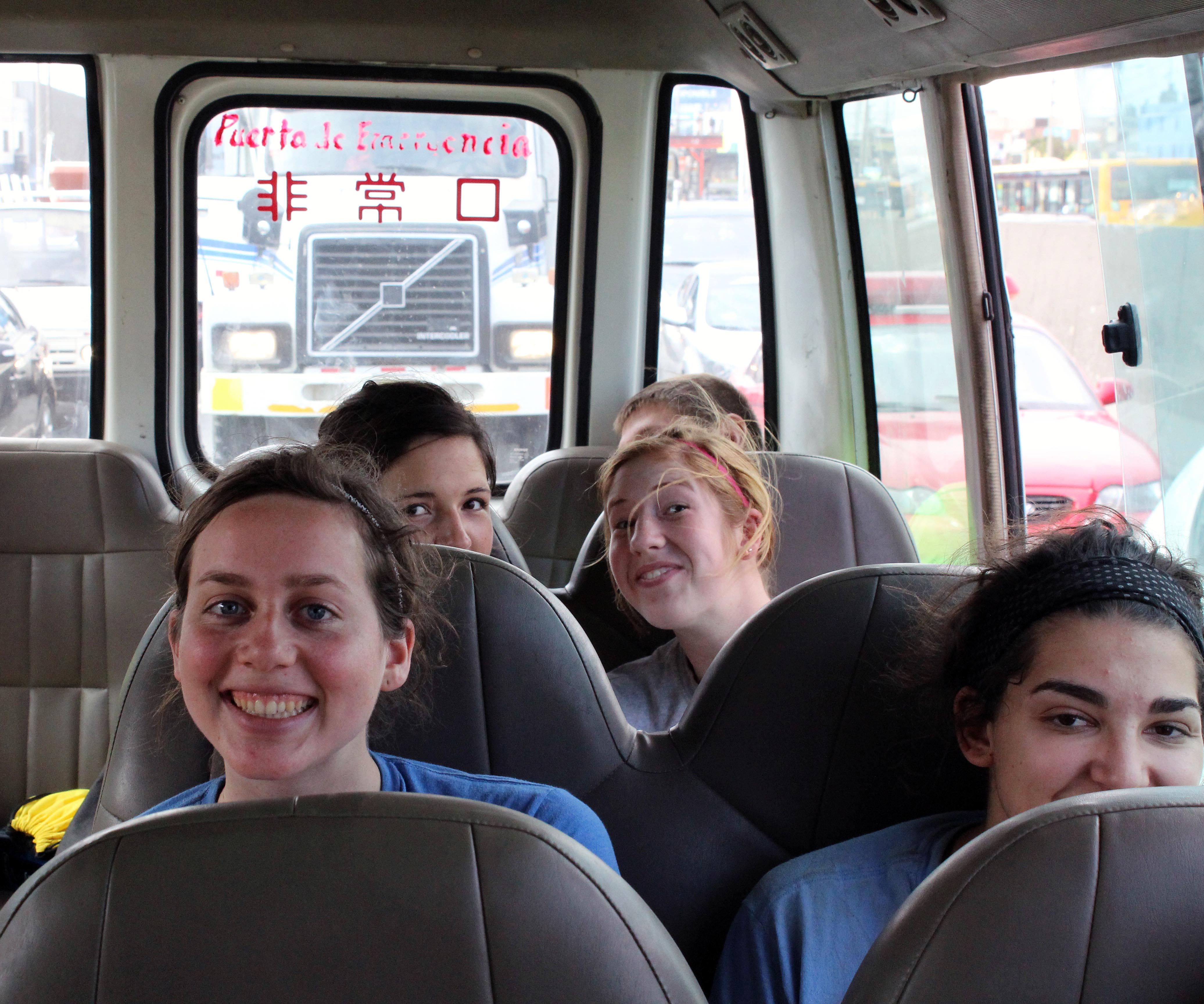In the words of GC students: A work project in Puente Piedra
Our visit to the squatter community in the Puente Piedra district on Jan. 17 was quite an eye-opening experience. (Neal)
Although we went to that community to help those people through work, I feel like I got more out of the experience than they did. (Caleb)
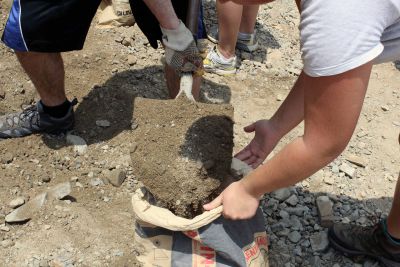
After the two-hour bus ride of weaving in and out of traffic, we arrived at our destination: a small shanty town right on the edge of the mountains. (Natalie)
It is definitely one of the poorest areas in Lima, and the poorest area I’ve ever been in by far. (Gina)
Last weekend our group saw the small shacks from far away, but it is easy to see the disparity while closer. (April)
The place is very hot, even when you are inside a building. (April)
The people have to live in the hot and the dust and have to walk up and down a mountain every day. (Gina)
The first person we met was Father Benjamin. You could tell that he was a very nice man and was very excited for us to be there. (Dean)
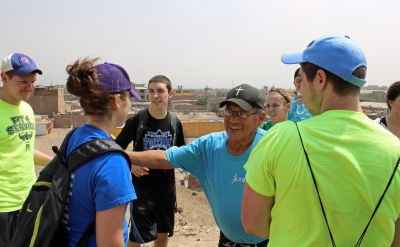
The task was to move dirt and rocks at a tiny church, the Misión San Andrés Santísima Cruz
I was not prepared for just how rustic and simple the church building was, and yet the size of it has not determined or limited its impact. (Malaina)
The presence of the church and desire to keep going is incredible. (Neal)
We spent the morning shoveling and filling bags with dirt and stone. We were working on leveling the ground so the church that was there could have more space to construct. (Natalie)
I was glad that our service project was manual labor. I always feel a lot better about a service project when you can physically see the help and progress that you have completed. (Dean)
When they showed us the space we were preparing, I almost couldn’t believe it. It was so small. …Everything took so long because it’s not like you can take big machines up there to move dirt. Taking trip after trip of bags of dirt across the small site was exhausting. It really made me appreciate everything the people do who live there. (Gina)
You could see the importance of our help by the way the building was bowed in only after one year. Another year of that rocksand pushing against it and the building would have been in very bad shape, possibly ruining it completely. (Dean)
The work seemed so simple, just cleaning out sand. But what a difference it made. It provided just a bit more space for these kids to play when they really have nowhere else….Because we moved that sand they can now host a lot more people outside for a church service. (Gretchen)
As we were working in the heat and dust, I couldn’t help but look forward to the cleansing and refreshing shower I could take once getting home. I was dirty and sweaty and at times a little bit miserable. But then I would remember that all these people, the women and children that watched us, don’t get the chance to leave, clean up and return to normal life – this is their life. (Maria)
It was extremely caring of the one woman and her children to bring us the soda and watch our work for a while. Seeing those children really made an impact on me. Those were the children we were working so hard for. (Gretchen)
I am so happy to be a part of this group. The people here are so willing to support each other and immerse themselves in a completely different culture. Actually it is not so much that they are willing; they are eager to. (Caleb)
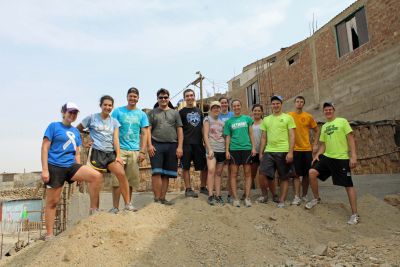
It was a good reminder that we are all in this experience together. That is something I need continuous reminders about. I am not alone in all this. (Natalie)
I felt glad that we could be there. I felt very grateful for all the group members and how hard we all worked together…I also felt very grateful to have gone to Goshen. (Gretchen)
I think when it all hit me the hardest that we really were doing good work was when the wife of the pastor thanked us ….She said “think how different our world could be if all young people were willing to help others.” (Gretchen)
Many students thought about a lecture they had heard the day before, from Father Eduardo Arens, a noted Peruvian theologian
Father Arens told us to look at the faces of the people in the town and see what they are expressing. (Caleb)
The boys did not care what their social status was, they were just enjoying being young boys. The people we saw when hiking down the mountain…were all friendly and had a huge smile on their face when we would wave or say hello. A lot even came and watched us work. As I observed them, they did not look sad at all. They were just simply enjoying their lives the way they know how. (Dean)
Somehow they are still happy. The kids are still smiling. (Gina)
The children would wave and shout at us or just be laughing with friends. Adults would wave and be playing with children as we passed them or just go about their everyday activities. (Caleb)
I think that too often, we assess others’ happiness and well-being by our own standards and by the lifestyle that we are accustomed to…Even though these people do need help in some areas, I am not superior or happier than them. (Maria)
Puente Piedra is a place that reminds me that people can be happy with their families and communities, no matter their wealth. (April)
It is so sad to see what our modern society says when it comes to wealth and social class. If you are not rich and don’t have everything that you want, even when it is completely impractical, then you should be “miserable.” (Dean)
In my opinion, when a person owns many things, they remain unsatisfied. These material items can detract from meaningful relationships. (April)
So many times it seems that we make up excuses to not be happy. We become too materialistic or selfish to see that we have all we need. (Caleb)
Contemplating the settlement from the top of the hill
I think more than anything it was just so incredibly humbling and sad to see the view from the top of the hill. (Malaina)
The houses are so tiny and so poorly built. It was just mind boggling. I was standing there, looking at hundreds of little homes, and it still didn’t seem real. (Gina)
Looking out at all the squatter communities, I realized that this poverty was too much for me to grasp. Thousands of people live in this dustland in hopes of making a better life. (Maria)
Many of the shacks look as though they are the size of my living room at home. Those are homes where your bathroom is outside. (April)
While seeing a small home with a railing and bricks instead of boards, we thought, “What a nice house!” while in the United States we never would have said it. (April)
I am starting to realize and believe that everything we know and think is relative to what we have experienced before. (Gretchen)
Usually I say that my house in Illinois is medium-sized and our family is part of the working class. Before, I did not think about the privileges that I do have with my house and financial situation. I would say now that I am in a comfortable position in life. (April)
In the U.S., I live comfortably with everything I could possibly ever need and I take it for granted. (Natalie)
I could probably count on one hand the number of times I’ve really stopped to think about the sewage system and that is something they go without every day. (Malaina)
Just to get the necessities of life (food, water, electricity) can be difficult for those people….Simply having the resilience to come live here and try to make it is impressive as well. (Neal)
It’s one thing to learn about this sort of life in books or classes but it is quite another to see it firsthand. (Malaina)
Masses upon masses live in communities like this. It’s astounding that we saw just a fraction of the communities in a similar situation. (Neal)
Grappling with the big questions
I felt sad when I realized how little these children have going for them. They didn’t choose to be born into a life of poverty. (Gretchen)
We’ve been blessed with more opportunities, but why? Fate? Luck? Location? Nationality? (Malaina)
I don’t know how to deal with those drastic differences. The world just isn’t fair. (Gina)
Walking around Miraflores and other nice areas of Lima and seeing the fenced-in beautiful houses, I can’t help but ask myself and God, how is this happening? How can we live such privileged and gluttonous lives as the poor struggle to support themselves and their families on the outskirts of town? (Maria)
What is our role as members of the haves, not the have-nots? When we go back to the U.S. and become adults in the workforce, how do we care for our fellow brothers and sisters? (Neal)
I cannot imagine how different our world could be if everyone was content with a simple life, and did not care about their wealth and social status. (Dean)
It kinda makes me want to get rid of all my stuff because I really don’t need it. (Gina)
Jesus said to help the poor, and to many Christians that means a few dollars in the offering plate after they wake up from the sermon. I want my life to be different than this. (Neal)
How can I go back to the States and simply fall back into my old luxurious life without thinking of the people on the cerros [hills]? I don’t have answers for these questions, but I am happy to have these questions at all. (Maria)
How much do we as a church and we as individuals want to step out of that comfort zone? (Neal)
Kids didn’t learn more today. Families aren’t enjoying better health now that we’re gone. Just like the shifting sand, our impact has hardly been noticed. Like footprints, fading in the sand, we are here today and gone tomorrow. But what will really change things for them? Who will change things for them? And when? How long must they wait? (Malaina)
I asked the question to Father Arens about how do we know who and how to help people who need it. He answered in a way that I was not expecting. I was not expecting him to say that things will always be like this. There is no perfect world, so it is up to us to try and live our lives so we leave as much impact as we possibly can. (Natalie)
Every interaction matters, especially when you are proactive and go out to those less fortunate. It begins with simple acts like moving rocks in a poor district of Lima. (Neal)
–Quotes from student journals (used with permission), compiled by Judy Weaver
–More than two million people live in poverty or extreme poverty in Lima.
